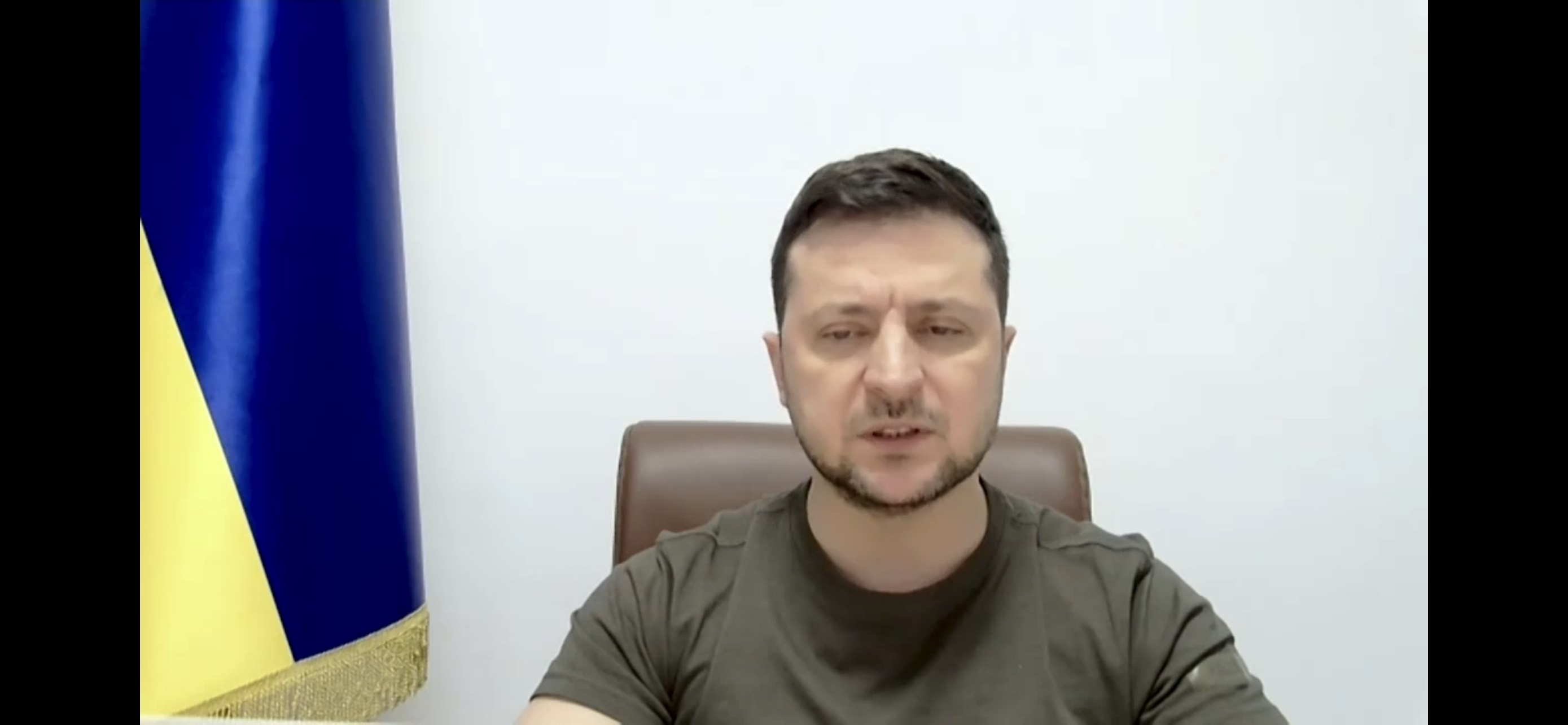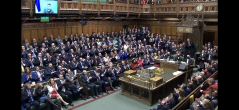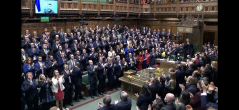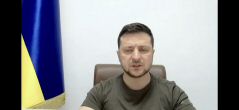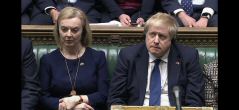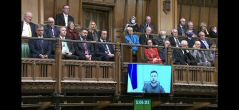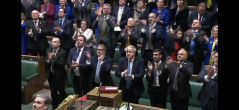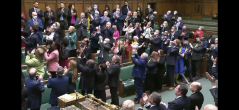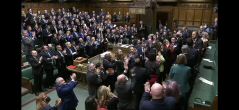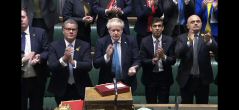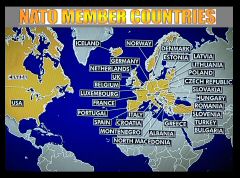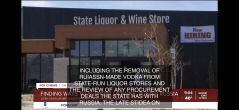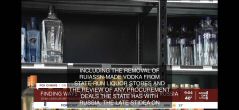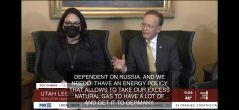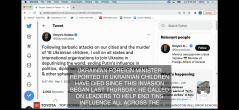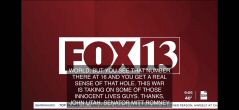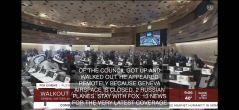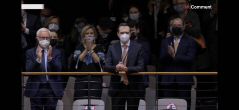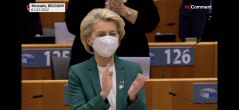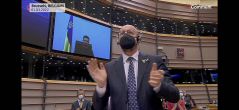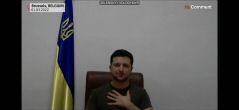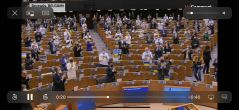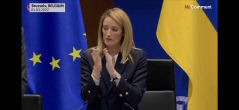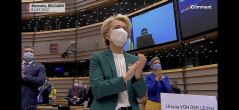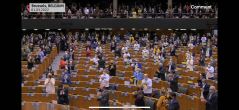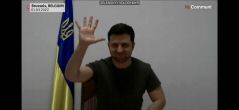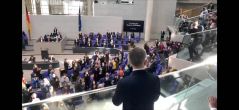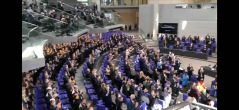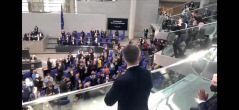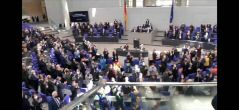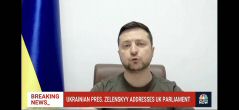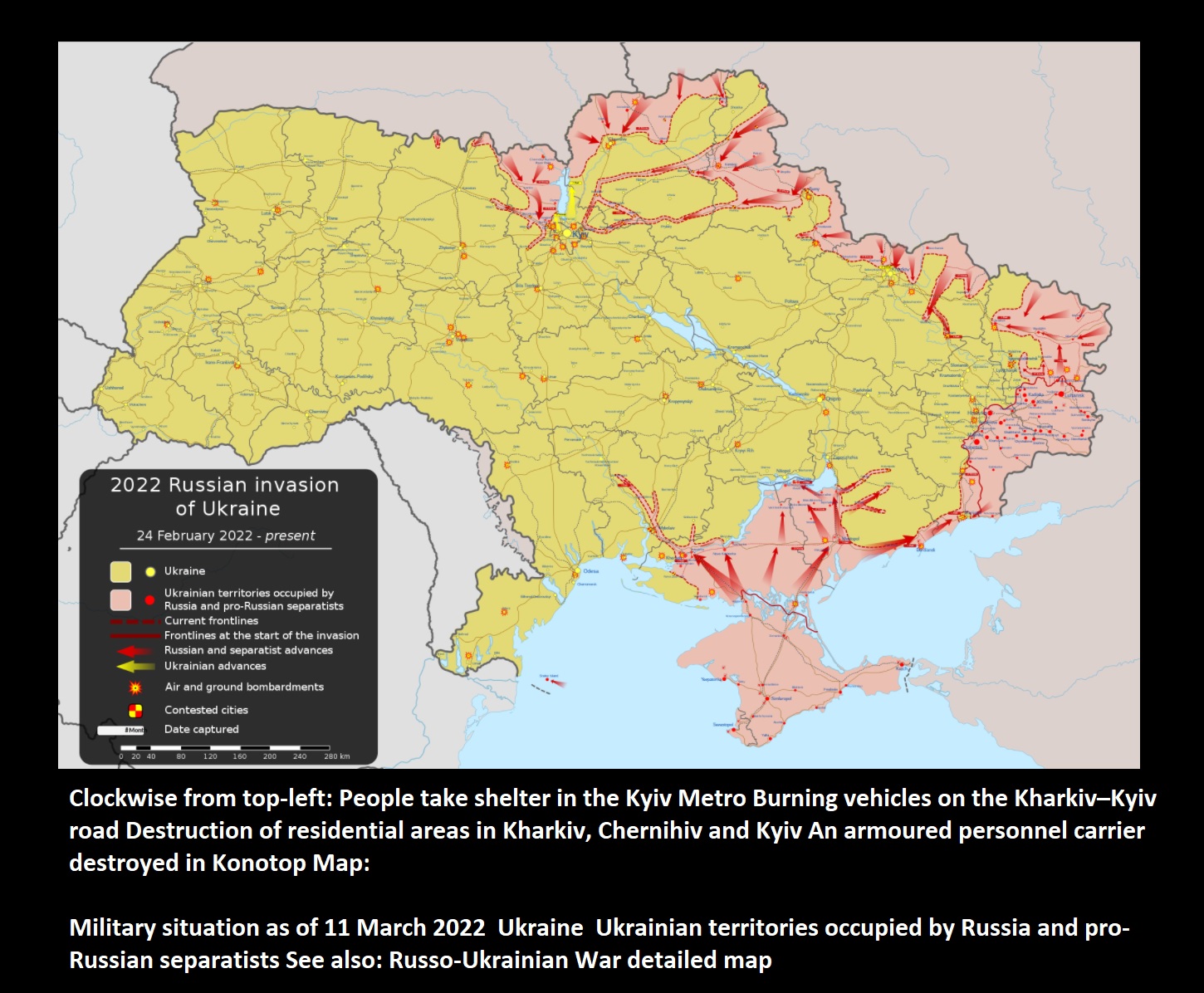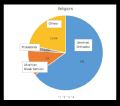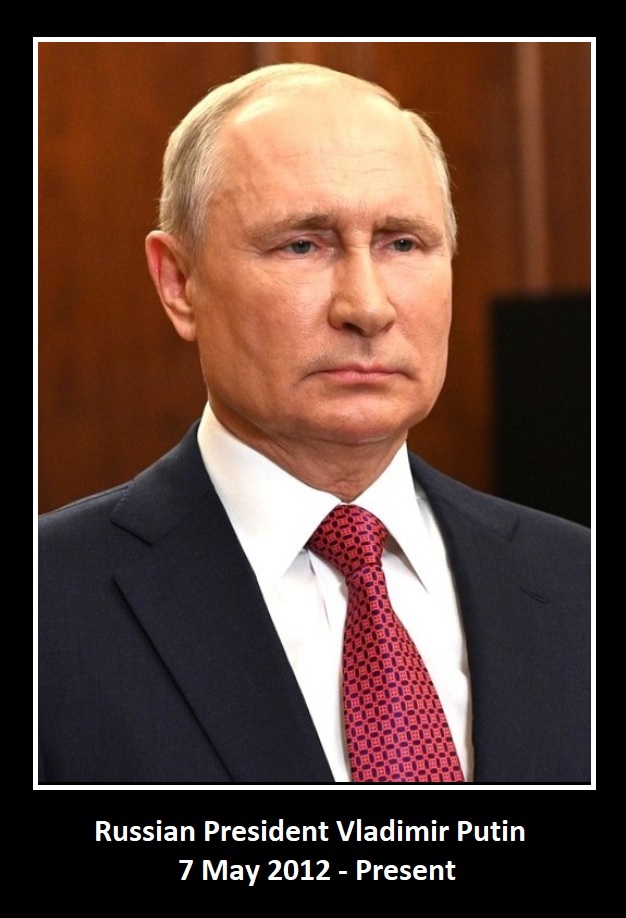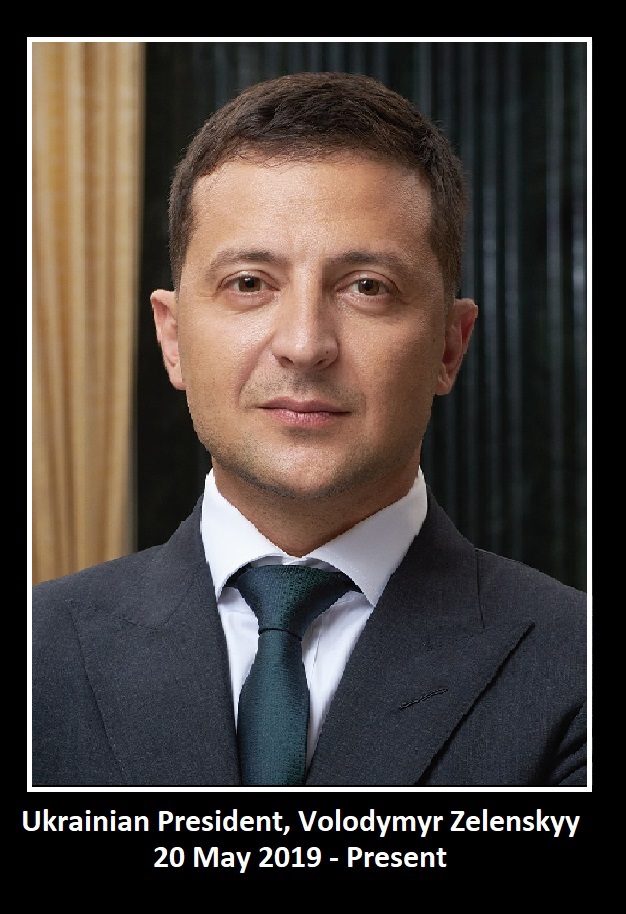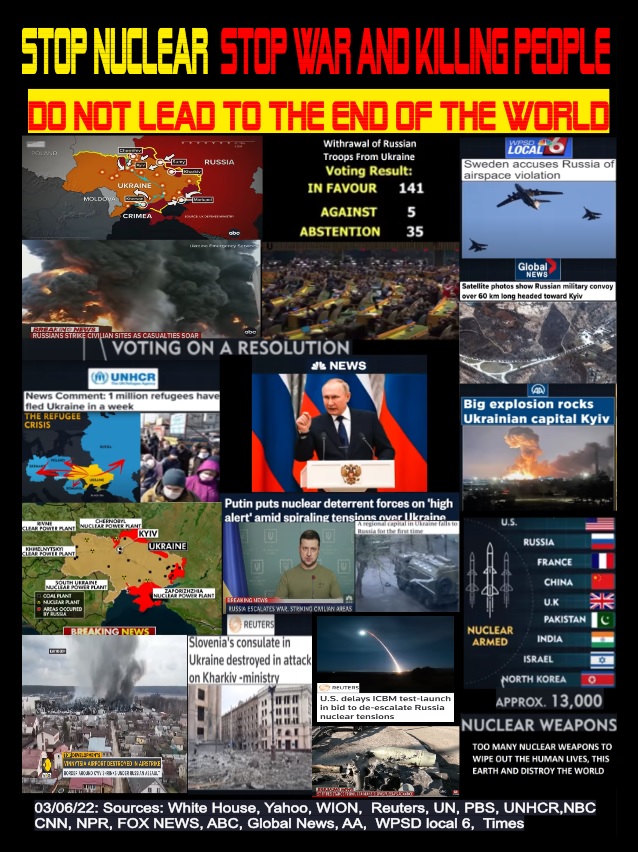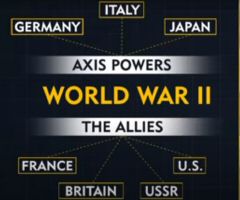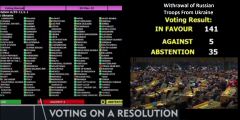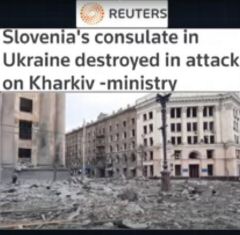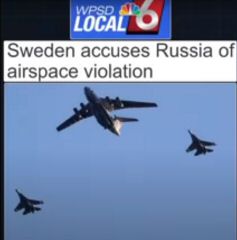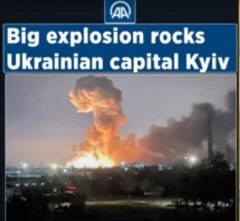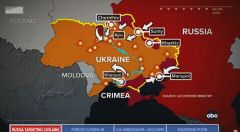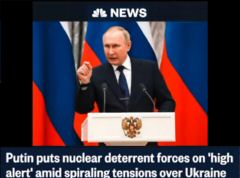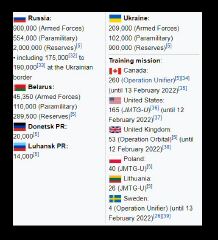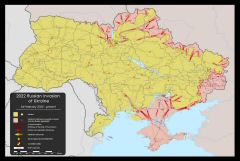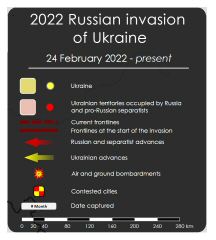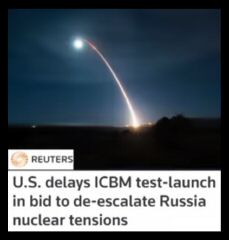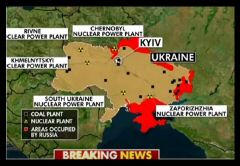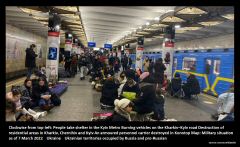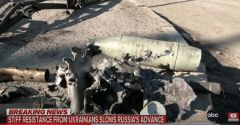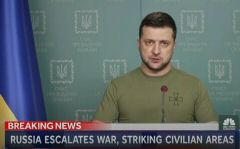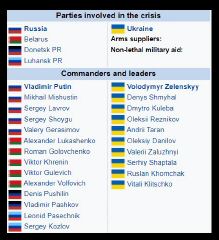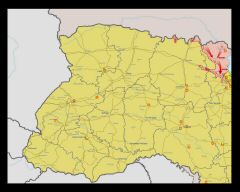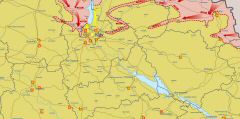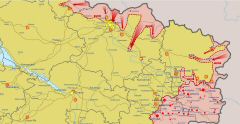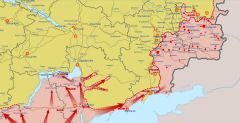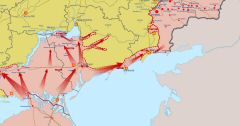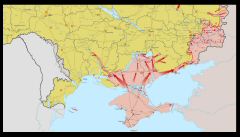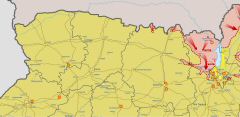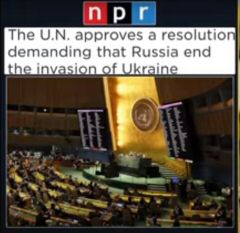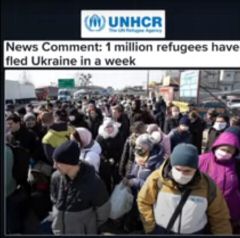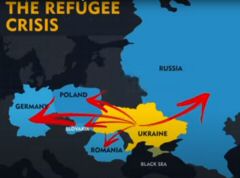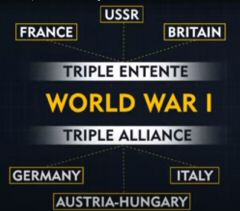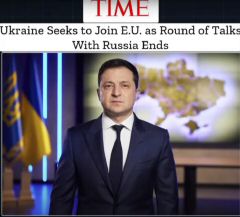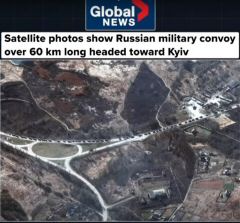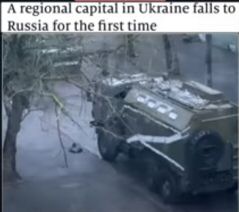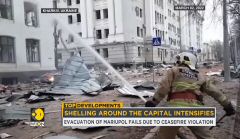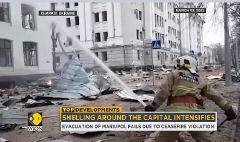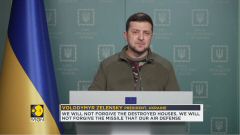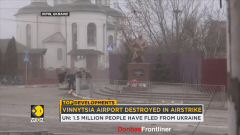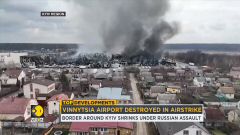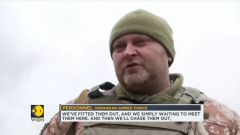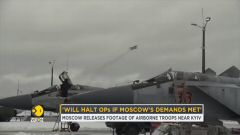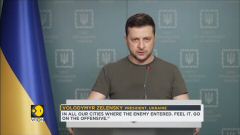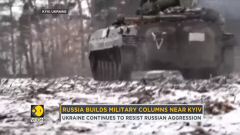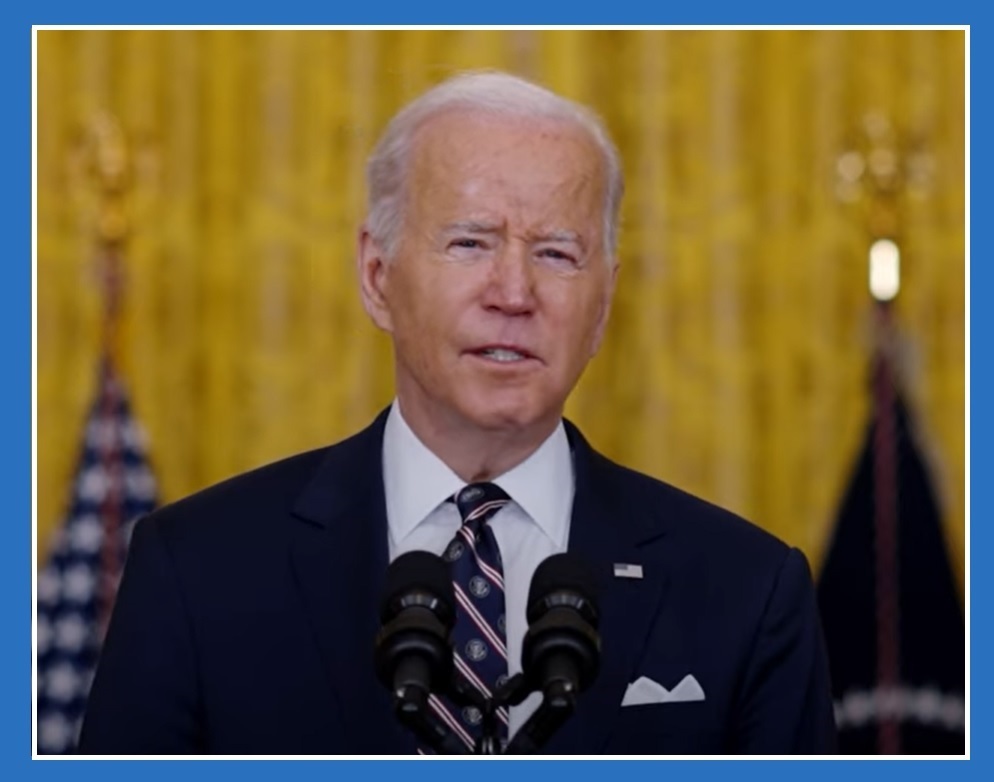|
Readout of President Biden’s Call with AUGUST 25, 2022 STATEMENTS AND RELEASES
President Joseph R. Biden, Jr. spoke today with President Volodymyr Zelenskyy of Ukraine. He congratulated Ukraine on its Independence Day and expressed his admiration for the people of Ukraine, who have inspired the world as they defended their country’s sovereignty over the past six months. He reaffirmed the United States’ continued support for Ukraine and provided an update on the ongoing provision of security assistance, including yesterday’s announcement of nearly $3 billion to support Ukraine’s defense capabilities for the long term. The two leaders also called for Russia to return full control of the Zaporizhzhya Nuclear Power Plant to Ukraine and for International Atomic Energy Agency (IAEA) access to the plant. ### -------------------
An April 2022 survey by the Levada Centre reported that approximately 74% of the Russians polled supported the "special military operation" in Ukraine, suggesting that Russian public opinion has shifted considerably since 2014. According to some sources, a reason many Russians supported the "special military operation" has to do with the propaganda and disinformation. In addition, it has been suggested that some respondents did not want to answer pollsters' questions for fear of negative consequences. At the end of March, a poll conducted in Russia by the Levada Center concluded the following: When asked why they think the military operation is taking place, respondents said it was to protect and defend civilians, ethnic Russians or Russian speakers in Ukraine (43%), to prevent an attack on Russia (25%), to get rid of nationalists and “denazify” Ukraine (21%), and to incorporate Ukraine and/or the Donbas region into Russia (3%)."
On 28 April 2022, US President Joe Biden asked Congress for an additional $33 billion to assist Ukraine, including $20 billion to provide weapons to Ukraine. On 5 May, Ukraine's Prime Minister Denys Shmyhal announced that Ukraine had received more than $12 billion worth of weapons and financial aid from Western countries since the start of Russia's invasion on 24 February. On 21 May 2022, the United States passed legislation providing $40 billion in new military and humanitarian foreign aid to Ukraine, marking a historically large commitment of funds. In August 2022, U.S. defense spending to counter the Russian war effort exceeded the first 5 years of war costs in Afghanistan. The Washington Post reported that new U.S. weapons delivered to the Ukrainian war front suggest a closer combat scenario with more casualties. The United States looks to build "enduring strength in Ukraine" with increased arms shipments and a record-breaking $3 billion military aid package. US and international officials continued to report the active presence of Russian military in eastern Ukraine, including in the Debaltseve area". In January, Ukrainian troops struggled to counter artillery fire, due to Russian-supplied drones and jamming. Russian separatists forces were estimated to number around 36,000 troops (compared to 34,000 Ukrainian), of whom 8,500–10,000 were Russian soldiers. Additionally, around 1,000 GRU troops were operating in the area. Another estimate held that Ukrainian forces outnumbered Russian forces 40,000 to 20,000 Following Russia's invasion of Ukraine in February 2022, the international sanctions during the 2022 Russian invasion of Ukraine which occured by the United States, the European Union, and other countries introduced or significantly expanded sanctions to include Vladimir Putin and other government members, and cut off "selected Russian banks" from the SWIFT network triggering the 2022 Russian financial crisis and a massive international boycott of Russia and Belarus, which supports the invasion.-
|
|||||||||||||||||||||||||||||||||||||||||||||||||||||||||||||||||||||||||||||||||||||||||||||||||||||||||||||||||||||||||||||||||||||||||||||||||||||||||||||||||||||||||||||||||||||||||
|
Statement from President Biden on Ukraine Independence Day AUGUST 24, 2022 STATEMENTS AND RELEASES
On behalf of all Americans, I congratulate the people of Ukraine on their Independence Day. Over the past six months, Ukrainians have inspired the world with their extraordinary courage and dedication to freedom. They have stood resolute and strong in the face of Russia’s full scale invasion of Ukraine. And today is not only a celebration of the past, but a resounding affirmation that Ukraine proudly remains – and will remain – a sovereign and independent nation. The United States of America is committed to supporting the people of Ukraine as they continue the fight to defend their sovereignty. As part of that commitment, I am proud to announce our biggest tranche of security assistance to date: approximately $2.98 billion of weapons and equipment to be provided through the Ukraine Security Assistance Initiative. This will allow Ukraine to acquire air defense systems, artillery systems and munitions, counter-unmanned aerial systems, and radars to ensure it can continue to defend itself over the long term. I know this independence day is bittersweet for many Ukrainians as thousands have been killed or wounded, millions have been displaced from their homes, and so many others have fallen victim to Russian atrocities and attacks. But six months of relentless attacks have only strengthened Ukrainians’ pride in themselves, in their country, and in their thirty-one years of independence. Today and every day, we stand with the Ukrainian people to proclaim that the darkness that drives autocracy is no match for the flame of liberty that lights the souls of free people everywhere. The United States, including proud Ukrainian-Americans, looks forward to continuing to celebrate Ukraine as a democratic, independent, sovereign and prosperous state for decades to come. ### |
|||||||||||||||||||||||||||||||||||||||||||||||||||||||||||||||||||||||||||||||||||||||||||||||||||||||||||||||||||||||||||||||||||||||||||||||||||||||||||||||||||||||||||||||||||||||||
|
FACT SHEET: The United States Continues to Strengthen Cooperation with JUNE 28, 2022 STATEMENTS AND RELEASES
Today President Biden met with G7 leaders to strengthen our cooperation on economic issues, cyberspace and quantum, and other 21st century challenges, including those posed by China to our workers, companies, and national security. The G7, representing over 50% of the world economy, is demonstrating that it is among the most potent institutions in the world today, with like-minded democracies solving problems.
Committing to a unified approach to confront China’s unfair economic practices: The G7 will release collective, unprecedented language acknowledging the harms caused by the People’s Republic of China’s (PRC) non-transparent, market-distorting industrial directives. They will commit to working together to develop a coordinated approach to remedy the PRC’s non-market policies and practices to ensure a level playing field for businesses and workers.
Elevating supply chain resilience: The G7 will share insights and best practices to identify, monitor, and minimize vulnerabilities and logistic bottlenecks in advance of supply chain shocks, as well as coordinate on long-term risk that undermine global security and stability. The G7 will make a commitment to intensify development of responsible, sustainable, and transparent critical minerals supply chains and establish a forward strategy that takes into account processing, refining and recycling.
Cooperating on Cyber and Quantum Technology: The G7 will make a commitment to intensify and elevate our cyber cooperation; working with our close partners to achieveaccountability and increasing stability and security in cyberspace. The G7 will also commit to new cooperation to deploy quantum resistant cryptography with the goal of ensuring secure interoperability between ICT systems and fostering growth in the digital economy.
Advancing Trade and Technology Council standards for democratic, market-oriented approaches to trade: The G7 will include a commitment to standards in technology, trade and innovation that represent our values as G7 partners compete with China. Through fora, such as the U.S.-EU Trade and Technology Council, we will demonstrate to the world how democratic and market-oriented approaches to trade, technology, and innovation can improve the lives of our citizens and be a force for greater prosperity.
Improving the multilateral framework for debt restructuring: The G7 will underscore its commitment to successfully implementing the G20 Common Framework for Debt Treatments beyond the Debt Service Suspension Initiative. The G7 will urge all relevant creditors, including non-Paris Club countries – such as China – and private creditors, to contribute constructively to the necessary debt treatments as requested. The G7 will also reaffirm its commitment to promoting transparency across all debtors and creditors for improved debt sustainability.
Committing to tackle forced labor and upholding human rights: The G7 will condemn a range of human rights abuses occurring globally, including abuses linked to Russia’s further invasion of Ukraine, the PRC’s repression in Xinjiang and Tibet,the military coup in Burma, and ongoing suppression of freedom in Iran. The G7 will also commitd to accelerate progress to tackle forced labor, with the goal of removing all forms of forced labor from global supply chains, including state-sponsored forced labor, such as in Xinjiang. G7 countries committed to take further measures to strengthen cooperation, including through increased transparency and business risk advisories, and other measures to address forced labor globally.As one important example of action to combat forced labor in the PRC, the United States is implementing the Uyghur Forced Labor Prevention Act, which President Biden signed into law in December 2021.
Reaffirming the Importance of Democratic Resilience: The G7 Leaders – along with the leaders of Argentina, India, Indonesia, Senegal, and South Africa – released a statement on Democratic Resilience, affirming the importance of strengthening resilience to authoritarian threats within our own democracies and around the world. This Statement will amplify the shared democratic values across G7 countries; condemn Russia’s invasion of Ukraine as an attack on democracy; affirm the importance of civil society and independent media; and outline how G7 members will strengthen actions in response to rising foreign threats related to illicit finance and corruption, foreign malign influence, and transnational repression.
###
---------------------------------------------
G7 is the The Group of Seven (G7) which is an inter-governmental political forum consisting of Canada, France, Germany, Italy, Japan, the United Kingdom and the United States. In addition, the European Union is a 'non-enumerated member'. Its members are the world's largest IMF advanced economies and liberal democracies; the group is officially organized around shared values of pluralism and representative government. As of 2020, the collective group accounts for over 50 percent of global net wealth (which is $418 trillion), 32 to 46 percent of global gross domestic product, and approximately 770 million people or 10 percent of the world's population. Members are great powers in global affairs and maintain mutually close political, economic, social, legal, environmental, military, religious, cultural, and diplomatic relations.
From 2022, Germany has taken over the rotating presidency of the G7, following the presidency of the United Kingdom.
Originating from an ad hoc gathering of finance ministers in 1973, the G7 has since become a formal, high-profile venue for discussing and coordinating solutions to major global issues, especially in the areas of trade, security, economics, and climate change. Each member state's head of government or head of state, along with the Commission President and Council President of the European Union, meet annually at the G7 Summit; other high-ranking officials of the G7 and the EU meet throughout the year.
Representatives of other states and international organizations are often invited as guests, with Russia having been a formal member (as part of the Group of Eight) from 1997 to 2014.
At the conclusion of G7 meeting in Berlin in May 2022, the climate, energy and environment ministers made a new pledge to decarbonize electricity sectors by 2035. They also committed to an eventual phase out of coal power generation but did not gave a deadline when. Their decision was based on the backdrop of the ongoing Russo-Ukrainian War which has given a renewed sense of urgency to expedite the transition to cleaner energy source. This decision will also be pitched to a wider G20 group which together produce 80% of the world's greenhouse gas emissions. Phil Macdonald, Chief operating officer of the climate and energy research group Ember said "the science shows that decarbonizing electricity by 2035 is the quickest and cheapest way to Net Zero".-
|
|||||||||||||||||||||||||||||||||||||||||||||||||||||||||||||||||||||||||||||||||||||||||||||||||||||||||||||||||||||||||||||||||||||||||||||||||||||||||||||||||||||||||||||||||||||||||
|
Proclamation on Increasing Duties on Certain Articles from the Russian Federation JUNE 27, 2022 PRESIDENTIAL ACTIONS
1. On April 8, 2022, I signed the Suspending Normal Trade Relations with Russia and Belarus Act (19 U.S.C. 2434 note) (Suspending NTR Act). Section 3(a) of the Suspending NTR Act suspended nondiscriminatory tariff treatment for products of the Russian Federation and of the Republic of Belarus, and imposed the rates of duty set forth in column 2 of the Harmonized Tariff Schedule of the United States (HTSUS) on all products of the Russian Federation and of the Republic of Belarus, effective as of April 9, 2022. Section 3(b)(1) of the Suspending NTR Act provides that the President may proclaim increases in the column 2 rates of duty applicable to products of the Russian Federation and of the Republic of Belarus.
2. On April 8, 2022, I signed the Ending Importation of Russian Oil Act (22 U.S.C. 8923 note). Section 2 of the Ending Importation of Russian Oil Act prohibits imports of all products of the Russian Federation classified under chapter 27 of the HTSUS, in a manner consistent with any implementation actions issued under Executive Order 14066 of March 8, 2022.
3. In Executive Order 14066 of March 8, 2022, I prohibited, inter alia, importation into the United States of the following products of Russian Federation origin: crude oil; petroleum; petroleum fuels, oils, and products of their distillation; liquefied natural gas; coal; and coal products.
4. In Executive Order 14068 of March 11, 2022, I prohibited, inter alia, the importation into the United States of the following products of Russian Federation origin: fish, seafood, and preparations thereof; alcoholic beverages; and non-industrial diamonds.
5. In accordance with section 3(b)(1) of the Suspending NTR Act, I have determined that increasing the column 2 rates of duty to 35 percent ad valorem on certain other products of the Russian Federation, the importation of which has not already been prohibited, is warranted and consistent with the foreign policy interests of the United States. These products are listed in Annex A to this proclamation. The United States will monitor the implementation of the increased duties, and I may revisit this determination, as appropriate.
6. Section 604 of the Trade Act of 1974, as amended (19 U.S.C. 2483), authorizes the President to embody in the HTSUS the substance of statutes affecting import treatment, and actions thereunder, including the removal, modification, continuance, or imposition of any rate of duty or other import restriction.
Now, Therefore, I, JOSEPH R. BIDEN JR., President of the United States of America, by the authority vested in me by the Constitution and the laws of the United States of America, including section 3 of the Suspending Normal Trade Relations with Russia and Belarus Act; section 301 of title 3, United States Code; and section 604 of the Trade Act of 1974, as amended, do hereby proclaim as follows:
(1) To increase the column 2 rates of duty on imports of certain articles of the Russian Federation as set forth in paragraph 5 of this proclamation, HTSUS heading 9903.90.08 and new U.S. Note 30 to subchapter III of chapter 99 of the HTSUS are provided for in Annex A to this proclamation.
(2) The modifications to the HTSUS made by clause 1 of this proclamation shall be effective with respect to goods entered for consumption, or withdrawn from warehouse for consumption, on or after 12:01 a.m. eastern daylight time on the day that is 30 days after the date of this proclamation and shall continue in effect, unless such actions are expressly reduced, modified, or terminated.
(3) General Note 3(b) to the HTSUS is amended to add the Republic of Belarus and the Russian Federation to the list of countries subject to column 2 duties. This amendment is provided in Annex B to this proclamation.
(4) Any provision of previous proclamations and Executive Orders that is inconsistent with the actions taken in this proclamation is superseded to the extent of such inconsistency.
IN WITNESS WHEREOF, I have hereunto set my hand this twenty-seventh day of June, in the year of our Lord two thousand twenty-two, and of the Independence of the United States of America the two hundred and forty-sixth.
JOSEPH R. BIDEN JR. |
|||||||||||||||||||||||||||||||||||||||||||||||||||||||||||||||||||||||||||||||||||||||||||||||||||||||||||||||||||||||||||||||||||||||||||||||||||||||||||||||||||||||||||||||||||||||||
|
FACT SHEET: The United States and G7 to Take Further Action to JUNE 27, 2022 STATEMENTS AND RELEASES
In Germany today, President Biden will meet with G7 leaders and President Zelenskyy to continue delivering on our unwavering, unified commitment to support Ukraine and build on our unprecedented sanctions to hold President Putin accountable. The G7 will issue a statement of support for Ukraine, which will include significant new sanctions commitments to further intensify our economic measures against Russia.
The United States has rallied over 30 allies and partners around the world to impose drastic costs on Russia and the U.S. led coalition will continue to increase pressure on Putin. In the span of a few months, U.S. exports to Russia, including of critical technology inputs Putin needs to maintain his military, have decreased approximately 97%. Russia’s imports of goods from around the world could fall by 40%. Factories across Russia are struggling to maintain production. Russia’s GDP will likely decline by double digits, inflation is rising to over 20%, Russia’s struggling to make bond payments, and Russia’s defaulted on its sovereign debt for the first time in more than a century.
Our measures will continue to sap Putin’s military-industrial complex of critical components, prevent the central bank’s foreign reserves from propping up an ailing economy and deprive Putin of the resources he needs to wage his war, and hold the kleptocracy to account for its ill-gotten gains. The effectiveness of our measures will only compound over time to further isolate Russia from the world economy.
The United States, in coordination with the G7, will implement significant commitments, including sanctions on hundreds of individuals and entities that adds to the over 1,000 already sanctioned, take action on evasion by targeting companies in several countries that adds to the over 300 Entity Listings already in place; impose tariffs on hundreds of Russian products worth billions of dollars to Russia, among other things:
Measures targeting the Russian military production and supply chains. G7 Leaders will align and expand targeted sanctions to further restrict Russia’s access to key industrial inputs, services, and technologies produced by our economies, particularly those supporting Russia’s armament industrial base and technology sector. The United States Departments of State and the Treasury will aggressively target Russian defense supply chains by imposing blocking sanctions on major state-owned defense enterprises, in addition to defense research organizations, and dozens of other defense-related entities and individuals and limit Russia’s ability to replace the military equipment it has already lost during its brutal war against Ukraine.
Using tariffs on Russian goods to help Ukraine. Earlier this year, G7 leaders committed to strip Russia of “most favored nation” trading status, which guaranteed low tariff rates for Russian goods sold globally. President Biden and other G7 leaders will seek authority to use revenues collected by new tariffs on Russian goods to help Ukraine and to ensure that Russia pays for the costs of its war. President Biden is also announcing that, pursuant to Congress’s revocation of Russia’s trade status in the U.S., the U.S. will implement a higher tariff rate on more than 570 groups of Russian products worth approximately $2.3 billion to Russia. These measures will restrict Russia’s ability to benefit economically from sales to the U.S. market and are carefully calibrated to impose costs on Russia, while minimizing costs to U.S. consumers.
Restrictions on Russia’s participation in the global market and further crack downs on evasion attempts. G7 Leaders are determined to limit Russia’s revenues, including from gold, Russia’s second largest export after energy. The United States will take several key actions to implement these commitments. The U.S. Department of the Treasury will be issuing a determination to prohibit the import of new gold into the United States, which will prevent Russian participation in the formal gold market. G7 Leaders will also commit to continue to target efforts by those engaging in evasion and backfill activities. The U.S. Department of Commerce will take its first action against companies engaging in backfill activities in support of Russia by adding several companies around the world to the Entity List, which will prohibit those companies from purchasing U.S.-made origin goods and technologies, such as semiconductors. State and Treasury will implement blocking sanctions against persons tied to aiding Russia’s evasion efforts. Commerce and Treasury will jointly issue an alert to financial institutions to aid in detecting potential violations of export controls.
Imposition of costs on those responsible for human rights abuses – including war crimes, profiteering, and illegitimate authorities. G7 Leaders will decide to impose sanctions on those responsible for human rights abuses – including war crimes, exercising illegitimate authority in Ukraine, and involved in Russia’s tactics to steal Ukrainian grain or otherwise profit illegitimately from the war. The U.S. Departments of Treasury and State will implement blocking sanctions on private military companies operating in Ukraine, Russian military units that have been credibly implicated in human rights abuses or violations of international humanitarian law in Ukraine, and Russia-installed senior officials in areas besieged or held by Russia’s forces, including ministers and mayors of contested cities. State will impose visa restrictions on approximately 500 officials for threatening or violating Ukraine’s sovereignty, territorial integrity, or political independence, or suppressing dissent in Russia.
A significant G7 Commitment for Budgetary Support and other support for Ukraine. The G7 will commit to help Ukraine cover its short-term budgetary funding shortfalls, including a $7.5 billion commitment from the United States from the recently passed second supplemental. Leaders will also make an unprecedented, long-term security commitment to providing Ukraine with financial, humanitarian, military and diplomatic support as long as it takes. The commitment by the leaders will include maintaining Ukraine’s credible military readiness and defense, including through the timely provision of modern defense equipment and advanced weapons systems.
### |
|||||||||||||||||||||||||||||||||||||||||||||||||||||||||||||||||||||||||||||||||||||||||||||||||||||||||||||||||||||||||||||||||||||||||||||||||||||||||||||||||||||||||||||||||||||||||
|
Statement by President Joe Biden on Support for Ukraine and JUNE 15, 2022 STATEMENTS AND RELEASESStatement
This morning, I spoke with President Zelenskyy to discuss Russia’s brutal and ongoing war against Ukraine. I reaffirmed my commitment that the United States will stand by Ukraine as it defends its democracy and support its sovereignty and territorial integrity in the face of unprovoked Russian aggression.
I informed President Zelenskyy that the United States is providing another $1 billion in security assistance for Ukraine, including additional artillery and coastal defense weapons, as well as ammunition for the artillery and advanced rocket systems that the Ukrainians need to support their defensive operations in the Donbas. We also discussed Secretary Austin’s efforts in Brussels today to coordinate additional international support for the Ukrainian armed forces.
We also remain committed to supporting the Ukrainian people whose lives have been ripped apart by this war. Today, I am also announcing an additional $225 million in humanitarian assistance to help people inside Ukraine, including by supplying safe drinking water, critical medical supplies and health care, food, shelter, and cash for families to purchase essential items.
The bravery, resilience, and determination of the Ukrainian people continues to inspire the world. And the United States, together with our allies and partners, will not waver in our commitment to the Ukrainian people as they fight for their freedom.
### |
|||||||||||||||||||||||||||||||||||||||||||||||||||||||||||||||||||||||||||||||||||||||||||||||||||||||||||||||||||||||||||||||||||||||||||||||||||||||||||||||||||||||||||||||||||||||||
|
Guidance On Scientific and Technological Cooperation with JUNE 11, 2022 PRESS RELEASES
The United States is committed to international scientific cooperation that flows from the mutual recognition of shared values, including scientific freedom, openness, transparency, honesty, equity, fair competition, objectivity, and democratic principles. The Kremlin’s unlawful and unprovoked full-scale invasion of Ukraine is an affront to the principles we seek to affirm and our efforts to advance international science, technology, and innovation for development. We remain concerned that the Kremlin continues to leverage state-controlled institutions to aid in its disinformation campaign against Ukraine. In response to Putin’s aggression, the U.S. government has taken active measures to limit bilateral science and technology research cooperation with the Russian government.
Consistent with U.S. domestic and international law, we will wind down institutional, administrative, funding, and personnel relationships and research collaborations in the fields of science and technology with Russian government-affiliated research institutions and individuals who continue to be employed by or work under the direction of those institutions.
Such projects and programs that commenced and/or were funded prior to Russia’s further invasion of Ukraine in February 2022 may be concluded, but new projects in affected subject areas will not be initiated. Applicable Departments and Agencies have been advised to curtail interaction with the leadership of Russian government-affiliated universities and research institutions, as well as those who have publicly expressed support for the invasion of Ukraine.
U.S. Government-affiliated organizations, such as Federally Funded Research and Development Centers (FFRDCs) and other similar institutions with grants, contracts, or cooperative agreements doing work with the Russian Federation should contact their supporting agency for further guidance.
Non-government institutions should make their own determinations regarding how to proceed with contact and collaboration between the United States and Russian scientific communities, in furtherance of an open exchange of ideas within the international science and technology community.
The United States recognizes that many Russians – inside and outside of Russia – are opposed to Putin’s war of choice in Ukraine. While some – including in the scientific community – have bravely stood up in defiance, the Russian government’s measures to restrict freedom of expression have made it far more difficult for Russians to express their opposition to this unjust war without fear of retribution.
We will continue to denounce all perpetrators of xenophobia and seek to ensure that Russian scientists who have chosen to leave Russia and/or remain in the United States due to their convictions are supported and not discriminated against or stigmatized. We encourage the broader U.S. and international community to do the same.
In coordination with our allies and partners, we will uphold our commitments to ensuring the sustainment of international scientific and technical fora, infrastructure, and venues dedicated to fostering peaceful international collaboration. Nevertheless, until Russia ends its war against Ukraine, the United States government will seek to limit engagement with the Russian government in various international projects and initiatives related to science and technology, except where required by our obligations under international law.
### |
|||||||||||||||||||||||||||||||||||||||||||||||||||||||||||||||||||||||||||||||||||||||||||||||||||||||||||||||||||||||||||||||||||||||||||||||||||||||||||||||||||||||||||||||||||||||||
|
FACT SHEET: United States Takes Further Actions to Counter Sanctions Evasion by Russia JUNE 02, 2022 STATEMENTS AND RELEASES
The United States, alongside over 30 partners around the world, has imposed unprecedented sanctions and export controls to hold President Putin to account for his war against Ukraine, restrict Russia’s access to critical technology it needs to fund its war machine, and turn Russia into a global financial pariah.
The Russian economy is staggering under the weight of financial and trade sanctions, export controls, and the exodus of approximately 1,000 U.S. and multinational businesses. Analysts are projecting a double-digit decline in Russian GDP in 2022, soaring inflation estimated near 20% in 2022, and Putin’s war is projected to wipe out the last 15 years of economic gains in Russia.
The United States and our allies and partners are committed to supporting Ukraine and ensuring the Russian government feels the compounding effects of our economic actions. Today the United States took further action, several of which have also been targeted by partners and allies, to crack down on evasion and tighten our sanctions to enhance enforcement and increase pressure on Putin and his enablers:
The Department of the Treasury is targeting prominent Russian government officials and business leaders, luxury property of elites, and luxury asset management and service companies key to Russian attempts to evade sanctions. This includes close Putin associate and money-manager of Putin’s offshore wealth, Sergei Roldugin and his family members; Putin-linked yachts and Kremlin aligned yacht brokerages including Imperial Yachts and its CEO which provide services for Vladimir Putin’s inner circle; government ministers overseeing key sectors integral to the Russian economy; and the President of United Aircraft Corporation, a state-owned company that plays a leading role in supporting the defense industry and supplying the military’s destructive activity in Ukraine. The Department of State is targeting additional Russian oligarchs and elites close to Putin. This includes God Nisanov, a close associate of Russian officials.; Maria Zakharova, spokesperson for the Russian Foreign Ministry; and Alexey Mordashov, one of Russia’s wealthiest billionaires, in addition to his family members and companies, including one of Russia’s leading domestic steel producers. The Department of Commerce is further restricting the Russian military’s ability to obtain technologies and other items it needs to sustain its aggression and project power. This includes adding 71 parties located in Russia and Belarus to the Entity List, effectively cutting them off from obtaining U.S.-origin items or foreign-made products derived from certain U.S. technology or software. Today’s actions across the U.S. government continue to add to expansive economic measures imposed on Russia to hold it accountable for its unprovoked war in Ukraine. So far, the United States has added 1,000 parties to Treasury’s Specially Designated Nationals and Blocked Persons List and over 300 parties have been added to Commerce’s Entity List.
### |
|||||||||||||||||||||||||||||||||||||||||||||||||||||||||||||||||||||||||||||||||||||||||||||||||||||||||||||||||||||||||||||||||||||||||||||||||||||||||||||||||||||||||||||||||||||||||
|
Statement by President Joe Biden on Additional Security Assistance to Ukraine JUNE 01, 2022 STATEMENTS AND RELEASES
The people of Ukraine continue to inspire the world with their courage and resolve as they fight bravely to defend their country and their democracy against Russian aggression. The United States will stand with our Ukrainian partners and continue to provide Ukraine with weapons and equipment to defend itself.
Today, I am announcing a significant new security assistance package to provide timely and critical aid to the Ukrainian military. Thanks to the additional funding for Ukraine, passed with overwhelmingly bipartisan support in the U.S. Congress, the United States will be able to keep providing Ukraine with more of the weapons that they are using so effectively to repel Russian attacks. This new package will arm them with new capabilities and advanced weaponry, including HIMARS with battlefield munitions, to defend their territory from Russian advances. We will continue to lead the world in providing historic assistance to support Ukraine’s fight for freedom.
###
|
|||||||||||||||||||||||||||||||||||||||||||||||||||||||||||||||||||||||||||||||||||||||||||||||||||||||||||||||||||||||||||||||||||||||||||||||||||||||||||||||||||||||||||||||||||||||||
|
A Proclamation: Adjusting Imports of Steel Into the United States (Ukraine) MAY 27, 2022 PRESIDENTIAL ACTION
1. On January 11, 2018, the Secretary of Commerce (Secretary) transmitted to the President a report on the Secretary’s investigation into the effect of imports of steel mill articles (steel articles) on the national security of the United States under section 232 of the Trade Expansion Act of 1962, as amended (19 U.S.C. 1862). The Secretary found and advised the President of his opinion that steel articles are being imported into the United States in such quantities and under such circumstances as to threaten to impair the national security of the United States.
2. In Proclamation 9705 of March 8, 2018 (Adjusting Imports of Steel Into the United States), the President concurred in the Secretary’s finding that steel articles, as defined in clause 1 of Proclamation 9705, as amended by clause 8 of Proclamation 9711 of March 22, 2018 (Adjusting Imports of Steel Into the United States), are being imported into the United States in such quantities and under such circumstances as to threaten to impair the national security of the United States, and decided to adjust the imports of those steel articles by imposing a 25 percent ad valorem tariff on such articles imported from all countries except Canada and Mexico. The proclamation further stated that any country with which we have a security relationship is welcome to discuss with the United States alternative ways to address the threatened impairment of the national security caused by imports from that country, and noted that, should the United States and any such country arrive at a satisfactory alternative means to address the threat to the national security such that the President determines that imports from that country no longer threaten to impair the national security, the President may remove or modify the restriction on steel articles imports from that country and, if necessary, adjust the tariff as it applies to other countries, as the national security interests of the United States require.
3. The United States and Ukraine have developed a close security relationship. Ukraine has expressed its willingness to work with the United States to address the global excess capacity for producing steel. Ukraine’s steel industry has been significantly disrupted by the Russian Federation’s unjustified, unprovoked, unyielding, and unconscionable war against Ukraine. The significant disruption in Ukraine’s steel production is expected to decrease the total amount of steel produced by Ukraine as well as the amount of steel imported into the United States from Ukraine, which in 2021 accounted for less than 1 percent of all steel imports into the United States. At the same time, the steel industry has been historically important to Ukraine, and both the United States and Ukraine have an interest in maintaining that industry as an economic lifeline while the country recovers.
4. The United States and Ukraine have recently engaged in broad security discussions. The current disruption of Ukrainian steel production has been part of those discussions, and the ongoing discussion is anticipated to include alternative measures to prevent imports of steel from Ukraine from threatening the national security of the United States as Ukraine’s steel production recovers from the significant disruption caused by the war.
5. In light of the ongoing security discussions and significant disruption of Ukraine’s ability to produce steel, I conclude that Ukraine’s present situation presents a special case. I have determined to suspend the tariffs set forth in Proclamation 9705 for the import of steel articles and derivative steel articles from Ukraine for 1 year. The Secretary shall monitor the situation in the domestic steel industry and developments in Ukraine’s steel industry and inform me of any need to terminate or extend this suspension.
6. In light of my determination to adjust the tariff proclaimed in Proclamation 9705 as applied to eligible steel articles and derivative steel articles that are the product of Ukraine, I have considered whether it is necessary and appropriate in light of our national security interests to make any corresponding adjustments to such tariff as it applies to products of other countries. I have determined that it is necessary and appropriate, at this time, to maintain the current tariff level as it applies to products of other countries.
7. Section 232 of the Trade Expansion Act of 1962, as amended, authorizes the President to take action to adjust the imports of an article and its derivatives that are being imported into the United States in such quantities or under such circumstances as to threaten to impair the national security.
8. Section 604 of the Trade Act of 1974, as amended (19 U.S.C. 2483), authorizes the President to embody in the Harmonized Tariff Schedule of the United States (HTSUS) the substance of statutes affecting import treatment, and actions thereunder, including the removal, modification, continuance, or imposition of any rate of duty or other import restriction.
Now, Therefore, I, JOSEPH R. BIDEN JR., President of the United States of America, by the authority vested in me by the Constitution and the laws of the United States of America, including section 232 of the Trade Expansion Act of 1962, as amended, section 301 of title 3, United States Code, and section 604 of the Trade Act of 1974, as amended, do hereby proclaim as follows:
(1) Clause 2 of Proclamation 9705, as amended, is revised to read as follows:
“(2)(a) In order to establish certain modifications to the duty rate on imports of steel articles, subchapter III of chapter 99 of the HTSUS is modified as provided in the Annex to this proclamation and any subsequent proclamations regarding such steel articles.
(b) Except as otherwise provided in this proclamation, or in notices published pursuant to clause 3 of this proclamation, all steel articles imports covered by heading 9903.80.01, in subchapter III of chapter 99 of the HTSUS, shall be subject to an additional 25 percent ad valorem rate of duty with respect to goods entered for consumption, or withdrawn from warehouse for consumption, as follows: (i) on or after 12:01 a.m. eastern daylight time on March 23, 2018, from all countries except Argentina, Australia, Brazil, Canada, Mexico, South Korea, and the member countries of the European Union; (ii) on or after 12:01 a.m. eastern daylight time on June 1, 2018, from all countries except Argentina, Australia, Brazil, and South Korea; (iii) on or after 12:01 a.m. eastern daylight time on August 13, 2018, from all countries except Argentina, Australia, Brazil, South Korea, and Turkey; (iv) on or after 12:01 a.m. eastern daylight time on May 20, 2019, from all countries except Argentina, Australia, Brazil, South Korea, and Turkey; (v) on or after 12:01 a.m. eastern daylight time on May 21, 2019, from all countries except Argentina, Australia, Brazil, Canada, Mexico, and South Korea; (vi) on or after 12:01 a.m. eastern standard time on January 1, 2022, from all countries except Argentina, Australia, Brazil, Canada, Mexico, and South Korea, and except the member countries of the European Union through 11:59 p.m. eastern standard time on December 31, 2023, for steel articles covered by headings 9903.80.65 through 9903.81.19, inclusive; (vii) on or after 12:01 a.m. eastern daylight time on April 1, 2022, from all countries except Argentina, Australia, Brazil, Canada, Mexico, and South Korea, and except the member countries of the European Union through 11:59 p.m. eastern standard time on December 31, 2023, for steel articles covered by headings 9903.80.65 through 9903.81.19, inclusive, and from Japan, for steel articles covered by headings 9903.81.25 through 9903.81.80, inclusive; and (viii) on or after 12:01 a.m. eastern daylight time on June 1, 2022, from all countries except Argentina, Australia, Brazil, Canada, Mexico, South Korea, and except from Ukraine through 11:59 p.m. eastern daylight time on June 1, 2023, and except the member countries of the European Union through 11:59 p.m. eastern standard time on December 31, 2023, for steel articles covered by headings 9903.80.65 through 9903.81.19, inclusive, and from Japan through 11:59 p.m. eastern standard time on December 31, 2023, for steel articles covered by headings 9903.81.25 through 9903.81.80, inclusive. Further, except as otherwise provided in notices published pursuant to clause 3 of this proclamation, all steel articles imports from Turkey covered by heading 9903.80.02, in subchapter III of chapter 99 of the HTSUS, shall be subject to a 50 percent ad valorem rate of duty with respect to goods entered for consumption, or withdrawn from warehouse for consumption, on or after 12:01 a.m. eastern daylight time on August 13, 2018, and prior to 12:01 a.m. eastern daylight time on May 21, 2019. All steel articles imports covered by heading 9903.80.61, in subchapter III of chapter 99 of the HTSUS, shall be subject to the additional 25 percent ad valorem rate of duty established herein with respect to goods entered for consumption, or withdrawn from warehouse for consumption, on or after 12:01 a.m. eastern time on the date specified in a determination by the Secretary granting relief. These rates of duty, which are in addition to any other duties, fees, exactions, and charges applicable to such imported steel articles, shall apply to imports of steel articles from each country as specified in the preceding three sentences.”
(2) The first two sentences of clause 1 of Proclamation 9980 of January 24, 2020 (Adjusting Imports of Derivative Aluminum Articles and Derivative Steel Articles Into the United States), are revised to read as follows:
“In order to establish increases in the duty rate on imports of certain derivative articles, subchapter III of chapter 99 of the HTSUS is modified as provided in Annex I and Annex II to this proclamation. Except as otherwise provided in this proclamation, all imports of derivative aluminum articles specified in Annex I to this proclamation shall be subject to an additional 10 percent ad valorem rate of duty, and all imports of derivative steel articles specified in Annex II to this proclamation shall be subject to an additional 25 percent ad valorem rate of duty, with respect to goods entered for consumption, or withdrawn from warehouse for consumption, as follows: (i) on or after 12:01 a.m. eastern standard time on February 8, 2020, these rates of duty, which are in addition to any other duties, fees, exactions, and charges applicable to such imported derivative aluminum articles or steel articles, shall apply to imports of derivative aluminum articles described in Annex I to this proclamation from all countries except Argentina, the Commonwealth of Australia (Australia), Canada, and the United Mexican States (Mexico) and to imports of derivative steel articles described in Annex II to this proclamation from all countries except Argentina, Australia, Brazil, Canada, Mexico, and South Korea; (ii) on or after 12:01 a.m. eastern standard time on January 1, 2022, these rates of duty, which are in addition to any other duties, fees, exactions, and charges applicable to such imported derivative aluminum articles or steel articles, shall apply to imports of derivative aluminum articles described in Annex I to this proclamation from all countries except Argentina, Australia, Canada, the member countries of the European Union, and Mexico and to imports of derivative steel articles described in Annex II to this proclamation from all countries except Argentina, Australia, Brazil, Canada, the member countries of the European Union, Mexico, and South Korea; (iii) on or after 12:01 a.m. eastern daylight time on April 1, 2022, these rates of duty, which are in addition to any other duties, fees, exactions, and charges applicable to such imported derivative aluminum articles or steel articles, shall apply to imports of derivative aluminum articles described in Annex I to this proclamation from all countries except Argentina, Australia, Canada, the member countries of the European Union, and Mexico and to imports of derivative steel articles described in Annex II to this proclamation from all countries except Argentina, Australia, Brazil, Canada, the member countries of the European Union, Japan, Mexico, and South Korea; and (iv) on or after 12:01 a.m. eastern daylight time on June 1, 2022, these rates of duty, which are in addition to any other duties, fees, exactions, and charges applicable to such imported derivative aluminum articles or steel articles, shall apply to imports of derivative aluminum articles described in Annex I to this proclamation from all countries except Argentina, Australia, Canada, the member countries of the European Union, and Mexico, and to imports of derivative steel articles described in Annex II to this proclamation from all countries except Argentina, Australia, Brazil, Canada, the member countries of the European Union, Japan, Mexico, and South Korea, and except from Ukraine through 11:59 p.m. eastern daylight time on June 1, 2023.”
(3) Any imports of steel articles from Ukraine that were admitted into a U.S. foreign trade zone under “privileged foreign status” as defined in 19 CFR 146.41, prior to 12:01 a.m. eastern daylight time on June 1, 2022, shall be subject upon entry for consumption made on or after 12:01 a.m. eastern daylight time on June 1, 2022, to the 25 percent rate of duty imposed by Proclamation 9705, as amended.
(4) Any provision of previous proclamations and Executive Orders that is inconsistent with the actions taken in this proclamation is superseded to the extent of such inconsistency.
IN WITNESS WHEREOF, I have hereunto set my hand this
twenty-seventh day of May, in the year of our Lord two thousand twenty-two, and of the Independence of the United States of America the two hundred and forty-sixth.
JOSEPH R. BIDEN JR. |
|||||||||||||||||||||||||||||||||||||||||||||||||||||||||||||||||||||||||||||||||||||||||||||||||||||||||||||||||||||||||||||||||||||||||||||||||||||||||||||||||||||||||||||||||||||||||
|
Statement by President Joe Biden on Senate Passage of Ukraine Supplemental MAY 19, 2022
I applaud the Congress for sending a clear bipartisan message to the world that the people of the United States stand together with the brave people of Ukraine as they defend their democracy and freedom. The resources that I requested will allow us to send even more weapons and ammunition to Ukraine, replenish our own stockpile, and support U.S. troops stationed on NATO territory. And, I want to thank Leader Schumer, Speaker Pelosi, Leader McConnell, and Leader McCarthy for moving this bill quickly to ensure there is no lapse in funding for these important needs. Together with the contributions of our Allies and partners, we will keep security, economic, food, and humanitarian assistance flowing to Ukraine, across the region, and around the world, and further strengthen Ukraine — both on the battlefield and at the negotiating table.
We have provided a historic amount of security assistance to Ukraine to date, and my Administration will continue to expedite the delivery of additional weapons and equipment for which Congress has provided authority. And today, I am announcing another package of security assistance that will provide additional artillery, radars, and other equipment to Ukraine, which they are already using so effectively on the battlefield. These weapons and equipment will go directly to the front lines of freedom in Ukraine, and reiterate our strong support for the brave people of Ukraine as they defend their country against Russia’s ongoing aggression.
### -------------------------------------
Statement by Press Secretary Jen Psaki on House Passage of the Ukraine Supplemental MAY 10, 2022 The House took a critical step today in sending a clear, bipartisan message to Ukraine, to Russia, and to the world that the United States stands with the people of Ukraine as they defend their democracy against Russian aggression. We thank House leadership and members of the Appropriations committee for working across the aisle to get this done, and appreciate the strong bipartisan support for the President’s proposal to provide much needed security, economic, humanitarian, and food assistance to Ukraine, across the region, and around the world.
Our assistance to date, together with the contributions of our Allies and partners, has been critical in helping Ukrainians win the battle for Kyiv and defend their freedoms. The additional resources included in this bill will allow us to send more weapons, such as artillery, armored vehicles, and ammunition, to Ukraine. And they will help us replenish our stockpile and support U.S. troops on NATO territory.
As the President said yesterday, we cannot afford any delay in this vital effort. We look forward to continuing to work with Senate leadership to get this bill to the President’s desk quickly and keep assistance flowing to Ukraine without interruption.
### -------------------------------
Statement by President Joe Biden on Funding for COVID-19 and Ukraine MAY 09, 2022 STATEMENTS AND RELEASES Ten days ago, I sent to Congress an urgent proposal to provide needed military, economic, and humanitarian assistance to Ukraine. The plan was substantial in size, because the need is substantial: we must stand by Ukraine as it defends itself from Russian aggression.
The need is also urgent: I have nearly exhausted the resources given to me by a bipartisan majority in Congress to support Ukraine’s fighters. This aid has been critical to Ukraine’s success on the battlefield. We cannot allow our shipments of assistance to stop while we await further Congressional action. We are approximately ten days from hitting this critical deadline.
I am pleased that, in my conversations with Congressional leaders, there appears to be strong support for the proposal I submitted, and Congress is likely to pass it in substantially the form I proposed. I urge them to do so, and again, I urge them to do so quickly.
Previously, I had recommended that Congress take overdue action on much needed funding for COVID treatments, vaccines and tests, as part of the Ukraine Supplemental bill. However, I have been informed by Congressional leaders in both parties that such an addition would slow down action on the urgently needed Ukrainian aid – a view expressed strongly by several Congressional Republicans. We cannot afford delay in this vital war effort. Hence, I am prepared to accept that these two measures move separately, so that the Ukrainian aid bill can get to my desk right away.
However let me be clear: as vital as it is to help Ukraine combat Russian aggression, it is equally vital to help Americans combat COVID. Without timely COVID funding, more Americans will die needlessly. We will lose our place in line for America to order new COVID treatments and vaccines for the fall, including next-generation vaccines under development, and be unable to maintain our supply of COVID tests. In the fall, if we are hit by new variants, it will be too late to get the tools needed for protection – critical treatments that will be available in Europe, but not the United States. In addition, our effort to help lower-income countries get COVID vaccines into arms will stall.
So I call on Congress to pass the Ukrainian Supplemental funding bill immediately, and get it to my desk in the next few days. And then, I urge Congress to move promptly on the COVID funding bill. This virus knows no borders; we must continue to save lives here at home and around the world.
### -----------------------------------------
Remarks By President Biden at Signing of S. 3522, the MAY 09, 2022 SPEECHES AND REMARKS Oval Office
3:08 P.M. EDT
THE PRESIDENT: Well, welcome, folks. Today I’m joined by Senator Cardin — Ben Cardin; Elissa Slotkin; and the Congresswoman Victoria Spatz — Spartz, excuse me, who — I was just talking to her about still having family back in Ukraine. God love you.
I — we’re going to — I’m about to sign a bill that these folks are responsible — and, of course, the Vice President, excuse me. Excuse me.
The — I’m signing a bill that provides another important tool in our efforts to support the government of Ukraine and the Ukrainian people in their fight to defend their country and their democracy against Putin’s brutal war. And it is brutal.
I want to thank members of Congress here for getting this passed and everyone who supported the bill. And the bill demonstrates that support for Ukraine is pivotal at this moment.
Every day, Ukrainians pay with their lives, and they fight along — and the atrocities that the Russians are engaging in are just beyond the pale. And the cost of the fight is not cheap, but caving to aggression is even more costly. That’s why we’re staying in this.
Yesterday, we celebrated VE Day — Victory in Europe Day — marking the end of a transition of the devastation as a consequence of World War Two and Allied nations’ defeat of the scourge of fascism in Europe.
And today, Europe is honoring another important day on the anniversary. On May 9th, 1950, just years after the end of World War Two, Europe began to work to strengthen the bonds of unity among the nations, particularly the economic unity and the shared economic prosperity.
The idea ultimately grew into the — what is now a 27-nation European Union — an economic powerhouse and a global force for peace and close partners of all — on all the issues we face.
And it really has — I’ve said from the very beginning: It’s — it’s something that is good for everyone. It brings these countries together in ways that — and they cooperate closely economically. They also cooperate in other ways. And you’ve seen it in their support for Ukraine.
And with Putin’s war once more bringing wanton destruction into Europe, and to — to reaffirm the enduring commitment to the future grounded in democracy, human rights, and peaceful resolution to disagreements, I’m now going to sign this bill.
And again, I thank my colleagues who are standing behind me. And — because it really matters. It matters.
(The bill is signed.)
There you go. Done. Thank you. (Applause.)
3:13 P.M. EDT ----------------------------------------
Background Press Call by a Senior Administration Official on the MAY 08, 2022
PRESS BRIEFINGS Via Teleconference
7:21 A.M. EDT
MODERATOR: Thank you. And thanks everyone for joining us. I know it’s pretty early on a Sunday morning.
So we’re going to turn it over to [senior administration official] who is going to be our speaker for your awareness.
But this call is on background, and it’s attributable to a “senior administration official.” The contents of this call are going to be embargoed until 12:00 p.m. today.
So with that, I’m going to turn it over to [senior administration official] to give some remarks, and then we’ll take some questions.
Over to you, [senior administration official].
SENIOR ADMINISTRATION OFFICIAL: Thanks, [moderator]. Good morning. Thanks, everybody, as well for joining early. And Happy Mother’s Day.
Our sanctions design from the start has been predicated on applying economic pressure where we have an asymmetric advantage, where we and our allies produce something Russia needs and can’t easily get from anywhere else. And in doing so, we strengthen Ukraine’s position on the battlefield and at the negotiating table. That was the premise for cutting off Russia from the leading financial centers of the world — New York, London, Tokyo, Switzerland, Singapore. The oxygen of any market-based economy is financial capital, and that’s been deprived for — that’s been taken away from Russia.
That’s why we’ve denied critical technology inputs and investment capital Putin needs to replenish his weaponry and diversify growth away from just oil and gas. That’s why we’ve denied access to critical markets that Putin needs to sell his goods. No export is more important to Putin than oil; it’s the main artery of his economy. And the EU is now on the cusp of joining the U.S., Canada, and the UK in cutting off this trade.
And the same logic applies to the services ban we are announcing today. Russia has long relied on services provided by G7 countries to operate a modern economy, especially services provided by the United States and the United Kingdom, which are the dominant service providers in the world.
So today we’re banning the provision of accounting services, management consulting, marketing — all services that are used to operate multinational businesses, but also to potentially create workarounds from sanctions or to hide ill-gotten wealth. That’s why we’re shutting down these services.
We’re also announcing today that U.S. advertising dollars, broadcast technology, video cameras, microphones, equipment for sound will no longer be available to the three most watched state-owned or -controlled Russian TV stations that enable Putin’s propaganda machine.
Some of you have reported on the lies upon lies that are spread on these mouthpieces of the Kremlin, such as claiming the people of Bucha were not killed until days after Russians left the region, or that the placement of dead Ukrainian bodies was staged, or that the brave Ukrainians defending their country are actually the aggressors.
After today, no U.S. company can be in the business of funding or supporting the disinformation machine that masks the truth of Putin’s barbaric invasion behind lies and deceit.
We’re also adding to our export controls and sanctions that directly degrade Russia’s war efforts, including controls on industrial engines and bulldozers. The EU is moving in tandem with additional controls on chemicals, for example, that feed directly into Russia’s military industrial complex.
These new controls will further limit Russia’s access to components that it needs to replenish and restock its military capabilities.
As a result of our export controls applied to date, Russia’s two major tank plants, the Uralz- — I’m going to mispronounce these — the Uralvagonzavod Corporation and the Chelyabinsk Tractor Plant have halted work due to the lack of foreign components. Russian companies that operate heavy machinery made by Caterpillar or John Deere are reporting halts in their production or significant disruptions. Boeing has halted major operations in Russia and ended all exports of spare parts to Russian airlines, as has Airbus.
The last thing we’re doing today is we’re adding 2,600 visa restrictions in response to ongoing human rights violations and atrocities committed by Russian military officials and Belarusian officials, and we’re sanctioning more bank executives from the largest bank in Russia, Sberbank, as well as the third-largest bank, Gazprombank. The latter of which we have not previously touched with sanctions.
Taken together, today’s actions are a continuation of the systematic and methodical removal of Russia from the global financial and economic system. And the message is: There will be no safe havens in the Russian economy if Putin’s invasion continues.
Happy to take your questions.
MODERATOR: Thanks. Thank you. Could we please queue up the directions to ask the questions?
Q Great. Thank you so much for doing this. Good morning. And, yes, Happy Mother’s Day. [Senior administration official], can you just give a little more on this? You mentioned they were bulldozers — these are export controls. Can you dive a little bit more into that?
And can you update us on what you’re seeing in terms of Russian efforts to evade or circumvent? Is this continuing to be a problem? Is clamping down part of the discussion for the G7?
And finally, on services, does consulting services count? A lot of these major Russian companies — oligarchs — have consultants across the U.S. Is that being halted as well? Thank you.
SENIOR ADMINISTRATION OFFICIAL: Yeah, thanks, Josh. So first, on the export controls: I mentioned bulldozers, but also industrial engines. And these are all — these are all asymmetries. So we supply components that Russia needs to feed its military industrial complex. I would add chemicals, auto parts.
These are — we started out with foundational technology inputs. So, you know, we placed a lot of focus on Western microchips and the impact that’s having on precision-guided missiles.
And we’re moving — we’re broadening into industrial products that have a similar effect, we think, on Putin’s ability to prosecute his war ambitions. And that’s why we’ve added these products.
And it’s really a powerful combination because while Europe certainly has the bulk of the traded goods relationship with Russia, we do too. And now that we’ve added services, you can think of these as working in tandem. Europe has the bulk of the goods relationship with Russia. The U.S. and the UK have historically provided most of the services from the West to Russia, and we’re cutting both off. And they should mutually reinforce each other.
Your second question was on Russia’s efforts to evade or circumvent sanctions, and I am not hearing of any success Russia is having in supplying these parts from anywhere else. I mean, we mapped this out pretty carefully beforehand, in terms of our export controls and especially on technologies. And we picked — we picked goods, we picked services, we picked technologies that we and the Europeans and the G7 and our partners in Asia were the dominant suppliers of. And we don’t think Russia has many options other than to try to produce these goods or services domestically, which I think would be a very tall task.
Lastly, your question on management consulting: Yes, that is within the scope of these of this services ban. We know that these management consulting firms have tended to provide their services to the largest companies in Russia, often state-owned enterprises under the control of the Kremlin.
The same is true of the big four accountants. They employ over 10,000 people in Russia. And they’ve — together, the accountants and the management consultants, they’ve been asked, we think, by Russian companies to help them figure out how to reformulate their business strategies in the wake of sanctions — in some cases, how to get around these sanctions or, in the case of accountants, how to hide some of their wealth. And we’re shutting that — we’re shutting that down.
Q Good morning. I have two questions. One is: I don’t see lawyers or legal services on this list, and I want to ask, why? Because American lawyers historically have been valuable to Russian businesspeople in hiding their money and making investments. Why aren’t they on the list?
Second, could you speak a little bit about the problem of blowback of these and other sanctions on the Western economy?
SENIOR ADMINISTRATION OFFICIAL: Yes, David, you’re right; legal services are not on the list. And we made a judgment, at least for now, that if there was a desire to seek due process through a U.S. lawyer, we would allow that to continue. But we’re reevaluating, you know, the breadth of these services, sanctions every day. And depending on how we see behavior change over time, we can certainly broaden the sanctions.
The UK has also not banned legal services at this point either, but we’re closely talking. We’re talking very actively about whether we ought to broaden. And so, we’ll just watch what happens in the aftermath of this ban.
In terms of the spillovers, David, we’re focused, as you know, on the three main spillovers from Putin’s invasion: energy — energy being the most important to the developed world, but also food insecurity, which is, I think, the dominant concern across much of the developing world. And we’re doing all we can on both fronts.
I’ll start with food. You know all of the statistics: 30 percent of the world’s wheat exports come from Ukraine and Russia, 20 percent of corn, 80 percent of sunflower oil, and about one sixth of fertilizer. And that’s having a global impact.
What can we do about it? Well, we’re speaking out as loudly as we can that this is not the time for countries to have export bans on their food exports. For countries that have spare production capacity and food, they should produce more. For countries that have stockpiles of food, they should release those stockpiles to the countries most in need.
And the international financial institutions, the IMF and the World Bank, they can provide a targeted support to countries that have the most acute food insecurity problems. And that’s really important to prevent balance of payments issues as this invasion — if this invasion continues.
On energy, there’s a lot to say. We are — you know, we’re taking action together on Putin’s main export source, which is oil — and gas to a lesser extent — because that helps to fund his war machine. It’s the main source of relevance from the Russian economy to the rest of the world. We want to downgrade his status as a leading energy supplier.
But we want to do that while maintaining global energy supplies at a steady level. That’s why we’ve released over 200 million barrels from a strategic reserves. We’re encouraging domestic producers to respond to price signals and get together with Wall Street and see this as a moment for securing America’s energy independence.
And, you know, we can certainly surge natural gas supplies to Europe as much as we can. And we’re also working with partners in Qatar and Australia to add more natural gas supply to Europe, because that’s the key pressure point on the continent.
And this is going to be an ongoing effort; it’s not going to be easy. We have to do all of this, of course, while we’re ceding our transition towards cleaner and more reliable energy sources. And we’re — you know, the President, you’ve heard him say he wants to double down, triple down, quadruple down on that transition.
Q Thanks very much for doing this. Two questions. First, you mentioned that this was the first time you’ve gone after Gazprombank which, as you noted, was the number three bank. I assume that was because of the overall European sensitivity about going after gas and Gazprom. But tell us a little bit about what changed your mind there, and what changed the Europeans’ minds?
And second: How clear have you been to the Russians about exactly what they would need to do to get sanctions removed? Because since we’ve — it sounds like we’ve had a couple of different standards set for what the ultimate U.S. objective here is. And, of course, sanctions wouldn’t come off all at one time. But I’m just wondering what kind of clarity you have delivered to the Russians about what exactly they need to do to reverse this?
SENIOR ADMINISTRATION OFFICIAL: Thanks, David. On the first question, just to clarify: We are not sanctioning Gazprombank, in the same way that we did with SpareBank or VTB or any of the other largest banks. This is not a full block. We’re not freezing the assets of Gazprombank or prohibiting any transactions with Gazprombank.
What we’re signaling is that Gazprombank is not a safe haven, and so we’re sanctioning some of their top business executives — they’re the people who sit at the top of the organization — to create a chilling effect.
And you’re right that Gazprombank is the main way in which Russia sells gas to Europe, and so that’s why we’ve been cautious about shutting down its operations while Europe is still importing gas from Russia. But we don’t want Gazprombank to be seen as a safe haven, and that’s why we’ve taken action against its top — his top — its top people.
With respect to rollback, a few things: One, we would never do a deal on sanctions rollback without Ukraine at the head of the table.
The second, if we get to the point at which this is being discussed, it really would depend on the overall shape and scope of the diplomatic agreement that’s being negotiated.
And, you know, third, any kind of deal like that requires trust, and Putin hasn’t given the world any reason to trust his word.
And the last thing I would say is: We know, David, these sanctions work through market-based channels. Markets are forward looking. So once you change the direction of sanctions, you know, the market could very well price in the endpoint of that process. So in the same way that the market has applied a multiplier as these sanctions have been put on, it could very well do the same when they begin to be taken off. We know that, and that’s an important consideration.
Q Good morning. Just a couple of follow-up questions on these things. Number one, can you clarify when all of these sanctions will be put into place? Does it kickoff today?
Number two, can you give any more details about what the President will be discussing with his G7 counterparts? I presume this will be a good chunk of that discussion.
And number three, can you respond broadly to some criticism that these and other sanctions are hurting not only Putin and his government, but also people in Russia who would be — and who are standing up to him and working on resistance to Russia and the Kremlin?
SENIOR ADMINISTRATION OFFICIAL: Sure, Jeff. So these sanctions we’re announcing go into effect in the U.S. today, or, in some cases, they get published to the Federal Register tomorrow — the export controls, for example — but they’re going to be unveiled today. And you’ll see a factsheet on this shortly.
Other jurisdictions in the G7 are following their own processes. The Europeans are still finalizing their package, so they can speak to the timeline.
In terms of the purpose of the G7 meeting today, it’s really about honoring the incredible sacrifices that our people made, the people of Ukraine made, and even the citizens, of course, of the Soviet Union to defeat fascism. And to say, together: Putin is dishonoring those sacrifices by spreading his lies, his disinformation about the barbarism that he is committing in Ukraine. So, it’s really a chance to speak the truth and to demonstrate our continued unity and our commitment to strengthening Ukraine’s hand on the battlefield and at the negotiating table, and to also ratchet up the pain on Putin, which segues to your third question.
You know, these sanctions are not an end to themselves; they’re intended to change the strategic calculus of the target. And Putin, like any autocrat, has a social contract. And he has taken away the freedom of the people of Russia in exchange for stability, and he’s no longer delivering upon that. And so, if thousands of body bags are coming home, if debit cards aren’t working, if shelves aren’t stocked the way they used to, all people can buy anymore are knockoff clothes and phones and cars. And if Russia is eventually in default and the country is bankrupt, the question we’re putting to him: Is that the endgame he was really looking for?
Q Hi, guys, thanks so much for doing this call. Just a few more questions. To follow up, I think, on Jeff’s last question: Obviously, we had heard that this call today was deliberately planned to come ahead of Victory Day. I wonder if you could preview any of the President’s remarks today — either to G7 or if he’s going to speak about it tomorrow — specifically, on the day where a lot of folks feel like it’s going to mark a new chapter in the Russian invasion.
And secondly, on sanctions, we know that you’ve added, of course, more people to the list, but I wonder if — and I’m going to butcher her name — if there’s been an update on the U.S.’s thinking about sanctioning Putin’s rumored girlfriend, Alina Kabaeva — we’ve reported that the EU at least has thought about putting her on the list — and if you expect that to come up today?
And then on the media portion — obviously, this is something that you guys are kind of moving into this area — I wonder, in terms of when you’re talking about blocking U.S. advertising dollars, how much of an impact do you guys think that that practically will have? And has there been an effort on the U.S.’s part to kind of counter the messaging that these different propaganda machines have had actually in Russia to the Russian people?
SENIOR ADMINISTRATION OFFICIAL: Sure. So I’ll say — I’ll try to say a bit more about the G7 meeting. You know, I think what you’ll hear from the leaders today is that we have — we can take stock of where we are. And we all, I think, have the same perspective on where Putin has — where Putin has failed in this effort.
You know, in terms of his objectives, he set out, first and foremost, to divide the West, but we’re stronger and more united than at any point in the post-Cold War era.
And he aimed to undermine or topple Ukraine’s leadership, but the democratically elected government of Ukraine still stands.
And he seemed to expect a quick victory in Kyiv, but it’s still standing. And he’s now retreated and focused elsewhere.
So this is already a failure for Putin. And, you know, we’re going to continue to honor the brave fighting that’s taking place by Ukraine’s people, and listen to President Zelenskyy, and just recommit to staying the course, to staying unified. And to ratcheting up the costs on Putin to strengthen Ukraine’s hands on the battlefield and, again, at the negotiating table.
In terms of Putin’s girlfriend, I don’t have anything for you there. I know the EU is looking at this; we’re looking at this. But I don’t have an announcement for you to make on that front today.
And then lastly, on the media — the media actions, the TV stations — just to give you a bit more: We are sanctioning the three main television stations in Russia: Channel One, Russia, One, NTV. These are all stations owned by the state or controlled by the state or owned by one of Putin’s closest allies. They’re also among the most widely watched in Russia. It’s how most people in Russia get their news from the television.
And, you know, the reality is: Western companies were among the top advertisers on these stations last year — well above $300 million worth of advertising. A lot of these advertisers have announced since the invasion that they’re going to cut their business activity with these stations, but we want to make sure that decision endures and just send a broader signal that U.S. companies should not be in the business of funding Russian propaganda.
The other element of this sanction is that Russian TV stations, in many cases, rely on Western technology to broadcast the propaganda. And that’s what I was referring to when I mentioned the video cameras, the microphones, the controls for digital sound, lighting equipment, software servers. Russia can try to produce these components domestically. But the idea here is to make that commercially difficult, unprofitable, put more of the burden on the Russian state. And we’re not going to be in the business of helping them broadcast some of the lies and the deceit that you hear from Putin every day.
MODERATOR: Great. Thanks, [senior administration official]. And thanks, everyone, for joining.
As a reminder, this call was on background, attributable to a “senior administration official.” The contents of this call are embargoed until 12:00 p.m. Eastern today.
You guys should have also gotten the factsheet — embargoed until 12:00 p.m. If you didn’t, please feel free to reach out to me and we’ll make sure you get that.
So, thanks again, everyone, for joining.
SENIOR ADMINISTRATION OFFICIAL: Thanks, everybody.
7:44 A.M. EDT -----------------------------------
FACT SHEET MAY 08, 2022 STATEMENTS AND RELEASES President Biden and G7 Leaders Meet with President Zelenskyy to Continue our Efforts to Support Ukraine and Build on our Unprecedented Sanctions and Export Controls
Today, President Biden and G7 Leaders met with President Zelenskyy of Ukraine to reinforce our shared commitment to strengthen Ukraine’s position on the battlefield and at the negotiating table.
Our unprecedented sanctions are already exacting an immense toll on Russia’s economy and our export controls have strangled Russia’s access to critical technology and the supply chains it needs to sustain its military ambitions. Putin’s war is projected to wipe out the last 15 years of economic gains in Russia. As a result of our export controls, Russia is struggling to replenish its military weapons and equipment. Russia’s two major tank plants – Uralvagonzavod Corporation and Chelyabinsk Tractor Plant – have halted work due to lack of foreign components. Almost 1,000 private sector companies have left Russia, and reports indicate that more than 200,000 Russians, many of whom are highly skilled, have fled the country. All of these costs will compound and intensify over time.
Putin has failed in his initial military objective to dominate Ukraine – but he has succeeded in making Russia a global pariah. Today, the United States, the European Union and G7 committed to ratchet up these costs by collectively taking further measures, consistent with each partner’s respective legal authorities and processes.
Targeting State-Controlled Media Within Russia That Bolster Putin’s War. The United States will sanction three of Russia’s most highly-viewed directly or indirectly state-controlled television stations in Russia – Joint Stock Company Channel One Russia, Television Station Russia-1, and Joint Stock Company NTV Broadcasting Company. All three stations have been among the largest recipients of foreign revenue, which feeds back to the Russian State’s revenue.
Banning Services that Help Finance Putin’s War and Aid Sanctions Evasion. The United States will prohibit U.S. persons from providing accounting, trust and corporate formation, and management consulting services to any person in the Russian Federation. These services are key to Russian companies and elites building wealth, thereby generating revenue for Putin’s war machine, and to trying to hide that wealth and evade sanctions. This action builds on previous prohibitions to restrict the export of goods related to aerospace, marine, electronics, technology, and defense and related materiel sectors of the Russian economy.
Cutting off Imports of Russian Oil and Reducing Dependence on Russian Energy. The United States has already banned the import of Russian oil, gas, and coal. Today, the entire G7 committed to phasing out or banning the import of Russian oil. This will hit hard at the main artery of Putin’s economy and deny him the revenue he needs to fund his war. The G7 also committed to work together to ensure stable global energy supplies, while accelerating our efforts to reduce dependence on fossil fuels.
Impose further export controls and sanctions to degrade Russia’s war efforts. The United States will issue a new rule that imposes additional restrictions on Russia’s industrial sector, including a broad range of inputs and products including wood products, industrial engines, boilers, motors, fans, and ventilation equipment, bulldozers, and many other items with industrial and commercial applications. These new controls will further limit Russia’s access to items and revenue that could support its military capabilities. The United States also sanctioned Limited Liability Company Promtekhnologiya, which produces rifles and other weapons that have been used in military operations in Ukraine; seven shipping companies, which own or operate 69 vessels; and one marine towing company. The Nuclear Regulatory Commission will also suspend general licenses for exports of source material, special nuclear material, byproduct material, and deuterium to Russia.
Impose Sanctions on Russian Elites and their Family Members and Visa Restrictions on Russian and Belarusian Officials Undermining the Sovereignty, Territorial Integrity, or Political Independence of Ukraine. The United States imposed approximately 2,600 visa restrictions on Russian and Belarusian officials in response to their ongoing efforts to undermine the sovereignty, territorial integrity, or political independence of Ukraine. Additionally, the United States issued a new visa restriction policy that applies to Russian Federation military officials and Russia-backed or Russia-installed purported authorities who are believed to have been involved in human rights abuses, violations of international humanitarian law, or public corruption in Ukraine. The United States also sanctioned eight executives from Sberbank– the largest financial institution in Russia and uniquely important to the Russian economy, holding about a third of all bank assets in Russia; twenty-seven executives from Gazprombank – a prominent Russian bank facilitating business by Russia’s Gazprom, one of the largest natural gas exporters in the world; and Moscow Industrial Bank and its ten subsidiaries.
### -------------------------------
Statement by President Joe Biden on Additional Security Assistance to Ukraine MAY 06, 2022 STATEMENTS AND RELEASES
Today, the United States is continuing our strong support for the brave people of Ukraine as they defend their country against Russia’s ongoing aggression. I am announcing another package of security assistance that will provide additional artillery munitions, radars, and other equipment to Ukraine.
The United States has provided a historic amount of security assistance to Ukraine at rapid speed. We are sending the weapons and equipment that Congress has authorized directly to the front lines of freedom in Ukraine. U.S. support, together with the contributions of our Allies and partners, has been critical in helping Ukraine win the battle of Kyiv and hinder Putin’s war aims in Ukraine.
With today’s announcement, my Administration has nearly exhausted funding that can be used to send security assistance through drawdown authorities for Ukraine. For Ukraine to succeed in this next phase of war its international partners, including the U.S., must continue to demonstrate our unity and our resolve to keep the weapons and ammunition flowing to Ukraine, without interruption. Congress should quickly provide the requested funding to strengthen Ukraine on the battlefield and at the negotiating table. ----------------------------------------
MAY 03, 2022
SPEECHES AND REMARKS Lockheed Martin Pike County Operations Troy, Alabama
2:03 P.M. CDT
THE PRESIDENT: I tell you what, Linda: If I were CEO of this company, I’d be worried. (Laughter.)
Well, good afternoon, everybody. And thank you, Jim, for the invitation to be here today and, Linda, for the warm welcome today. And Congressman Sewell — -woman Sewell, thank you for all you do for the people of this state and the country and for your friendship — our friendship.
I wanted to come down to Alabama to make sure that the American people know what workers at this —
And, by the way, if you have a seat, please take it. (Laughter.) By the way, sometimes — the press is always fair with me, but once — every once in a while, I make a mistake — not like — well, once a speech.
But, at any rate, I — years ago, when I first started talking to this — for this job, I said, “Please take your seats.” There weren’t any seats. Everyone was standing. There were no chairs. (Laughter.) So, I just wanted to make sure I checked whether you had seats.
Look, the American people know what workers at this facility are doing and support — to support Ukraine’s fight for freedom.
And the bottom line is I came to say thank you, thank you, thank you. That’s the reason I’m here.
I’ve been on those battlefields where these missiles are fired, and I spent a lot of time going in and out of Iraq and Afghanistan — maybe a total of 40 times. And I tell you what: You’re — and I’ve been in Ukraine a lot prior to the war and on the border since the war. And it’s — it’s amazing what you’ve done.
We see on the news every single day the atrocities and the war crimes that are being committed by Russian forces in Ukraine, directed by Vladimir Putin. And it really is gut-wrenching.
We see the incredible bravery of the Ukrainian fighters defending their country from ev- — with everything they have. And, by the way, it’s not just their warriors. It’s not just their military. It’s people in the street — people in the street, staying behind. A lot have gotten out — 5 million — but a lot are staying, including women as well as men, staying to fight for their country.
And — and we know that the United States is leading our Allies and partners around the world to make sure that courageous Ukrainians who are fighting for the future of their nation have the weapons and the capacity and ammunition and equipment to defend themselves against Putin’s brutal war. A lot of war crimes being committed.
But what we don’t — what we don’t see — we don’t always see — is the work that so much of — that makes so much of this possible. And that’s you. It’s not hyperbole. It’s you. You make it possible. You make it possible for them to have a shot.
You know, during World War Two, the United States was known as the arsenal of democracy. There was Rosie the Riveter — who I actually got to meet, quite frankly, before she passed away — and a lot of people who, in fact, kept the — kept it going.
I was — a slight digression — I went over for the 50th anniversary of the — the end of World War Two. And I was in Normandy, and I went up afterwards with the — to the cemetery. And I was walking by myself. And it’s — it’s incredible. It’s immaculate. It’s perfectly manicured, and the headstones are all the same.
I looked down one row, and I saw three names — same names. A father and two sons who had died in the landing. And I was bent down, and I was reading the dates of their birth. And all of a sudden, I heard behind me, “Attention!” And I turned around and there was a gentleman who had to be in his early 80s, in a wheelchair, being wheeled by his son who — big guy — looked like Hoss Cartwright — and his — and his wife and one of their — and a daughter.
And he saluted me, so I saluted him, and — at the time. And I turned around, and I said, “Thank you for what you did. Thank you for saving — literally saving civilization.”
And he put his hand on his wife’s — his wife — his hand was on her shoulder. And he said, “No, no. She did it. She did it.”
And I looked at her, and he said, “She built the landing craft that got us in here. She and her friends — they’re the ones that did it.” And he went on. And he filled up.
And all of a sudden, it dawned on me: You’re doing it. You really are doing it. You’re making a gigantic difference for these poor sons of guns who are under such enormous, enormous pressure and firepower.
Those Javelins I saw — there’s 10 for every tank that there is in Ukraine right now. You’re changing people’s lives. (Applause.) We built the weapons — no, you really do. But we built the weapons and the equipment that helped defend freedom and sovereignty in Europe years ago. But that’s true again today.
You know, some of the best, most effective weapons in our arsenal are those Javelin missiles, like the ones manufactured right here in Pike County.
They’re highly portable. They’re extremely effective against a wide range of armored targets. They can hit targets up to 400 [4,000] meters away and have a “fire-and-forget” capability. That means the person firing can — and I know you know it, but for anybody who may be listening — can change positions or take cover before that Javelin even strikes home and strikes the target.
In fact, they’ve been so important there’s even a story about Ukrainian parents naming their children — not a joke — their newborn child “Javelin” or “Javelina.” Not a joke.
So, the brave people of Ukraine, including the many civilians who have taken up arms to defend their country, deserve every ounce of credit for pushing back the Russian assault and frustrating Putin’s desire to dominate Ukraine.
We’re at an inflection point in history, for real — it comes along about every six or eight generations — where things are changing so rapidly that we have to be in control.
Folks, there’s an ongoing battle in the world between autocracy and democracy. Xi Jinping, the leader of China, who I’ve talked — I’ve spent more time with than any other world leader has — over 78 hours on the — either in person or on the telephone with him. And the fact of the matter is he just is straightforward about it. He says that democracies cannot be sustained in the 21st century. Not a joke. They cannot be sustained — because things are moving so rapidly, democracies require consensus, and it’s hard to get consensus, therefore they can’t keep up with an autocracy — one-man rule.
But that’s not going to be the case. If that happens, the whole world changes.
And because of you — in this first, really, battle, if you will — for that to determine whether that’s going to happen is because you’re making it possible. You’re making it possible for the Ukrainian people to defend themselves without us having to risk getting in a third world war by sending in American soldiers fighting Russian soldiers.
My dad used to have an expression. He’d say, “The only war worse than one that’s intended is one that’s unintended.”
You’re allowing the Ukrainians to defend themselves. And, quite frankly, they’re making fools of the Russian military in many instances.
A big part of the reason they’ve been able to keep on fighting and to make this war a strategic failure for Russia is because the United States, together with our Allies and partners, have had their back.
The United States alone has committed more than 5,500 Javelins to Ukraine. You’re changing the nation. You really are. Add to that significant supplies from our Allies and partners, as well as many thousands of other anti-tank and anti-air weapons, helicopters, armored vehicles, artillery, coastal defense systems.
Before Russia attacked, we made sure Russia [Ukraine] had Javelins and other weapons to strengthen their defenses so Ukraine was ready for whatever happened.
And in the last two months, we continued to move even more resources and equipment at a rapid pace into Ukraine. We’ve made sure that there are no interruptions in the flow of equipment to Ukraine.
Since Russia invaded Ukraine just over two months ago, we have sent more than $3 billion in security assistance to Ukraine — alone, us — not counting our Allies. And that money is a direct investment in defending freedom and democracy itself.
Because if you don’t stand up to dictators, history has shown us they keep coming. They keep coming. Their appetite for power continues to grow.
And every worker in this facility and every American taxpayer is directly contributing to the case for freedom. And that’s something we can all be incredibly proud of, in my view.
Last week, I sent Congress — if you excuse a point of personal privilege, talking like an old senator — but I sent a supplemental budget — a fancy way of saying we need more money — to make sure the United States can continue to send weapons directly to the frontlines of freedom in Ukraine and to continue to provide economic and humanitarian assistance to help the Ukrainian people.
And I urge the Congress to pass this funding quickly to help Ukraine continue to succeed against Russian aggression, just as they did when they won the Battle of Kyiv, and to make sure the United States and our Allies can replenish our own stocks of weapons to replace what we’ve sent to Ukraine.
As I said from the beginning, this fight is not going to be cheap, but caving to aggression would even be more costly.
We either back the Ukrainian people as they defend their country or stand by as Russia continues its atrocities and aggression.
I know what my answer is, and I think you all do too. I bet I know what the answer of this plant is.
There’s something else here that — to be understand. Being the arsenal of democracy also means good-paying jobs for American workers in Alabama and the states all across America where defense equipment is manufactured and assembled.
Two hundred and sixty-five people here at this plant are directly employed working on the Javelin program. All told, Lockheed Martin has brought nearly 3,000 jobs to Alabama.
The Armed Forces of the United States of America is going to continue to be the best-armed, most capable fighting force in the history of the world.
In order to do that, we have to make sure our vital defense supplies [suppliers] are getting the inputs and supplies they need to produce and protect and provide the full capacity.
I learned on the tour today that each of the Javelins you produce includes more than 200 semiconductors. I’ve been a broken record, as the press will tell you, on our need to be able to produce more semiconductors in the United States.
We invented the sucker, going to the moon — we, the United States. We’re the one that modernized it. We’ve done more than anybody else. But guess what? We stopped investing in ourselves. We stopped investing in ourselves.
And so, now we’re back in the game, making sure that we become — we become the primary producer of those semiconductors — computer chips that power much of our modern lives.
They’re in our phones, our cars, almost anything that has an on/off switch. And the semiconductor is critical to defense production capacity, as you — you all know better than I do.
That’s why we are making it as hard as we can for Russia to get a hold of semiconductors and advanced technologies that it could use to upgrade its military during this conflict, and why we’re taking steps to make it easier to source what we need here in the United States during a global semiconductor shortage.
And just one more — there is just one more reason why Congress has to act quickly to provide the emergency funding for the so-called CHIPS Act by passing the broader Bipartisan Innovation Act so we can produce tens of millions of these chips.
There is something we have to focus on and something I’ve focused on from my earliest days of our administration: I’m determined to make sure the United States holds the technological high ground in competition with other nations, especially China, as we move forward.
Folks, you know, we — we used to invest, as a nation, years ago — 35 years ago, we invested 2 percent of our entire GDP in research and development. We do half of that now. We do half of that. We used to be number one in the world. Now we’re number 13 in the world. My administration — we’re changing that.
The United States used to own the innovation field. In fact, it was a Department of [Defense] research program that established DARPA. It was the first development of an anti-tank missile with advanced infrared guidance systems that culminated in today’s Javelin.
The Bipartisan Innovation Act is going to help reverse decades-long decline in federal research and development investment. And it should create [jobs] and support entire families, and expand U.S. manufacturing and strengthen our national security.
Where in God’s name is it written that the United States can no longer be a leading manufacturer in the world? We’ve created, just in the last 17 months, 465,000 permanent manufacturing jobs in America. We have the best workers, the most competent employees, the best science in the world.
And by funding the CHIPS Act, we’re going to ensure the semiconductors that power the economy and our national security are made here in America again.
Today, all — all the world’s most advanced chips are made overseas. But the events of the past few years have proven beyond a doubt that America’s security should never be held hostage to events overseas — not a pandemic, not a war, not the politics of — ambition, or other countries.
Fundamentally, there’s a national — this is a national security issue. This is one of the reasons why the Chinese Communist Party is lobbying folks to oppose this bill. And it’s an issue that unites Democrats and Republicans.
So, let’s get it done. Let’s get it done.
In her introduction, Linda said she personally touched every single solitary Javelin — 50,000 — that had been manufactured in this plant 20 years ago.
I was worried to shake your hand. I thought you may — I might be electrocuted. (Laughter.) But that’s where they start: right here with American skill, American craftsmanship, American patriotism.
And just a few days ago, the Wall Street Journal quoted a young Hungarian [Ukrainian] fighter saying, and I quote, “Without the Javelins, it would have been very hard to stop the enemy pushing ahead.” End of quote.
So these weapons, touched by the hands — your hands — are in the hands of Ukrainian heroes, making a significant difference. And that’s something each and every day you could and should be proud of.
And I’m once more urging Congress to quickly pass the supplemental funding bill for over $300 [$30] billion to help the Ukrainians so they can keep — they can keep all of the very, very — all of you very, very busy for a while here.
So, again, let me end where I began. I came for a basic reason, from the bottom of my heart: to say thank you. Thank you, thank you, thank you for what you do. Thank you for what you continue to do. Unless you go out in the field and see it, you don’t realize what a difference you’re making.
May God bless you all. And may God protect our troops. Thank you so much. (Applause.)
2:20 P.M. CDT ----------------------------------- |
|||||||||||||||||||||||||||||||||||||||||||||||||||||||||||||||||||||||||||||||||||||||||||||||||||||||||||||||||||||||||||||||||||||||||||||||||||||||||||||||||||||||||||||||||||||||||
|
Remarks by President Biden on the Request to Congress for Additional Funding to Support Ukraine APRIL 28, 2022
SPEECHES AND REMARKS Roosevelt Room
11:13 A.M. EDT
THE PRESIDENT: Hello, everybody. Good morning. I just signed a request to Congress for critical security, economic, and humanitarian assistance to help Ukraine continue to counter Putin’s aggression and — at a very pivotal moment.
We need this bill to support Ukraine in its fight for freedom. And our NATO Allies, our EU partners — they’re going to pay their fair share of the costs as well, but we have to do this. We have to do our part as well, leading the Alliance.
The cost of this fight is not cheap, but caving to aggression is going to be more costly if we allow it to happen.
We either back the Ukrainian people as they defend their country or we stand by as the Russians continue their atrocities and aggression in Ukraine.
Every day — every day, the Ukrainians pay for the — a price with — and the price they pay is with their lives for this fight.
So, we need to contribute arms, funding, ammunition, and the economic support to make their courage and sacrifice have purpose so they can continue this fight and do what they’re doing.
It’s critical this funding gets approved and approved as quickly as possible.
You know, long before Russia lost i- — launched its brutal invasion, I — I made clear how the United States would respond. I predicted they would invade, and they surely did.
We said we’d not send U.S. troops to fight Russian troops in Ukraine, but we would provide robust military assistance and try to unify the Western world against Russia’s aggression.
I said I would impose powerful sanctions on Russia and that we’d destroy and develop — we’d destroy this myth that somehow they could continue to move without the rest of the world acting; that we’d deploy additional forces to defend NATO territory, particularly in the east, along the Russian and Belarus borders.
That’s exactly — that’s exactly what we said we would do, and we did.
But despite the disturbing rhetoric coming out of the Kremlin, the facts are plain for everybody to see. We’re not attacking Russia; we’re helping Ukraine defend itself against Russian aggression.
And just as Putin chose to launch this brutal invasion, he could make the choice to end this brutal invasion.
Russia is the aggressor. No if, ands, or buts about it. Russia is the aggressor. And the world must and will hold Russia accountable.
Russia’s continued assault on — is yielding immense human costs.
We’ve seen — we’ve seen them leave behind horrifying evidence of their atrocities and war crimes in the areas they tried to control.
And as long as the assaults and atrocities continue, we’re going to continue to supply military assistance.
And I might note, parenthetically: You know, there’s a dinner this weekend to celebrate the press. Think of what the American press has done — the courage it has taken to stay in these warzones, the courage it has taken to report every single day.
I’ve always had respect for the press, but I can’t tell you how much respect I have watching — watching them in these zones where they’re under fire, risking their own lives to make sure the world hears the truth.
Imagine if we weren’t getting that information. It’d be a different world. It’d be a different circumstance.
In the past two months, Russia launched its brutal attack and has moved weapons and equipment to Ukraine at — we’ve moved — we’ve moved weapons and equipment to Ukraine at record speed.
Thanks to the aid we’ve provided, Russian forces have been forced to retreat from Kyiv. It doesn’t mean they’re not going to try to come back, but they’ve retreated thus far.
We’ve sent thousands of anti-armor, anti-[air] missiles, helicopters, drones, grenade launchers, machine guns, rifles, radar systems, more than 50 million rounds of ammunition. The United States alone has provided 10 anti-armor systems for every Russian tank that is in Ukraine — 10 to 1.
We’re providing Ukraine significant, timely intelligence to help them defend themselves against the Russian onslaught.
And we’re facilitating a significant flow of weapons and systems to Ukraine from our Allies and partners around the world, including tanks, artillery, and other weapons.
That support is moving with unprecedented speed.
Much — much of the new equipment we’ve announced in the past two mon- — two weeks has already gotten to Ukraine, where it can be put to direct use on the battlefield.
However, we have almost exhausted what we call — the fancy phrase — the “drawdown authority” that Congress authorized Ukraine — authorized for Ukraine in a bipartisan spending bill last month. Basically, we’re out of money.
And so, that’s why today, in order to sustain Ukraine as it — as it continues to fight, I’m sending Congress a supplemental budget request.
It’s going to keep weapons and ammunition flowing without interruption to the brave Ukrainian fighters and continue delivering economic and humanitarian assistance to the Ukrainian people.
This so-called supplemental funding addresses the needs of the Ukrainian military during the crucial weeks and months ahead. And it begins — it begins to transition to longer-term security assistance that’s going to help Ukraine deter and continue to defend against Russian aggression.
This assistance would provide even more artillery, armored vehicles, anti-armor systems, anti-air capabilities that have been used so effectively thus far on the battlefield by the Ukrainian warriors.
You know, and it’s going to deliver much-needed humanitarian assistance as well as food, water, medicines, shelter, and other aid to Ukrainians displaced by Russia’s war, and provide aid to those seeking refuge in other countries from Ukraine.
It’s also going to help schools and hospitals open. It’s going to allow pensions and social support to be paid to the Ukrainian people so they have something — something in their pocket. It’s also going to provide critical resources to address food shortages around the globe.
Ukraine — Ukraine was one of the world’s largest agriculture producers. It typically grows 10 percent of all the wheat that’s shipped around the world.
Putin has asserted sanctions are blocking food from Ukraine and Russia getting on the market — the sanctions we’ve imposed on Russia. Simply not true.
Putin’s war, not sanctions, are impacting the harvest of food and disrupting the movement of that food by land and sea to nations around the globe that need it.
This funding is going to help ease rising food prices at home as well, and abroad, caused by Russia’s war in Ukraine.
It’s going to help support American farmers produce more crops like wheat and oilseed, which is good for rural America, good for the American consumer, and good for the world.
And this supplemental request will use the Defense Production Act to expand domestic production and reserve — and the reserve of critical materials — materials like nickel and lithium that have been disrupted by Putin’s war in Ukraine and that are necessary to make everything from defense systems to automobiles.
And I hope Congress — I hope Congress will move on this funding quickly. I believe they will.
I want to thank Congress — Democrats and Republicans — for their support of the people of Ukraine.
And next week, I will be in Alabama to visit a Lockheed Martin plant that manufactures the Javelin anti-tank missile we’ve been sending to Ukraine, and to thank the American workers — thank them — for producing the weapons that helped stop Russia’s advances in Ukrainian cities like Kyiv.
Their hard work has played a critical role in ensuring Putin’s strategic failure in Ukraine, and they should know that we know it.
In addition to this supplemental funding, I’m also sending to Congress a comprehensive package of — that will enhance our underlying effort to accommodate [hold accountable] the Russian oligarchs and make sure we take their — take their ill-begotten gains. Ha, we’re going to “accommodate” them. We’re going to seize their yachts, their luxury homes, and other ill-begotten gains of Putin’s kleptoc- — yeah — kleptocracy and klep- — the guys who are the kleptocracies. (Laughs.) But these are bad guys.
This legislative package strengthens our law enforcement capabilities to seize property linked to Russia’s kleptocracy.
It’s going to create new, expedited procedures for forfeiture and seizure of these — of these properties. And it’s going to ensure that when the oligarchs’ assets are sold off, funds can be used directly to remedy the harm Russia caused in their help — and help build Ukraine.
Additionally, yesterday, Ru- — Russia threatened two of our Allies with a cut-off of energy supplies.
While America has ended all Russian fossil fuel imports because we are able to use our vast support — supply of power in our country, some European countries have faced more challenges in reducing their reliance on Russian fuel.
Russia has long claimed to be, quote, “the reliable source of energy” for the world. No matter what the differences are, their customers are always going to be — be in good shape.
But these actions prove that energy is not just a commodity that Russia sells to help meet other countries’ needs, but a weapon it will use to deploy against those who stand against their aggression.
So, let me be clear: We will not let Russia intimidate or blackmail their way out of these sanctions. We will not allow them to use their oil and gas to avoid consequences for their aggression.
We’re working with other nations — like Korea, Japan, Qatar, and others — to support our effort to help the European allies threatened by Russia with gas blackmail and their energy needs in other ways.
Aggression will not win. Threats will not win.
This is just another reminder of the imperative for Europe and the world to move more and more of our power needs to clean energy.
In the United States, we’re doing that right now. Last year, we developed [deployed] more solar, wind, and battery storage than any year in our history — enough to power 56 million American homes.
Earlier this month, we acted to bolster the — our reli- –the reliance on our nuclear energy facilities, which generates more than half of our carbon-free power. And we’re just getting started. I look at this as a serious problem, but also an enormous opportunity — an opportunity.
Bottom line: All these actions we’ve been taking are about the truth — this truth: Investing in Ukraine’s freedom and security is a small price to pay to punish Russian aggression, to lessen the risk of future conflicts.
You know, throughout our history, we’ve learned that when dictators do not pay the price for their aggression, they cause more chaos and engage in more aggression. They keep moving. And the costs, the threats to America and the world keep rising.
We can’t let this happen.
Our unity at home, our unity with our Allies and partners, and our unity with the Ukrainian people is sending an unmistakable message to Putin: You will never succeed in dominating Ukraine.
Finally, we’re going to continue to deliver critical support to Ukraine. We must also not let our guard down in our fight against COVID-19 at home and abroad. That’s why I’m, again, urging Congress to act on my request for $22.5 billion in emergency resources so the American people can continue to protect themselves from COVID-19.
The reason we were so successful in the past is because I was able to work with drug manufacturers to order significant quantities of material we needed ahead of time to get in the front of the line. Without additional funding, we can’t preorder the amount of vaccines we need, and we risk losing our spot in line for vaccines that target multiple variants.
We’re running out of supply for therapeutics like antiviral pills that we desperately need.
Without additional funding, we’re unable to purchase the lifesaving treatment for the American people. We’ve donated more vaccines and treatments to the world than all other nations in the world combined. If the U.S. won’t do it, no one else is really going to step up and do it.
Without additional funding, the United States won’t be able to help stop the spread around the world and close off ongoing suppor- — sources of the supply chain disruptions.
Look, let’s get both of these critical tasks done. No delays, no excuses, just action now. Now.
Thank you all. Thank you.
Q Mr. President, what’s your message to refugees on —
Q Mr. President, how worried are you — how worried are you by — go ahead. No, you go.
Q Okay.
THE PRESIDENT: Watch your head, man. You’re going to get hurt. He’s turning that camera.
Q I’m in a tight spot here, Mr. President.
Q He’s a gentleman. Mr. President, I wanted to ask what your message is to Ukrainian refugees on the southwest border and those that are trying to flee Ukraine from the violence.
THE PRESIDENT: We have made a direct means by which they can get from Europe, from Ukraine, directly to the United States, without going through the southern border. In the meantime, in the southern border, we’re trying to work through and make sure they — it’s an orderly process, they’re able to get in.
But just so you know, we have said there’s no need to go to the southern border; fly directly to the United States. We set up a mechanism whereby they can come directly with a visa.
Q Mr. President, thank you. How worried are you by a growing number of Russian comments in the media and amongst some of their officials painting this conflict as actually already a conflict between NATO, the U.S., and Russia? And they’re painting in very alarmist terms, talking of nuclear weapons, saying it’s a life-or-death struggle, et cetera.
And just separately — well, connected to that: Lavrov himself self says it’s already a proxy war — not a direct war but a proxy war. So are either of those two things true? And do they worry you, those things?
THE PRESIDENT: They’re not true. They do concern me because it shows the desperation that Russia is feeling about their abject failure in being able to do what they set out to do in the first instance.
And so, it — I think it’s more of a reflection not of the truth but of their failure. And so, instead of saying that the — the Ukrainians, equipped with some capability to resist Russian forces, are doing this, they’ve got to say — tell their people the United States and all of NATO is engaged in — in taking out Russian troops and tanks, et cetera.
So, it’s — number one, it’s an excuse for their failure. But number two, it’s also, if they really mean it, it’s — it’s — no — no one should be making idle comments about the use of nuclear weapons or the possibility that they’d use that. It’s irresponsible.
Q Mr. President, back on the border, Title 42. A number of your Democratic friends are pressuring the White House
to maintain that policy. Can you give us a straight answer on whether you’re going to — whether you’re going to heed that request or you’re going to get rid of it?
THE PRESIDENT: I can give you a straight answer. We had proposed to eliminate that policy by the end of May. The Court has said we can’t so far. And what the Court says, we’re going to do. The Court could come along and say we cannot do that, and that’s it.
Q Mr. President, you say that this is not a proxy war, but Russia clearly disagrees. They say that war means war. So how concerned are you that they may start to act accordingly, even if you disagree?
THE PRESIDENT: We are prepared for whatever they do.
Q What options do you have to ensure Poland and Bulgaria have sufficient supplies of gas?
THE PRESIDENT: First of all, as you know, Poland has indicated they have significant reserves of gas that they have planned for, as does — not as much, but as does Bulgaria. And we have worked with our allies, from Japan on, to say that we may divert our sale of the natural gas that we’re sending to those countries and divert it directly to Poland and Bulgaria.
So, I — you know, that’s the most I can tell you right now.
Q Sir, how concerned are you about a recession, given the GDP report today showed a contraction of 1.4 percent in the first quarter?
THE PRESIDENT: Well, I’m not concerned about a recession. I mean, you’re always concerned about a recession, but the GDP, you know, fell to 1.4 percent.
But here’s the deal: We’re also had — last quarter, consumer spending and business investment and residential investment increased at significant rates, both for leisure as well as hard products, number one.
Number two, the — we are — unemployment is the lowest rate since 1970. A record 4.5 million businesses were created last year. We’re in a situation where the — you know, we have a very different view than Senator Scott and Republicans that want to raise taxes on the middle-class families and want to include half of small-business owners in that.
So, I think we’re — what you’re seeing is enormous growth in the country that was affected by everything from COVID and the COVID blockages that we — occurred along the way.
Now, you always have to be taking a look. And no one is predicting a recession now. They’re predicting — or some are predicting there may be recession in 2023. I’m concerned about it, but I know one thing: that, you know, if our Republican friends are really interested in doing something about dealing with the economic growth, they should help us continue to lower the deficit, which we’ve done last year — over $350 billion.
They should be willing to work with us to have a tax code that is actually one that works and everybody pays their fair share. And they should be in a position where you shouldn’t be raising taxes on middle-class folks. You should be raising taxes on people who everyone acknowledges — and the vast majority of Republicans — aren’t paying their fair share.
I’ve said it a hundred times: You have — you know, 50 major corporations of the Fortune 500 companies made $40 billion last year and didn’t pay single penny. No one under our proposal making under $400,000 a year will see a penny in their taxes go up. Not one penny.
Q What do you think about tying COVID aid to Ukraine aid? Do you think COVID aid and Ukraine aid should be tied together in legislation?
THE PRESIDENT: Well, I don’t care how they tie — how they do it. I’m sending them both up. I mean, I — they can do it separately or together. But we need them both.
Q Mr. President, Majority Leader Schumer said yesterday that you’re, quote, “getting closer” to using executive authority to cancel up to $50,000 in student loan debt. Can you confirm that? What exactly are you looking to — plan to do here in the coming —
THE PRESIDENT: You mean my spokesman said that?
Q Majority Leader Schumer.
THE PRESIDENT: Look, number one, one of — the first thing we did was reform the system that was in place that didn’t work for anybody that allowed people to write off debt if they engaged in public service. We’ve almost a million — seven hundred and eighty-five — don’t hold me to the exact number; I’ll get the number — seven hundred and some thousand have had debt forgiven — their whole debt forgiven because of their work working in –either as teachers or other means by which they qualify. And we continue to make that easier.
Secondly, I am considering dealing with some debt reduction. I am not considering $50,000 debt reduction. But I’m in the process of taking a hard look at whether or not there are going to — there will be additional debt forgiveness, and I’ll have an answer on that in the next couple of weeks.
Thank you.
11:33 A.M. EDT
-------------------------------------
FACT SHEET: White House Calls on Congress to Provide Additional Support for Ukraine APRIL 28, 2022
STATEMENTS AND RELEASES The assistance the Biden-Harris Administration has provided to Ukraine to date has made a significant difference on the battlefield, helping Ukrainians defend their country and win the battle for Kyiv. Now, as the war shifts to and intensifies in Ukraine’s eastern front, the Biden-Harris Administration is calling on Congress to provide additional resources to help ensure Ukraine’s democracy prevails over Putin’s aggression.
The supplemental resources Congress provided on a bipartisan basis in March have been critical to bolstering security in Eastern Europe, countering Russia’s malign activities in the region, and delivering critical humanitarian and economic assistance to Ukraine and neighboring partners. Almost all of the $3.5 billion in drawdown authority Congress provided in March has been exhausted as the Biden-Harris Administration has surged military assistance to Ukraine, which they have used to great effect. U.S. supplied weapons and ammunitions – including anti-tank and anti-air systems, helicopters, drones, grenade launchers, and more than 50 million rounds of ammunition – have been flowing into Ukraine daily, and the United States has been working with allies and partners to facilitate deliveries of additional weapons capabilities. The Defense Department has also used $1 billion in supplemental resources to reinforce NATO’s eastern flank and bolster NATO’s security posture to deter Russian aggression.
At the same time, the Administration is delivering humanitarian, economic, food, and other security assistance to Ukraine and the region. This includes roughly $1.7 billion to ensure continuity of Ukraine’s democratic operations and provide other macroeconomic assistance to the region. It also includes $650 million in military assistance to Ukraine, eastern flank countries, and other partners in the region, as well as hundreds of millions of dollars in food, shelter, and other humanitarian aid to help Ukrainians who have been displaced by Russia’s war. Supplemental resources are also supporting efforts to hold Putin and his cronies accountable for their war of choice, helping the United States seize billions in assets and holdings.
Continued bipartisan support in Congress is vital to ensuring that the Ukrainian people have the resources they need to win this war, and this Administration is committed to working with lawmakers and our global allies and partners to keep aid flowing to Ukraine uninterrupted and to support those devastated by the food crisis that Putin’s war has exacerbated.
The $33 billion in security, economic, and humanitarian aid requested today will:
Help Ukraine Defend Itself Over the Long-Term
The Administration is requesting $20.4 billion in additional security and military assistance for Ukraine and for U.S. efforts to strengthen European security in cooperation with our NATO allies and other partners in the region. This includes $5 billion in additional drawdown authority, $6 billion for the Ukraine Security Assistance Initiative, and $4 billion for the State Department’s Foreign Military Financing program. These resources will put urgently needed equipment into the hands of Ukraine’s military and police, as well as help NATO deter and defend against Russian aggression over the long-term. These additional resources will be used to provide Ukraine and Eastern flank allies with:
Additional artillery, armored vehicles, anti-armor and anti-air capabilities flowing into Ukraine uninterrupted. Accelerated cyber capabilities and advanced air defense systems, improved production capabilities for munitions and strategic minerals, and increased intelligence support. Assistance to clear landmines, improvised explosive devices, and other explosive remnants of war and for the Government of Ukraine in securing and addressing threats related to chemical, biological, radiological, and nuclear materials. A stronger NATO security posture through support for U.S. troop deployments on NATO territory, including transportation of U.S. personnel and equipment, temporary duty, special pay, airlift, weapons system sustainment, and medical support. Additional Economic Aid to Support Democracy in Ukraine
The Administration is calling on Congress to provide an additional $8.5 billion in economic assistance to help the Government of Ukraine respond to the immediate crisis and continue to provide basic citizen services. This includes funds to:
Ensure Ukraine’s democratic government continues functioning; support food, energy, and health care services for the Ukrainian people; and assist the Ukrainian government in responding to operational challenges as businesses shutter and revenue collection plummets. Counter Russian disinformation and propaganda narratives, promote accountability for Russian human rights violation, and support activists, journalists, and independent media to defend freedom of expression. Support small- and medium- sized agrobusinesses during the fall harvest and for natural gas purchases by the Ukrainian state energy company in order to address critical food security, energy, and other emerging needs in Ukraine. Address Humanitarian Needs due to Russia’s War
The $3 billion in additional humanitarian assistance will provide critical resources to address food security needs around the globe, provide wheat and other commodities to people in need, build countries’ resilience to global food supply and price shocks, and provide lifesaving aid to people displaced by or otherwise impacted by Putin’s War in Ukraine. This funding will mean:
Direct food support, including wheat and flour, for individuals in developing countries impacted by Russia’s invasion of Ukraine, as well as helping countries build more resilient agricultural systems. Medical supplies, high thermal blankets, emergency health kits, safe drinking water, shelter materials, and other lifesaving humanitarian assistance for Ukrainians displaced by Russia’s war. Job training, trauma-informed mental health services, and resources for local school districts to support Ukrainians arriving in the United States, including the new Uniting for Ukraine program. Bolster Sanctions Enforcement
Resources will also bolster the Department of Justice’s KleptoCapture Task force efforts to pursue high value asset seizures from sanctioned individuals related to Russian actions in Ukraine. The Administration is also proposing legislation to streamline the process to recoup proceeds from seized and forfeited assets and use them to remediate the harm caused in Ukraine.
Addressing Economic Disruptions at Home and Around the World Due to Putin’s Aggression
An additional $500 million in domestic food production assistance will support the production of U.S. food crops that are experiencing a global shortage due to the war in Ukraine, for example, wheat and soybeans. Through higher loan rates and crop insurance incentives the request provides greater access to credit and lowers risk for farmers growing these food commodities, while lowering costs for American consumers.
Additional funding will also allow use of the Defense Production Act to expand domestic production of critical minerals and materials that have been disrupted by Putin’s war in Ukraine and that are necessary to make everything from defense systems to automobiles. This will help address economic disruptions and reduce price pressures at home and around the world.
### ---------------------------------------
FACT SHEET: White House Calls on Congress to Provide Additional Support for Ukraine APRIL 28, 2022 STATEMENTS AND RELEASES The assistance the Biden-Harris Administration has provided to Ukraine to date has made a significant difference on the battlefield, helping Ukrainians defend their country and win the battle for Kyiv. Now, as the war shifts to and intensifies in Ukraine’s eastern front, the Biden-Harris Administration is calling on Congress to provide additional resources to help ensure Ukraine’s democracy prevails over Putin’s aggression.
The supplemental resources Congress provided on a bipartisan basis in March have been critical to bolstering security in Eastern Europe, countering Russia’s malign activities in the region, and delivering critical humanitarian and economic assistance to Ukraine and neighboring partners. Almost all of the $3.5 billion in drawdown authority Congress provided in March has been exhausted as the Biden-Harris Administration has surged military assistance to Ukraine, which they have used to great effect. U.S. supplied weapons and ammunitions – including anti-tank and anti-air systems, helicopters, drones, grenade launchers, and more than 50 million rounds of ammunition – have been flowing into Ukraine daily, and the United States has been working with allies and partners to facilitate deliveries of additional weapons capabilities. The Defense Department has also used $1 billion in supplemental resources to reinforce NATO’s eastern flank and bolster NATO’s security posture to deter Russian aggression.
At the same time, the Administration is delivering humanitarian, economic, food, and other security assistance to Ukraine and the region. This includes roughly $1.7 billion to ensure continuity of Ukraine’s democratic operations and provide other macroeconomic assistance to the region. It also includes $650 million in military assistance to Ukraine, eastern flank countries, and other partners in the region, as well as hundreds of millions of dollars in food, shelter, and other humanitarian aid to help Ukrainians who have been displaced by Russia’s war. Supplemental resources are also supporting efforts to hold Putin and his cronies accountable for their war of choice, helping the United States seize billions in assets and holdings.
Continued bipartisan support in Congress is vital to ensuring that the Ukrainian people have the resources they need to win this war, and this Administration is committed to working with lawmakers and our global allies and partners to keep aid flowing to Ukraine uninterrupted and to support those devastated by the food crisis that Putin’s war has exacerbated.
The $33 billion in security, economic, and humanitarian aid requested today will:
Help Ukraine Defend Itself Over the Long-Term
The Administration is requesting $20.4 billion in additional security and military assistance for Ukraine and for U.S. efforts to strengthen European security in cooperation with our NATO allies and other partners in the region. This includes $5 billion in additional drawdown authority, $6 billion for the Ukraine Security Assistance Initiative, and $4 billion for the State Department’s Foreign Military Financing program. These resources will put urgently needed equipment into the hands of Ukraine’s military and police, as well as help NATO deter and defend against Russian aggression over the long-term. These additional resources will be used to provide Ukraine and Eastern flank allies with:
Additional artillery, armored vehicles, anti-armor and anti-air capabilities flowing into Ukraine uninterrupted. Accelerated cyber capabilities and advanced air defense systems, improved production capabilities for munitions and strategic minerals, and increased intelligence support. Assistance to clear landmines, improvised explosive devices, and other explosive remnants of war and for the Government of Ukraine in securing and addressing threats related to chemical, biological, radiological, and nuclear materials. A stronger NATO security posture through support for U.S. troop deployments on NATO territory, including transportation of U.S. personnel and equipment, temporary duty, special pay, airlift, weapons system sustainment, and medical support. Additional Economic Aid to Support Democracy in Ukraine
The Administration is calling on Congress to provide an additional $8.5 billion in economic assistance to help the Government of Ukraine respond to the immediate crisis and continue to provide basic citizen services. This includes funds to:
Ensure Ukraine’s democratic government continues functioning; support food, energy, and health care services for the Ukrainian people; and assist the Ukrainian government in responding to operational challenges as businesses shutter and revenue collection plummets. Counter Russian disinformation and propaganda narratives, promote accountability for Russian human rights violation, and support activists, journalists, and independent media to defend freedom of expression. Support small- and medium- sized agrobusinesses during the fall harvest and for natural gas purchases by the Ukrainian state energy company in order to address critical food security, energy, and other emerging needs in Ukraine. Address Humanitarian Needs due to Russia’s War
The $3 billion in additional humanitarian assistance will provide critical resources to address food security needs around the globe, provide wheat and other commodities to people in need, build countries’ resilience to global food supply and price shocks, and provide lifesaving aid to people displaced by or otherwise impacted by Putin’s War in Ukraine. This funding will mean:
Direct food support, including wheat and flour, for individuals in developing countries impacted by Russia’s invasion of Ukraine, as well as helping countries build more resilient agricultural systems. Medical supplies, high thermal blankets, emergency health kits, safe drinking water, shelter materials, and other lifesaving humanitarian assistance for Ukrainians displaced by Russia’s war. Job training, trauma-informed mental health services, and resources for local school districts to support Ukrainians arriving in the United States, including the new Uniting for Ukraine program. Bolster Sanctions Enforcement
Resources will also bolster the Department of Justice’s KleptoCapture Task force efforts to pursue high value asset seizures from sanctioned individuals related to Russian actions in Ukraine. The Administration is also proposing legislation to streamline the process to recoup proceeds from seized and forfeited assets and use them to remediate the harm caused in Ukraine.
Addressing Economic Disruptions at Home and Around the World Due to Putin’s Aggression
An additional $500 million in domestic food production assistance will support the production of U.S. food crops that are experiencing a global shortage due to the war in Ukraine, for example, wheat and soybeans. Through higher loan rates and crop insurance incentives the request provides greater access to credit and lowers risk for farmers growing these food commodities, while lowering costs for American consumers.
Additional funding will also allow use of the Defense Production Act to expand domestic production of critical minerals and materials that have been disrupted by Putin’s war in Ukraine and that are necessary to make everything from defense systems to automobiles. This will help address economic disruptions and reduce price pressures at home and around the world.
### ---------------------------------
President Biden Announces Nominee for APRIL 25, 2022
STATEMENTS AND RELEASES WASHINGTON – Today, President Biden announced his intention to nominate veteran U.S. diplomat Bridget A. Brink to serve as Ambassador Extraordinary and Plenipotentiary to Ukraine.
Bridget A. Brink, Nominee for Ambassador Extraordinary and Plenipotentiary to Ukraine
Bridget A. Brink, a career member of the Senior Foreign Service, currently serves as the U.S. Ambassador to the Slovak Republic. Prior to that, she served as Senior Advisor and Deputy Assistant Secretary in the Bureau of European and Eurasian Affairs at the U.S. Department of State, with responsibility for issues related to Eastern Europe and the Caucasus. She also served as Deputy Chief of Mission at the U.S. Embassies in Tashkent, Uzbekistan, and Tbilisi, Georgia. Brink spent her twenty-five-year career in the Foreign Service focused on advancing U.S. policy in Europe and Eurasia. She was the Director for the Aegean and the South Caucasus at the National Security Council and served in the State Department as the Deputy Director for Southern European Affairs, Special Assistant to the Under Secretary for Political Affairs, and Cyprus Desk Officer. She began her career in Belgrade, Serbia.
Originally from Michigan, Brink is the recipient of numerous performance awards. She holds Master’s degrees in International Relations and Political Theory from the London School of Economics and Political Science, as well as a Bachelor’s degree in Political Science from Kenyon College. She speaks Russian and has studied Slovak, Serbian, Georgian, and French.
### ------------------------------------
Statement by NSC Spokesperson Adrienne Watson on APRIL 22, 2022
STATEMENTS AND RELEASES National Security Advisor Jake Sullivan met with Prime Minister Denys Shmyhal of Ukraine this afternoon. Mr. Sullivan conveyed the United States’ unwavering commitment to supporting the government and people of Ukraine. The two discussed the security, economic, and humanitarian assistance the United States is providing, including the new support announced by President Biden yesterday, and ongoing efforts with international partners to impose further costs on Russia for its unprovoked aggression.
### -----------------------------------
Remarks By President Biden Providing an APRIL 21, 2022
SPEECHES AND REMARKS Roosevelt Room
10:01 A.M. EDT
THE PRESIDENT: Good morning, everyone. Sorry to keep you waiting a little bit. I had the honor of spending some time with the Ukrainian Prime Minister, who’s in town today. And he is meeting with some of my Cabinet members, including the Secretary of Treasury and others.
And we had a — a good discussion. I talked about what I’m about to tell you about today, as well as — he was thanking the American people for their support, understands it’s significant, and was — we talked about keeping everyone together, in terms of Europe, the European Union, and others, in the effort to stop Putin’s brutality.
But before I head out to the West Coast, I want to quickly update the American people on the latest steps we’re taking to support the people of Ukraine and to hold Putin accountable for his brutal and bloody war.
Russian forces have retreated from Kyiv, leaving behind them a horrifying evidence. And you’ve seen it and you reported it — your folks. And, by the way, I — I don’t say this often, but I think we should give enormous credit to the folks in your agencies that are on the ground in Ukraine, in these spots. And they’re — they’re really — I’ve spoken to several of them. It’s a — we owe them. But uncovering these evidences of their atrocities and war crimes against the Ukrainian people — it’s so clear to the whole world now.
Now they’ve launched and refocused their campaign to seize new territory in eastern Ukraine.
And we’re in a critical window now of time where that — they’re going to set the stage for the next phase of this war.
And the United States and our Allies and partners are moving as fast as possible to continue to provide Ukraine the forces that they need — the weapons they need — excuse me — and the equipment they need — their forces need to defend their nation.
Last week, I signed an $800 million package of security assistance to Ukraine that included new capabilities like artillery systems and armored personnel carriers — equipment that is responsive to Ukraine’s needs and tailored to support the intensified fighting in the Donbas region, which is a different war than in other places because both — topographically it’s different. It’s flat, it’s not in the mountains, and it requires different kinds of weapons to be more effective.
Today, I’m announcing another $800 million to further augment Ukraine’s ability to fight in the east — in the Donbas region.
This package includes heavy artillery weapons — dozens of Howitzers — and 144,000 rounds of ammunition to go with those Howitzers. It also includes more tactical drones.
In the past two months, we’ve moved weapons and equipment to Ukraine at record speed.
We’ve sent thousands of anti-armor and anti-[air] missile[s], helicopters, drones, grenade launchers, machine guns, rifles, radar systems. More than 50 million rounds of ammunition had already been sent.
The United States alone has provided 10 anti-armor systems for every one Russian tank that’s in Ukraine — a 10 to 1 ratio.
We’re sharing and will continue to share significant, timely intelligence with Ukraine to help defend them against Russian aggression.
And on top of this, these direct contributions from the United States, we’re facilitating; we’re the outfit facilitating the significant flow of weapons and systems to Ukraine from other Allies and partners around the world, like the S-300 long-range, anti-aircraft systems that Slovakia recently transferred to Ukraine. We are getting them in there.
We won’t always be able to advertise everything we — that our partners are doing to support Ukraine in its fight for freedom.
But to modernize Teddy Roosevelt’s famous advice: Sometimes we will speak softly and carry a large Javelin. Because we’re sending a lot of those in as well.
You know, but we’re not — we’re not sitting on the funding that Congress has provided for Ukraine. We’re sending it directly to the frontlines of freedom, to the fearless and skilled Ukrainian fighters who are standing in the breach.
You got to admit, you have — must be amazed at the courage of this country, the resolve that they’re showing, not just the milit- — their military, but the average citizen: men and women, young — young men, young women as well.
It’s — you know, the sustained and coordinated support of the international community, led and facilitated by the United States, has a — is a significant reason why Ukraine is able to stop Russia from taking over their country thus far.
Every American taxpayer, every member of our Armed Forces can be proud of the fact that our country’s generosity and the skill and service of our military helped arm and repel Russia’s aggression in Ukraine, to beat back Putin’s savagery that tried to seize Ukraine’s capital and wipe out Ukraine’s government.
The Battle of Kyiv was a historic victory for the Ukrainians. It was a victory for freedom, won by the Ukrainian people with unprecedented assistance by the United States and our Allies and our partners.
Now — now we have to accelerate that assistance package to help prepare Ukraine for Russia’s offensive that’s going to be more limited in terms of geography, but not in terms of brutality — not in terms of brutality.
Combined with our recent drawdowns, it will ensure a steady flow of weapons and equipment into Ukraine over the next few weeks.
However, with this latest disbursement, I’ve almost exhausted the drawdown authority I have that Congress authorized for Ukraine in a bipartisan spending bill last month.
In order to sustain Ukraine for the duration of this fight, next week I’m going to — have to be sending to Congress a supplemental budget request to keep weapons and ammunition flowing without interruption to the brave Ukrainian fighters and to continue to deliver economic assistance to the Ukrainian people.
Hope — and my hope is and my expectation is Congress would move and act quickly. And I want to thank the Congress — Democrats and Republicans — for their support for the people of Ukraine.
Our unity at home, our unity with our Allies and partners, and our unity with the Ukrainian people is sending an unmistakable message to Putin: He will never succeed in dominating and occupying all of Ukraine. He will not — that will not happen.
In addition to bolstering Ukraine’s resistance on the battlefield, we’re also demonstrating our support for the people of Ukraine.
Today, the United States is announcing that we intend to provide an additional $500 million in direct economic assistance to the Ukrainian government.
This brings our total economic support for Ukraine to $1 billion in the past two months.
This is money the government can help use to help stabilize their economy, to support communities that have been devastated by the Russian onslaught, and pay the brave workers that continue to provide essential services to the people of Ukraine.
You know, these past weeks have seen a terrible human cost of Putin’s ambition for conquest and control. Approximately two thirds — two thirds — of all Ukrainian children have been displaced from their homes. More than 5 million Ukrainians have fled their country. It’s an absolute outrage. The idea this is happening approaching the second quarter of the 21st century is just — (sighs).
Last month, when I was in Europe, I announced that the United States would welcome 100,000 Ukrainians so that we share in the responsibility of supporting Ukrainians fleeing Putin’s war machine.
We’ve already welcomed tens of thousands of Ukrainians to the United States.
And today, I’m announcing a program, “Unite for Ukraine” — a new program to enable Ukrainians seeking refuge to come directly from Europe to the United States.
This new humanitarian parole program will complement the existing legal pathways available to Ukrainians, including immigrant visas and refugee processing.
It will provide an expedient channel for secure, legal migration from Europe to the United States for Ukrainians who have a U.S. sponsor, such as a family or an NGO.
This program will be fast. It will be streamlined. And it will ensure the United States honors its commitment to go to the Ukrainian people and need not go through our southern border.
We’re also continuing to ratchet up the pressure on Putin and further isolate Russia on the world stage.
Yesterday, the Treasury Department rolled out additional measures to crack down on the entities and individuals attempting to evade our unprecedented sanctions — not just ours, but throughout the West.
Today, I’m announcing that the United States will ban Russian-affiliated ships from our ports, as they did in Europe.
That means no ship — no ship that sails under the Russian flag or that is owned or operated by Russian interests will be allowed to dock in a United States port or access our shores. None. None.
This is yet another critical step we’re taking in concert with our partners in the European Union, the United Kingdom, and Canada and — further to deny Russia the benefits of the international economic system that they so enjoyed in the past.
We don’t know how long this war will last. But as we approach the two-month mark, here’s what we do know:
Putin has failed to achieve his grand ambitions on the battlefield. After weeks of shelling Kyiv, Kyiv still stands.
President Zelenskyy and his democratically elected government still remain in power.
And the Ukrainian armed forces, joined by many brave Ukrainian civilians, have thwarted Russia’s conquest of their country.
They have been bolstered from day one by an unstinting supply of weapons, ammunition, armor, intelligence from the nations of the free world led by us, the United States.
As Russia continues to grind out the military advances and — their military advances and the brutalities against Ukraine, Putin is banking on us losing interest. That’s been my view; you’ve heard me say this from the beginning. He was counting on NATO, the European Union, our allies in Asia cracking, moving away. He’s betting on Western unity will crack. He’s still betting on that.
And, once again, we’re going to prove him wrong. We will not lessen our resolve. We’re going to continue to stand with the brave and proud people of Ukraine. We will never fail in our determination to defend freedom and oppose tyranny. It’s as simple as that.
So, again, I want to thank the American people — thank the American people for their support of the Ukrainian people. This is our — this is our responsibility, it seems to me, and we’ve been able to hold the whole world together in this effort.
So, thank you very much. Thank you.
Q Mr. President —
THE PRESIDENT: I’m going to take just one or two questions. I’ve got a plane to catch.
Q What does — what does Putin claiming control over Mariupol mean? Is that — how significant is that?
THE PRESIDENT: Well, first of all, it’s questionable whether he does control Mariupol. One thing for sure we know about Mariupol: He should allow humanitarian corridors to let people on that steel mill and other places that are buried under rubble to get out — to get out. That’s what any, any, any head of state would do in such a circumstance.
And so, there is no evidence yet that Mariupol has completely fallen.
Q Mr. President, on Title 42, sir, are you considering delaying lifting Title 42?
THE PRESIDENT: No. What I’m considering is continuing to hear from my — my —
Well, first of all, there’s going to be an appeal by the Justice Department because, as a matter of principle, we want to be able to be in a position where if, in fact, it is strongly concluded by the scientists that we need Title 42, that we be able to do that.
But there has been no decision on extending Title 42.
Thank you.
Q Mr. President, how long can the U.S. maintain the level and pace of this military support for Ukraine?
THE PRESIDENT: I — well, we have the capacity to do this for a long time. The question is: Are we going to continue to maintain the support of the international community and keep the pressure on Putin to prevent him from overrunning the country? Number one. And, number two, make sure we continue to maintain the economic sanctions, which, over time — and we’re beginning to see it — are devastating their economy and their ability to move forward.
So, the most important thing right now is maintain the unity. So far, so good.
Thank you very much.
Q How much money are you going to ask for in the supplemental? How much money in the supplemental, sir?
THE PRESIDENT: The answer — that’s being decided now. And I’m asking the Defense Department to put together what they think we need.
Thank you.
10:14 A.M. EDT
--------------------------------------
Statement by President Joe Biden on Call with APRIL 13, 2022
STATEMENTS AND RELEASES I just spoke with President Zelenskyy and shared with him that my Administration is authorizing an additional $800 million in weapons, ammunition, and other security assistance to Ukraine. The Ukrainian military has used the weapons we are providing to devastating effect. As Russia prepares to intensify its attack in the Donbas region, the United States will continue to provide Ukraine with the capabilities to defend itself.
This new package of assistance will contain many of the highly effective weapons systems we have already provided and new capabilities tailored to the wider assault we expect Russia to launch in eastern Ukraine. These new capabilities include artillery systems, artillery rounds, and armored personnel carriers. I have also approved the transfer of additional helicopters. In addition, we continue to facilitate the transfer of significant capabilities from our Allies and partners around the world.
The steady supply of weapons the United States and its Allies and partners have provided to Ukraine has been critical in sustaining its fight against the Russian invasion. It has helped ensure that Putin failed in his initial war aims to conquer and control Ukraine. We cannot rest now. As I assured President Zelenskyy, the American people will continue to stand with the brave Ukrainian people in their fight for freedom.
### -----------------------------------------
Statement from the President on Delivery of APRIL 08, 2022 STATEMENTS AND RELEASES Since the outset of my administration, the United States has placed the highest priority on delivering critical military capabilities to Ukraine so it can defend itself against Russian aggression. The entire world has now witnessed the effectiveness of those weapons, as courageous Ukrainian forces have used them to repel the Russian attack on Kyiv, keep the skies of Ukraine contested, and deliver severe blows to the Russian military.
In addition to U.S.-produced weapons, we have also worked to facilitate the transfer of capabilities from our Allies and partners around the world. I want to thank the Slovakian government for providing an S-300 air defense system to Ukraine, something President Zelenskyy has personally raised with me in our conversations. To enable this transfer and ensure the continued security of Slovakia, the United States will reposition a U.S. Patriot missile system to Slovakia.
Now is no time for complacency. The Russian military may have failed in its objective of capturing Kyiv, but it continues to inflict horrific acts of brutality on the Ukrainian people. As the Russian military repositions for the next phase of this war, I have directed my Administration to continue to spare no effort to identify and provide to the Ukrainian military the advanced weapons capabilities it needs to defend its country.
###
|
|||||||||||||||||||||||||||||||||||||||||||||||||||||||||||||||||||||||||||||||||||||||||||||||||||||||||||||||||||||||||||||||||||||||||||||||||||||||||||||||||||||||||||||||||||||||||
|
Statement from the President on Delivery of APRIL 08, 2022 STATEMENTS AND RELEASES Since the outset of my administration, the United States has placed the highest priority on delivering critical military capabilities to Ukraine so it can defend itself against Russian aggression. The entire world has now witnessed the effectiveness of those weapons, as courageous Ukrainian forces have used them to repel the Russian attack on Kyiv, keep the skies of Ukraine contested, and deliver severe blows to the Russian military.
In addition to U.S.-produced weapons, we have also worked to facilitate the transfer of capabilities from our Allies and partners around the world. I want to thank the Slovakian government for providing an S-300 air defense system to Ukraine, something President Zelenskyy has personally raised with me in our conversations. To enable this transfer and ensure the continued security of Slovakia, the United States will reposition a U.S. Patriot missile system to Slovakia.
Now is no time for complacency. The Russian military may have failed in its objective of capturing Kyiv, but it continues to inflict horrific acts of brutality on the Ukrainian people. As the Russian military repositions for the next phase of this war, I have directed my Administration to continue to spare no effort to identify and provide to the Ukrainian military the advanced weapons capabilities it needs to defend its country.
###
------------------------------------ Statement of President Joe Biden on the UN Vote Suspending Russia from the Human Rights Council APRIL 07, 2022
STATEMENTS AND RELEASES I applaud the overwhelming vote today in the General Assembly of the United Nations to kick Russia off the UN Human Rights Council. This is a meaningful step by the international community further demonstrating how Putin’s war has made Russia an international pariah.
The United States worked closely with our Allies and partners around the world to drive this vote because Russia is committing gross and systemic violations of human rights. Russian forces are committing war crimes. Russia has no place on the Human Rights Council. After today’s historic vote, Russia will not be able to participate in the Council’s work or spread its disinformation there as the Council’s Commission of Inquiry investigates Russia’s violations and abuses of human rights in Ukraine.
The images we are seeing out of Bucha and other areas of Ukraine as Russian troops withdraw are horrifying. The signs of people being raped, tortured, executed—in some cases having their bodies desecrated—are an outrage to our common humanity. Russia’s lies are no match for the undeniable evidence of what is happening in Ukraine. That’s why nations in every region condemn Russia’s unprovoked and brutal aggression against Ukraine and support the brave people of Ukraine in their fight for freedom. And we will continue to work with responsible nations around the world to gather evidence to hold Russia accountable for the atrocities being committed, increase the pressure on Russia’s economy, and isolate Russia on the international stage.
Battle of Bucha
During the 2022 Russian invasion of Ukraine, heavy fighting took place in Bucha as part of the Kyiv offensive, resulting in severe Russian losses. The city was captured by Russian forces on 12 March. Mayor Anatoliy Fedoruk announced the recapture of Bucha by Ukrainian forces on 31 March 2022.
On April 7, the Russian media Meduza published a drone video taken from March 23 to 30, 2022 in Bucha, proving that people were killed during the occupation of the town by the Russians.
Bucha massacre: On 2 April 2022, news reports and video emerged showing streets in Bucha covered with the bodies of men dressed in civilian clothes. Some of those found had their hands tied. Among those killed were women and children. According to first estimations at least 280 bodies were found.[9] There was also evidence that Russian soldiers had systemically tortured, mutilated and executed many Ukrainians in the basement of a summer camp.[10] One of the soldiers said that some of the bodies had cut-off ears or pulled out teeth, and that the bodies had been removed a day before the interview. Corpses of other killed civilians were left in the road. An investigation by Radio Free Europe/Radio Liberty verified that the basement was used as a torture chamber by Russian forces.
The event caused the Ukrainian government to call on the ICC to investigate whether or not Russia had committed war crimes.
On April 7, the mayor of Bucha, Anatoly Fedoruk, reported that almost 90% of the dead residents had bullet wounds, not shrapnel wounds. -----------------------------------
A Message to the Congress, on Prohibiting New Investment in and Certain Services to the Russian Federation in Response to Continued Russian Federation Aggression APRIL 06, 2022
STATEMENTS AND RELEASES TO THE CONGRESS OF THE UNITED STATES:
Pursuant to the International Emergency Economic Powers Act (50 U.S.C. 1701 et seq.), the National Emergencies Act (50 U.S.C. 1601 et seq.), and section 301 of title 3, United States Code, I hereby report that I have issued an Executive Order in order to take additional steps with respect to the national emergency declared in Executive Order 14024 of April 15, 2021, with respect to the unusual and extraordinary threat to the national security, foreign policy, and economy of the United States posed by specified harmful foreign activities of the Government of the Russian Federation.
The order prohibits the following: (i) new investment in the Russian Federation by a United States person, wherever located; (ii) the exportation, reexportation, sale, or supply, directly or indirectly, from the United States, or by a United States person, wherever located, of any category of services as may be determined by the Secretary of the Treasury, in consultation with the Secretary of State, to any person located in the Russian Federation; and (iii) any approval, financing, facilitation, or guarantee by a United States person, wherever located, of a transaction by a foreign person where the transaction by that foreign person would be prohibited by this section if performed by a United States person or within the United States.
I am enclosing a copy of the Executive Order I have issued.
JOSEPH R. BIDEN JR.
THE WHITE HOUSE, April 6, 2022. ---------------------------------- Prohibiting New Investment in and Certain Services to the Russian Federation in Response to Continued Russian Federation Aggression APRIL 06, 2022
PRESIDENTIAL ACTIONS By the authority vested in me as President by the Constitution and the laws of the United States of America, including the International Emergency Economic Powers Act (50 U.S.C. 1701 et seq.) (IEEPA), the National Emergencies Act (50 U.S.C. 1601 et seq.), and section 301 of title 3, United States Code,
I, JOSEPH R. BIDEN JR., President of the United States of America, in order to take additional steps with respect to the national emergency declared in Executive Order 14024 of April 15, 2021, expanded by Executive Order 14066 of March 8, 2022, and relied on for additional steps taken in Executive Order 14039 of August 20, 2021, and Executive Order 14068 of March 11, 2022, hereby order:
Section 1. (a) The following are prohibited: (i) new investment in the Russian Federation by a United States person, wherever located; (ii) the exportation, reexportation, sale, or supply, directly or indirectly, from the United States, or by a United States person, wherever located, of any category of services as may be determined by the Secretary of the Treasury, in consultation with the Secretary of State, to any person located in the Russian Federation; and (iii) any approval, financing, facilitation, or guarantee by a United States person, wherever located, of a transaction by a foreign person where the transaction by that foreign person would be prohibited by this section if performed by a United States person or within the United States. (b) The prohibitions in subsection (a) of this section apply except to the extent provided by statutes, or in regulations, orders, directives, or licenses that may be issued pursuant to this order, and notwithstanding any contract entered into or license or permit granted prior to the date of this order.
Sec. 2. (a) Any transaction that evades or avoids, has the purpose of evading or avoiding, causes a violation of, or attempts to violate any of the prohibitions set forth in this order is prohibited. (b) Any conspiracy formed to violate any of the prohibitions set forth in this order is prohibited.
Sec. 3. Nothing in this order shall prohibit transactions for the conduct of the official business of the Federal Government or the United Nations (including its specialized agencies, programs, funds, and related organizations) by employees, grantees, or contractors thereof.
Sec. 4. For the purposes of this order: (a) the term “entity” means a partnership, association, trust, joint venture, corporation, group, subgroup, or other organization; (b) the term “person” means an individual or entity; and (c) the term “United States person” means any United States citizen, lawful permanent resident, entity organized under the laws of the United States or any jurisdiction within the United States (including foreign branches), or any person in the United States.
Sec. 5. The Secretary of the Treasury, in consultation with the Secretary of State, is hereby authorized to take such actions, including the promulgation of rules and regulations, and to employ all powers granted to the President by IEEPA, as may be necessary to carry out the purposes of this order. The Secretary of the Treasury may, consistent with applicable law, redelegate any of these functions within the Department of the Treasury. All executive departments and agencies of the United States shall take all appropriate measures within their authority to implement this order.
Sec. 6. (a) Nothing in this order shall be construed to impair or otherwise affect: (i) the authority granted by law to an executive department or agency, or the head thereof; or (ii) the functions of the Director of the Office of Management and Budget relating to budgetary, administrative, or legislative proposals. (b) This order shall be implemented consistent with applicable law and subject to the availability of appropriations. (c) This order is not intended to, and does not, create any right or benefit, substantive or procedural, enforceable at law or in equity by any party against the United States, its departments, agencies, or entities, its officers, employees, or agents, or any other person.
JOSEPH R. BIDEN JR.
THE WHITE HOUSE, April 6, 2022.
-------------------------------------------------
Background Press Call by Senior Administration Officials on New Economic Costs on Russia APRIL 06, 2022
PRESS BRIEFINGS Via Teleconference
10:05 A.M. EDT
MODERATOR: Thank you. And thanks, everyone, for joining us today.
So, as a quick reminder, this call is on background, attributable to a “senior administration official,” and the contents of this call are embargoed until the end of the call.
For your awareness and not for reporting, our speaker on the call today is [senior administration official].
So, with that, I’ll turn it over to you for some opening remarks.
SENIOR ADMINISTRATION OFFICIAL: Thank you, [moderator]. Thanks, everybody, for joining. Yeah, I’ll say a few things at the top, and then happy to jump into your questions.
The sickening brutality in Bucha has made tragically clear the despicable nature of the Putin regime. And today, in alignment with G7 allies and partners, we’re intensifying the most severe sanctions ever levied on a major economy.
All of you have seen the factsheet, so I’m going to step back and just explain the rationale for choosing these actions in the context of the five pillars that underpin our sanctions strategy.
So, number one, as all of you know, we’ve sought to generate a financial shock by cutting off Russia’s largest banks and its central bank from doing any business with the U.S. and freezing any of its assets that touch the U.S. financial system or those of our allies.
And today, we’re dramatically escalating the financial shock by imposing full blocking sanctions on Russia’s largest financial institution, Sberbank, and its largest private bank, Alfa Bank.
Sberbank is the main artery in the Russian financial system. By itself, it holds nearly one third of Russia’s total banking sector assets; that’s over $500 billion. That’s roughly twice the size of the second-largest Russian bank, which we previously fully blocked.
And in total, we’ve now fully blocked more than two thirds of the Russian banking sector, which, before the invasion, held $1.4 trillion in assets.
Number two, we said we would cut off cutting-edge exports to Russia to disable Putin’s military and deny him the ability to diversify and modernize his economy.
So, today, in alignment with the G7 and the EU, we’re announcing a ban on new investment in Russia, which President Biden will implement with an executive order. And this will make sure that the mass exodus from Russia that we’re seeing from the private sector, which is now over 600 multinational companies and growing — that it will endure.
And without investment from our private sector, Putin will lose private sector know-how and skills that travel with investment, and the knock-on effects to the ongoing brain drain from Russia will be profound.
Third, we’ve said we’re methodically ejecting Russia from the international economic order to deny the privileges and benefits it once enjoyed, such as its most-favored-nation trading status, its borrowing privileges from the IMF and the World Bank.
And in that spirit, on Monday we cut off Russia’s ability to use its frozen central bank funds to make debt payments. And so, Russia will now have to find new sources of dollars from outside the U.S. and to find a new payment route, other than U.S. banks, to avoid falling into default. And that’s Russia’s choice as to how it proceeds.
And of course, even if Russia taps into other sources of hard currency to remain current on its debt obligations, that will translate into fewer resources available to Putin to fund his war machine.
Fourth, we’ve said we’d degrade Russia’s status as a leading energy supplier and thereby cut off its largest source of export and budget revenue. We’ve done that previously by banning U.S. imports of Russian oil, gas, and coal; by working with the Germans and the EU to shut down Nord Stream 2; and by cutting off energy technologies that Russia needs to sustain its oil and gas production.
And today, just as a preview, you’ll hear more from the EU on their efforts to take this a step further.
Lastly, we said we’d expose Russia’s kleptocracy and show that Putin and his cronies have been ripping off the Russian people for decades. Already, before today, we had sanctioned more than 140 oligarchs and their family members, and over 400 Russian government officials. These are the key architects of the war.
And today, we’re sanctioning Putin’s adult children, Minister Lavrov’s wife and his daughter, and members of Russia’s Security Council.
In terms of impact — and we can get into this in the questions if you’d like — I mean, as all of you have seen, these sanctions are generating the impact we warned Putin about for months prior to the invasion. Russia’s GDP is projected to shrink by double digits this year. And to put that in perspective, that’s more than twice the contraction it suffered after it defaulted in 1998.
But unlike then, when Russia was in the process of getting integrated into the global economy, it’s now in the process of being isolated as a pariah state.
The economic shock this year alone is projected by the IEF to wipe out the past 15 years of economic gains. Russia used to be the 11th-largest economy in the world. It’s now very likely to drop out of the top 20.
Inflation: The latest print this week was that inflation in Russia is already above 15 percent and projected to hit 20 percent or more. Interest rates in Russia are already 20 percent.
And so, this combination of sky-high inflation and interest rates will cripple Russia’s long-term growth potential and so will the exit of the more than 600 companies that I referenced earlier.
And the sad reality is Putin’s war will make it harder for Russians to travel abroad. It means their debit cards may not work. They may only have the option to buy knockoff phones and knockoff clothes. The shelves at stores may be empty. The reality is the country is descending into economic and financial and technological isolation. And at this rate, it will go back to Soviet-style living standards from the 1980s.
But look, don’t take my word for it: Putin himself has said the sanctions will require deep structural changes to the Russian economy to deal with the new realities, including inflation and unemployment. Minister Lavrov has said “no one could have predicted” the central bank actions.
They simply weren’t prepared for their economic fortress to crumble. And that’s what’s happened.
Let me stop there and take your questions.
MODERATOR: Thank you. Could we cue up the directions to ask a question please?
Q Thanks for doing this. My question is about India. You were [redacted], and that’s been reported on extensively. Where does India stand on the second set of sanctions? And how far have they come towards convergence on the U.S. view regarding the sanctions (inaudible) applied?
SENIOR ADMINISTRATION OFFICIAL: Thanks for the question. You know, India is our friend; India is our partner. And we share — we share interests, and we share core principles that are at stake in this conflict. And we’ve had extensive discussions about ways to further our cooperation on global food security, on global energy supplies, and certainly in terms of recognizing that Putin’s brutality affects all of us. And the geopolitical implications of Russia’s actions do have ripple effects.
So, we — India is not part of the G7. It’s a guest country this year. So, we will certainly collaborate with India and share the details of our measures. And, of course, we remain hopeful that we can have alignment to the maximum extent possible. Thank you.
Q Hi, thanks. I’m just wondering if you could clarify on Putin’s adult children. Are you sanctioning his two daughters, Mariya Putina and Katerina Tikhonova? Or are there any additional children that you have identified that you are applying sanctions to? Thank you.
SENIOR ADMINISTRATION OFFICIAL: Yeah, you’ve got it right. Those are the two.
Q Hi there. Thank you for taking our questions. Can you speak a little bit more about these full blocking sanctions come on the major SOEs that are coming tomorrow? Is that, sort of like, all major SOEs or a certain major? Are there particular sectors? Thank you.
SENIOR ADMINISTRATION OFFICIAL: Sure. So these are not all Russian SOEs. And they will not be energy — they will not be SOEs in the energy sector. You’ll hear more from Treasury tomorrow on the specific institutions, and that will likely come later today or tomorrow.
Q Hi there. Thanks for doing this call. I wanted to just ask if you could say whether you saw, currently, that China is complying with sanctions that you’ve implemented so far, and what the thinking is on applying secondary sanctions to Chinese or other foreign companies or entities. Thank you.
SENIOR ADMINISTRATION OFFICIAL: Sure. So as I think everyone is aware, we’ve had a series of private consultations, going up to the highest level of our government and China’s government, about the importance of respecting the sanctions regime that we’ve put in place as well as the export controls. And I don’t have anything new to tell you, other than we’ve been really clear about the consequences of any efforts to circumvent or backfill those sanctions.
And you’ve seen, I think, in the public rhetoric from China that they’re not, openly at least, indicating any intention to do so. And we’re watching that very closely.
Q Thank you very much for doing this call. Can you tell us whether you think these sanctions and all the impact on Russia will actually stop Russia’s military advances given the projection to Congress yesterday from General Milley that this war could last years? And Vladimir Putin — it doesn’t seem signs of slowing down.
SENIOR ADMINISTRATION OFFICIAL: I think — yeah, thanks, Andrea. I mean, I’ll say it this way: I mean, sanctions are never a standalone solution. We don’t impose these costs as an end to themselves. And, you know, in our judgment, sanctions work when they’re embedded in a broader strategy, and you referenced this. It has to — these sanctions have to work alongside doing all we can to support Ukraine’s fight for freedom. They work alongside doing all we can to help the rest of the world deal with the spillovers of Putin’s war.
And that’s why we’ve surged supplies of energy. It’s why we’re coming together to welcome the millions of refugees that are fleeing Ukraine, and trying to come together with the rest of the world to deal with the disruptions to global food supply.
And if we execute on all those fronts — and that’s our that’s our plan; that’s our strategy — that’s how we create staying power in these sanctions. And staying the course is how we think we’ll create leverage for the outcome that we’re seeking.
And I’ll — let me add one more point on the sanctions impact: I mean, even an autocrat like Putin has a social contract with the Russian people. He took away their freedom in exchange for promising stability. And so he’s not giving them stability at the moment; he’s giving them instability and insecurity, and he’s imposing that upon them. And at some point, that ought to matter to any leader if only because they care about staying in power.
So the question really is not so much, “What can we do and when will that have an effect?” I think it’s, “What’s the endgame here for Putin? What’s he playing for?”
This is very clearly becoming a failure for him. And at some point, he will have to recognize that reality.
Q Hello. Hi, [senior administration official]. Thank you for doing this. Earlier, you mentioned that you have worked with senior Chinese officials regarding those sanctions. Do you also find that China is also learning how United States and allies are using the financial sanctions right now and possibly find ways to counter those measures in the future if, one day, China has to face similar sanctions? Thank you.
SENIOR ADMINISTRATION OFFICIAL: No, I think, you know, China has become — has gained an economic prominence by engaging with the world, by integrating itself with the global economy and with the global financial system.
And the United States — because of the quality of our financial markets, the transparency of our regulations, the effectiveness of our corporate governance, and really the soft power that we’ve enjoyed for decades and decades — is the central player in the global financial system. And so we will remain integrated with China as long as it continues to engage with the world.
And so, you know, that’s the way in which we have leverage with financial sanctions. And we don’t use that leverage in an arbitrary way. We use that leverage when we’re defending a core international principle. And that’s certainly what’s going on in the crisis in Ukraine.
We’re using these sanctions because we want to demonstrate resolve and say, “You can’t redraw your neighbors’ borders at the barrel of a gun. You can’t subjugate their free will. Countries have the right to set their own course and choose their own destiny.” That’s — those are the conditions in which we use these sanctions. We know how severe they are. And our message to China is: We hope you respect those principles.
Q Hi. Thank you guys for doing the call. I just had a more, sort of, technical question. Could you clarify specifically the sanctions that are being placed on Sberbank: how those differ or what is being done, compared to what had already been put on them earlier this month? I’m just unclear on that.
SENIOR ADMINISTRATION OFFICIAL: Sure. Yeah. And thanks for asking that, because previously we had imposed what are called “dollar-clearing prohibition” with Sberbank, which meant that any transactions that Sberbank tried to undertake with a U.S. financial institution using dollars would not be allowed.
So now, this is a full blocking sanction, which means that any transaction in any currency with a U.S. person or a U.S. institution is prohibited, and also any of Sberbank’s assets that touch the U.S. financial system are now frozen.
So, it’s a — it’s a much more severe action. This is the most severe action we can take in terms of financial measures.
And in practice, the history of sanctions show us that when we impose a full blocking sanction on a financial institution, that the rest of the world, even in other jurisdictions that have not yet imposed a full blocking sanction, they respect the regime and so there tends to be a multiplier effect. That’s what we expect to happen here as well.
Q Okay, thank you. And to be clear, there’s no carve-outs there?
SENIOR ADMINISTRATION OFFICIAL: I’m sorry, I should have said there is a carve-out for energy, yes. Just like the other full block — full blocking sanctions. It’s the same carve-out.
Q Hi, thanks very much. I was wondering if there has been discussion of the downside effects of so detaching the Russians from the global economy that their investment in it over the long term basically becomes so diminished that they become more interested in disruptive action than any hope that they would get back in?
SENIOR ADMINISTRATION OFFICIAL: Well, I mean, I would say this, David — is the sanctions are designed to be quite flexible. We can escalate and we can de-escalate depending on the circumstances.
And — but really, the way to think of it, if you want a metaphor, it’s a negative feedback loop. So, we deny capital, we deny technology, we deny talent that can flow into Russia. And the combination of the steps that we’re taking create this downward spiral that accelerates the more that Putin escalates.
And if he were to change course, someday, that negative feedback loop would slow and could possibly reverse. None of this is permanent. The only aspect that’s permanent are the lives that he’s taken away, and he can never bring those back.
But the sanctions — the sanctions are designed to be able to respond to the conditions on the ground and to create leverage for the outcome we seek.
Q Hi. Thanks again for doing the call. About the sanctions against Putin’s daughters: Are these symbolic sanctions or do you have reason to believe that they do have assets either in the U.S. or in Europe?
SENIOR ADMINISTRATION OFFICIAL: Well, we have reason to believe that Putin and many of his cronies and the oligarchs hide their wealth, hide their assets with family members, that place their assets and their wealth in the U.S. financial system but also many other parts of the world. And that’s why the coordination — the coordinated effort to freeze their assets and seize their physical luxury goods — their cars, their yachts, their homes, et cetera — that’s why it’s so important that we act together.
But to answer your question directly: Yes, we believe that many of Putin’s assets are hidden with family members, and that’s why we’re targeting them.
Q Thank you.
MODERATOR: So, thanks, everyone, for joining.
Given the call is ending a little bit earlier than 10:30, we’re going to go ahead and lift the embargo on the factsheet as well. So, now that the call has ended, you know, both the content of the call and the factsheet embargo will lift.
And as a reminder, this call was on background, attributable to a “senior administration official.” So, thanks, everyone, for joining.
SENIOR ADMINISTRATION OFFICIAL: Thank you.
10:25 A.M. EDT
FACT SHEET: United States, G7 and EU Impose Severe and Immediate Costs on Russia APRIL 06, 2022 • STATEMENTS AND RELEASES Today, the United States, with the G7 and the European Union, will continue to impose severe and immediate economic costs on the Putin regime for its atrocities in Ukraine, including in Bucha. We will document and share information on these atrocities and use all appropriate mechanisms to hold accountable those responsible. As one part of this effort, the United States is announcing devastating economic measures to ban new investment in Russia, and impose the most severe financial sanctions on Russia’s largest bank and several of its most critical state-owned enterprises and on Russian government officials and their family members. These sweeping financial sanctions follow our action earlier this week to cut off Russia’s frozen funds in the United States to make debt payments. Importantly, these measures are designed to reinforce each other to generate intensifying impact over time.
The United States and more than 30 allies and partners across the world have levied the most impactful, coordinated, and wide-ranging economic restrictions in history. Experts predict Russia’s GDP will contract up to 15 percent this year, wiping out the last fifteen years of economic gains. Inflation is already spiking above 15 percent and forecast to accelerate higher. More than 600 private sector companies have already left the Russian market. Supply chains in Russia have been severely disrupted. Russia will very likely lose its status as a major economy, and it will continue a long descent into economic, financial, and technological isolation. Compared to last year, U.S. exports to Russia of items subject to our new export controls have decreased 99 percent by value – and the power of these restrictions will compound over time as Russia draws down any remaining stockpiles of spare parts for certain planes, tanks, and other resources needed for Putin’s war machine.
As long as Russia continues its brutal assault on Ukraine, we will stand unified with our allies and partners in imposing additional costs on Russia for its actions. Today, the United States is announcing the following actions:
Full blocking sanctions on Russia’s largest financial institution, Sberbank, and Russia’s largest private bank, Alfa Bank. This action will freeze any of Sberbank’s and Alfa Bank’s assets touching the U.S financial system and prohibit U.S. persons from doing business with them. Sberbank holds nearly one-third of the overall Russian banking sector’s assets and is systemically critical to the Russian economy. Alfa Bank is Russia’s largest privately-owned financial institution and Russia’s fourth largest financial institution overall.
Prohibiting new investment in the Russian Federation. President Biden will sign a new Executive Order (E.O.) that includes a prohibition on new investment in Russia by U.S. persons wherever located, which will further isolate Russia from the global economy. This action builds on the decision made by more than 600 multinational businesses to exit from Russia. The exodus of the private sector includes manufacturers, energy companies, large retailers, financial institutions, as well as other service providers such as law and consulting firms. Today’s E.O. will ensure the enduring weakening of the Russian Federation’s global competitiveness.
Full blocking sanctions on critical major Russian state-owned enterprises. This will prohibit any U.S. person from transacting with these entities and freeze any of their assets subject to U.S. jurisdiction, thereby damaging the Kremlin’s ability to use these entities it depends on to enable and fund its war in Ukraine. The Department of Treasury will announce these entities tomorrow.
Full blocking sanctions on Russian elites and their family members, including sanctions on: President Putin’s adult children, Foreign Minister Lavrov’s wife and daughter, and members of Russia’s Security Council including former President and Prime Minister of Russia Dmitry Medvedev and Prime Minister Mikhail Mishustin. These individuals have enriched themselves at the expense of the Russian people. Some of them are responsible for providing the support necessary to underpin Putin’s war on Ukraine. This action cuts them off from the U.S. financial system and freezes any assets they hold in the United States.
The U.S. Treasury prohibited Russia from making debt payments with funds subject to U.S. jurisdiction. Sanctions do not preclude payments on Russian sovereign debt at this time, provided Russia uses funds outside of U.S. jurisdiction. However, Russia is a global financial pariah — and it will now need to choose between draining its available funds to make debt payments or default.
Commitment to supporting sectors essential to humanitarian activities. As we continue escalating our sanctions and other economic measures against Russia for its brutal war against Ukraine, we reiterate our commitment to exempting essential humanitarian and related activities that benefit the Russian people and people around the world: ensuring the availability of basic foodstuffs and agricultural commodities, safeguarding access to medicine and medical devices, and enabling telecommunications services to support the flow of information and access to the internet which provides outside perspectives to the Russian people. These activities are not the target of our efforts, and U.S. and Western companies can continue to operate in these sectors in Russia. When necessary, relevant departments and agencies will issue appropriate exemptions and carveouts to ensure such activity is not disrupted.
*** |
|||||||||||||||||||||||||||||||||||||||||||||||||||||||||||||||||||||||||||||||||||||||||||||||||||||||||||||||||||||||||||||||||||||||||||||||||||||||||||||||||||||||||||||||||||||||||
|
FACT SHEET: President Biden’s Plan to Respond to Putin’s Price Hike at the Pump MARCH 31, 2022
STATEMENTS AND RELEASES Americans face rising prices at the pump because of Putin’s Price Hike. Since Putin accelerated his military build-up around Ukraine, gas prices have increased by nearly a dollar per gallon. Because of Putin’s war of choice, less oil is getting to market, and the reduction in supply is raising prices at the pump for Americans. President Biden is committed to doing everything in his power to help American families who are paying more out of pocket as a result. That is why today, President Biden will announce a two-part plan to ease the pain that families are feeling by increasing the supply of oil starting immediately and achieving lasting American energy independence that reduces demand for oil and bolsters our clean energy economy.
Immediately Increasing Supply
At the start of this year, gas was about $3.30 a gallon. Today, it’s over $4.20, an increase of nearly $1. And now, a significant amount of Russian oil is not making it to market. The President banned the import of Russian oil – which Republicans and Democrats in Congress called for and supported. It was the right thing to do. But, as the President said, Russian oil coming off the global market would come with a cost, and Americans are seeing that at the pump.
The first part of the President’s plan is to immediately increase supply by doing everything we can to encourage domestic production now and through a historic release from the Strategic Petroleum Reserve to serve as a bridge to greater supply in the months ahead.
Increasing Domestic Production
The fact is that there is nothing standing in the way of domestic oil production. The United States is already approaching record levels of oil and natural gas production. There are oil companies that are doing the right thing and committing to ramp up production now. Right now, domestic production is expected to increase by 1 million barrels per day this year and nearly 700,000 barrels per day next year.
Still, too many companies aren’t doing their part and are choosing to make extraordinary profits and without making additional investment to help with supply. One CEO even acknowledged that, even if the price goes to $200 a barrel, they’re not going to step up production.
Right now, the oil and gas industry is sitting on more than 12 million acres of non-producing Federal land with 9,000 unused but already-approved permits for production. Today, President Biden is calling on Congress to make companies pay fees on wells from their leases that they haven’t used in years and on acres of public lands that they are hoarding without producing. Companies that are producing from their leased acres and existing wells will not face higher fees. But companies that continue to sit on non-producing acres will have to choose whether to start producing or pay a fee for each idled well and unused acre.
Historic Release from the Strategic Petroleum Reserve as a Bridge Through the Crisis
After consultation with allies and partners, the President will announce the largest release of oil reserves in history, putting one million additional barrels on the market per day on average – every day – for the next six months. The scale of this release is unprecedented: the world has never had a release of oil reserves at this 1 million per day rate for this length of time. This record release will provide a historic amount of supply to serve as bridge until the end of the year when domestic production ramps up.
The Department of Energy will use the revenue from the release to restock the Strategic Petroleum Reserve in future years. This will provide a signal of future demand and help encourage domestic production today, and will ensure the continued readiness of the Strategic Petroleum Reserve to respond to future emergencies.
President Biden is coordinating this action with allies and partners around the world, and other countries are expected to join in this action, bringing the total release to well over an average 1 million barrels per day.
Achieving Real American Energy Independence
The United States is the largest oil producer in the world and is a net energy exporter. Despite that, the actions of a dictator half a world away can still impact American families’ pocketbooks. The President will announce his commitment to achieving real energy independence – which centers on reducing our dependence on oil altogether.
The President will call on Congress to pass his plan to speed the transition to clean energy that is made in America. His plan will help ensure that America creates millions of good-paying union jobs in clean, cutting-edge industries for generations to come. And it will save American families money in theimmediate future – including more than $950 a year in gas savings from taking advantage of electric vehicles, and an additional $500 a year from using clean electricity like solar and heat pumps to power their homes.
And, the President will issue a directive, authorizing the use of the Defense Production Act to secure American production of critical materials to bolster our clean energy economy by reducing our reliance on China and other countries for the minerals and materials that will power our clean energy future. Specifically, the DPA will be authorized to support the production and processing of minerals and materials used for large capacity batteries–such as lithium, nickel, cobalt, graphite, and manganese—and the Department of Defense will implement this authority using strong environmental, labor, community, and tribal consultation standards. The sectors supported by these large capacity batteries—transportation and the power sector—account for more than half of our nation’s carbon emissions. The President is also reviewing potential further uses of DPA – in addition to minerals and materials – to secure safer, cleaner, and more resilient energy for America.
This week alone, President Biden announced historic efforts to increase energy efficiency and lower costs for consumers. The Department of Energy opened applications for more than $3 billion in new Bipartisan Infrastructure Law funding—ten times the historical funding levels of the Weatherization Assistance Program—for energy efficiency and electrification upgrades in thousands of homes that will save families hundreds of dollars on utility bills. The Administration also advanced smart standards that will lower consumer costs, including a roadmap of 100 actions this year that will save families $100 annually through more efficient home appliances and equipment, as well as new fuel economy standards for cars and trucks to save drivers money at the pump. And the Administration is seeking additional opportunities to ramp up the deployment of heat pumps to displace fuel burned in buildings, as well as programs to drive efficiency, electrification, and use of clean fuels in the industrial sector.
###
Readout of President Biden’s Call with President Zelensky of Ukraine MARCH 30, 2022 STATEMENTS AND RELEASES President Biden spoke today with President Zelenskyy of Ukraine about the ongoing work by the United States and its allies and partners to deliver military, economic, and humanitarian assistance to Ukraine and to impose severe costs on Russia for its brutal aggression against Ukraine. The leaders discussed how the United States is working around the clock to fulfill the main security assistance requests by Ukraine, the critical effects those weapons have had on the conflict, and continued efforts by the United States with allies and partners to identify additional capabilities to help the Ukrainian military defend its country. In addition, President Biden informed President Zelenskyy that the United States intends to provide the Ukrainian government with $500 million in direct budgetary aid. He also reviewed the additional sanctions and humanitarian assistance announced last week. President Zelenskyy updated President Biden on the status of Ukraine’s negotiations with Russia. ###
|
|||||||||||||||||||||||||||||||||||||||||||||||||||||||||||||||||||||||||||||||||||||||||||||||||||||||||||||||||||||||||||||||||||||||||||||||||||||||||||||||||||||||||||||||||||||||||
|
President Biden Delivers Remarks on the United Efforts to Support the People of Ukraine
The Royal Castle in Warsaw Warsaw, Poland MARCH 26, 2022
|
|||||||||||||||||||||||||||||||||||||||||||||||||||||||||||||||||||||||||||||||||||||||||||||||||||||||||||||||||||||||||||||||||||||||||||||||||||||||||||||||||||||||||||||||||||||||||
|
6:16 P.M. CET
THE PRESIDENT: Thank you, thank you, thank you. Please, if you have a seat, be seated. (Laughter.) If you don’t, come up on stage.
Thank you very much. It’s a great honor to be here. Mr. President, they tell me you’re over there somewhere. There you are. Thank you, Mr. President.
“Be not afraid.” They were the first words at the first public address of the first Polish Pope after his election on October of 1978. They were words that would come to define Pope John Paul II. Words that would change the world.
John Paul brought the message here to Warsaw in his first trip back home as Pope in June of 1979. It was a message about the power — the power of faith, the power of resilience, and the power of the people.
In the face of a cruel and brutal system of government, it was a message that helped end the Soviet repression in the Central land and Eastern Europe 30 years ago. It was a message that will overcome the cruelty and brutality of this unjust war.
When Pope John Paul brought that message in 1979, the Soviet Union ruled with an iron fist behind an Iron Curtain.
Then a year later, the Solidarity movement took hold in Poland. And while I know he couldn’t be here tonight, we’re all grateful in America and around the world for Lech Walesa. (Applause.)
It reminds me of that phrase of philosopher Kierkegaard: “[F]aith sees best in the dark.” And there were dark moments.
Ten years later, the Soviet Union collapsed, and Poland and Central and Eastern Europe would soon be free. Nothing about that battle for freedom was simple or easy. It was a long, painful slog fought over not days and months, but years and decades.
But we emerged anew in the great battle for freedom: a battle between democracy and autocracy, between liberty and repression, between a rules-based order and one governed by brute force.
In this battle, we need to be clear-eyed. This battle will not be won in days or months either. We need to steel ourselves for the long fight ahead.
Mr. President, Mr. Prime Minister, Mr. Mayor, members of the Parliament, distinguished guests, and the people of Poland, and I suspect some people of Ukraine that are here: We’re — (applause) — we are gathered here at the Royal Castle in this city that holds a sacred place in the history of not only of Europe, but humankind’s unending search for freedom.
For generations, Warsaw has stood where liberty has been challenged and liberty has prevailed.
In fact, it was here in Warsaw when a young refugee, who fled her home country from Czechoslovakia was under Soviet domination, came back to speak and stand in solidarity with dissidents.
Her name was Madeleine Korbel Albright. She became — (applause) — one of the most ardent supporters of democracy in the world. She was a friend with whom I served. America’s first woman Secretary of State. She passed away three days ago.
She fought her whole life for essential democratic principles. And now, in the perennial struggle for democracy and freedom, Ukraine and its people are on the frontlines fighting to save their nation.
And their brave resistance is part of a larger fight for an essential democratic principles that unite all free people: the rule of law; free and fair elections; the freedom to speak, to write, and to assemble; the freedom to worship as one chooses; freedom of the press.
These principles are essential in a free society. (Applause.) But they have always — they have always been under siege. They’ve always been embattled. Every generation has had to defeat democracy’s mortal foes. That’s the way of the world — for the world is imperfect, as we know. Where the appetites and ambitions of a few forever seek to dominate the lives and liberties of many.
My message to the people of Ukraine is the message I delivered today to Ukraine’s Foreign Minister and Defense Minister, who I believe are here tonight: We stand with you. Period. (Applause.)
Today’s fighting in Kyiv and Mariupol and Kharkiv are the latest battle in a long struggle: Hungary, 1956; Poland, 1956 then again 1981; Czechoslovakia, 1968.
Soviet tanks crushed democratic uprisings, but the resistance continued until finally, in 1989, the Berlin Wall and all of the walls of Soviet domination — they fell. They fell. And the people prevailed. (Applause.)
But the battle for democracy could not conclude and did not conclude with the end of the Cold War.
Over the last 30 years, the forces of autocracy have revived all across the globe. Its hallmarks are familiar ones: contempt for the rule of law, contempt for democratic freedom, contempt for the truth itself.
Today, Russia has strangled democracy — has sought to do so elsewhere, not only in its homeland. Under false claims of ethnic solidarity, it has invalidated [invaded] neighboring nations.
Putin has the gall to say he’s “de-Nazifying” Ukraine. It’s a lie. It’s just cynical. He knows that. And it’s also obscene.
President Zelenskyy was democratically elected. He’s Jewish. His father’s family was wiped out in the Nazi Holocaust. And Putin has the audacity, like all autocrats before him, to believe that might will make right.
In my own country, a former president named Abraham Lincoln voiced the opposing spirit to save our Union in the midst of a civil war. He said, “Let us have faith that right makes might.” “Right makes might.” (Applause.)
Today, let us now have that faith again. Let us resolve to put the strength of democracies into action to thwart the denigns [sic] of our — the designs of autocracy. Let us remember that the test of this moment is the test of all time.
The Kremlin wants to portray NATO enlargement as an imperial project aimed at destabilizing Russia. Nothing is further from the truth. NATO is a defensive alliance. It has never sought the demise of Russia.
In the lead-up to the current crisis, the United States and NATO worked for months to engage Russia to avert a war. I met with him in person and talked to him many times on the phone.
Time and again, we offered real diplomacy and concrete proposals to strengthen European security, enhance transparency, and build confidence on all sides.
But Putin and Russia met each of the proposals with disinterest in any negotiation, with lies and ultimatums. Russia was bent on violence from the start.
I know not all of you believed me and us when we kept saying, “They are going to cross the border. They are going to attack.”
Repeatedly, he asserted, “We have no interest in war.” Guaranteed he would not move.
Repeatedly saying he would not invade Ukraine.
Repeatedly saying Russian troops along the border were there for “training” — all 180,000 of them.
There is simply no justification or provocation for Russia’s choice of war. It’s an example of one of the oldest of human impulses: using brute force and disinformation to satisfy a craving for absolute power and control.
It’s nothing less than a direct challenge to the rule-based international order established since the end of World War Two.
And it threatens to return to decades of war that ravaged Europe before the international rule-based order was put in place. We cannot go back to that. We cannot.
The gravity of the threat is why the response of the West has been so swift and so powerful and so unified, unprecedented, and overwhelming.
Swift and punishing costs are the only things that are going to get Russia to change its course.
Within days of its invasion, the West had moved jointly with sanctions to damage Russia’s economy.
Russia’s Central Bank is now blocked from the global financial systems, denying Kremlin’s access to the war fund it stashed around the globe.
We’ve aimed at the heart of Russia’s economy by stopping the imports of Russian energy to the United States.
To date, the United States has sanctioned 140 Russian oligarchs and their family members, seizing their ill-begotten gains: their yachts, their luxury apartments, their mansions.
We’ve sanctioned more than 400 Russian government officials, including key architects of this war.
These officials and oligarchs have reaped enormous benefit from the corruption connected to the Kremlin, and now they have to share in the pain.
The private sector is acting as well. Over 400 private multinational companies have pulled out of doing business in Russia — left Russia completely — from oil companies to McDonald’s.
As a result of these unprecedented sanctions, the ruble almost is immediately reduced to rubble. The Russian economy — (applause) — that’s true, by the way. It takes about 200 rubles to equal one dollar.
The economy is on track to be cut in half in the coming years. It was ranked — Russia’s economy was ranked the 11th biggest economy in the world before this evasion [sic] — invasion. It will soon not even rank among the top 20 in the world. (Applause.)
Taken together, these economic sanctions are a new kind of economic statecraft with the power to inflict damage that rivals military might.
These international sanctions are sapping Russian strength, its ability to replenish its military, and its ability — its ability to project power. And it is Putin — it is Vladimir Putin who is to blame, period.
At the same time, alongside these economic sanctions, the Western world has come together to provide for the people of Ukraine with incredible levels of military, economic, and humanitarian assistance.
In the years before the invasion, we, America, had sent over $650 million, before they crossed the border, in weapons to Ukraine, including anti-air and anti-armor equipment.
Since the invasion, America has committed another $1.35 billion in weapons and ammunition.
And thanks to the courage and bravery of the Ukrainian people — (applause) — the equipment we’ve sent and our colleagues have sent have been used to devastating effect to defend Ukrainian land and airspace. Our Allies and partners have stepped up as well.
But as I’ve made clear: American forces are in Europe — not in Europe to engage in conflict with Russian forces. American forces are here to defend NATO Allies.
Yesterday, I met with the troops that are serving alongside our Polish allies to bolster NATO’s frontline defenses. The reason we wanted to make clear is their movement on Ukraine: Don’t even think about moving on one single inch of NATO territory.
We have a sacred obligation — (applause) — we have a sacred obligation under Article 5 to defend each and every inch of NATO territory with the full force of our collective power.
And earlier today, I visited your National Stadium, where thousands of Ukrainian refugees are now trying to answer the toughest questions a human can ask: “My God, what’s going to happen to me? What’s going to happen to my family?”
I saw tears in many of the mothers’ eyes as I embraced them; their young children — their young children not sure whether to smile or cry. One little girl said, “Mr. President” — she spoke a little English — “is my brother and my daddy — are they going to be okay? Will I see them again?” Without their husbands, their fathers, in many cases, their brothers or sisters who stayed back to fight for their country.
I didn’t have to speak the language or understand the language to feel the emotion in their eyes, the way they gripped my hand, and little kids hung on to my leg, praying with a desperate hope that all this is temporary; apprehension that they may be perhaps forever away from their homes, almost with debilitating sadness that this is happening all over again.
But I was also struck by the generosity of the people of Warsaw — for that matter, all the Polish people — for the depths of their compassion, their willingness to reach out — (applause) — opening their hearts.
I was saying to the Mayor they’re preparing to open their hearts and their homes simply to help. I also want to thank my friend, the great American chef, José Andrés, and his team who helped feeling [sic] those — (applause) — feeding those who are yearning to be free.
But helping these refugees is not something Poland or any other nation should carry alone. All the world democracies have a responsibility to help. All of them. And the people of Ukraine can count on the United States to meet its responsibility.
I’ve announced, two days ago, we will welcome 100,000 Ukrainian refugees. We already have 8,000 a week coming to the United States of other nat- — nationalities.
We’ll provide nearly $300 million of humanitarian assistance, providing tens of thousands of tons of food, water, medicine, and other basic supplies.
In Brussels, I announced the United States is prepared to provide more than $1 billion, in addition, in humanitarian aid.
The World Food Programme told us that despite significant obstacles, at least some relief is getting to major cities in Ukraine, but not Metropol [sic] — no, excuse me, Mar- — not Mariupol, because Russian forces are blocking relief supplies.
But we’ll not cease our efforts to get humanitarian relief wherever it is needed in Ukraine and for the people who’ve made it out of Ukraine.
Notwithstanding the brutality of Vladimir Putin, let there be no doubt that this war has already been a strategic failure for Russia already. (Applause.) Having lost children myself — I know that’s no solace to the people who’ve lost family.
But he, Putin, thought Ukrainians would roll over and not fight. Not much of a student of history. Instead, Russian forces have met their match with brave and stiff Ukrainian resistance.
Rather than breaking Ukrainian resolve, Russia’s brutal tactics have strengthened the resolve. (Applause.)
Rather than driving NATO apart, the West is now stronger and more united than it has ever been. (Applause.)
Russia wanted less of a NATO presence on its border, but now he has [we have] a stronger presence, a larger presence, with over a hundred thousand American troops here, along with all the other members of NATO.
In fact — (applause) — Russia has managed to cause something I’m sure he never intended: The democracies of the world are revitalized with purpose and unity found in months that we’d once taken years to accomplish.
It’s not only Russia’s actions in Ukraine that are reminding us of democracy’s blessing. It’s our own country — his own country, the Kremlin, is jailing protestors. Two hundred thousand people have allegedly already left. There’s a brain drain — leaving Russia. Shutting down independent news. State media is all propaganda, blocking the image of civilian targets, mass graves, starvation tactics of the Russian forces in Ukraine.
Is it any wonder, as I said, that 200,000 Russians have all left their country in one month? A remarkable brain drain in such a short period of time, which brings me to my message to the Russian people:
I’ve worked with Russian leaders for decades. I sat across the negotiating table going all the way back to Soviet Premier Alexei Kosygin to talk arms control at the height of the Cold War.
I’ve always spoken directly and honestly to you, the Russian people.
Let me say this, if you’re able to listen: You, the Russian people, are not our enemy.
I refuse to believe that you welcome the killing of innocent children and grandparents or that you accept hospitals, schools, maternity wards that, for God’s sake, are being pummeled with Russian missiles and bombs; or cities being surrounded so that civilians cannot flee; supplies cut off and attempting to starve Ukrainians into submission.
Millions of families are being driven from their homes, including half of all Ukraine’s children. These are not the actions of a great nation.
Of all people, you, the Russian people, as well as all people across Europe, still have the memory of being in a similar situation in the late thirties and forties — the situation of World War Two — still fresh in the minds of many grandparents in the region.
What — whatever your generation experienced — whether it experienced the Siege of Leningrad or heard about it from your parents and grandparents — train stations overflowing with terrified families fleeing their homes; nights sheltering in basements and cellars; mornings sitting through the rubble in your homes — these are not memories of the past. Not anymore. Because it’s exactly what the Russian army is doing in Ukraine right now.
March 26, 2022. Just days before — we’re at the twenty-fir- — you were a 21st century nation with hopes and dreams that people all over the world have for themselves and their family.
Now, Vladimir Putin’s aggression have cut you, the Russian people, off from the rest of the world, and it’s taking Russia back to the 19th century.
This is not who you are. This is not the future reserve — you deserve for your families and your children. I’m telling you the truth: This war is not worthy of you, the Russian people.
Putin can and must end this war. The American people stand with you and the brave citizens of Ukraine who want peace.
And my message to the rest of Europe: This new battle for freedom has already made a few things crystal clear.
First, Europe must end its dependence on Russian fossil fuels. And we, the United States, will help. (Applause.) That’s why just yesterday, in Brussels, I announced a plan with the President of the European Commission to get Europe through the immediate energy crisis.
Over the long term, as a matter of economic security and national security and for the survivability of the planet, we all need to move as quickly as possible to clean, renewable energy. And we’ll work together to help get that done so that the days of any nation being subject to the whims of a tyrant for its energy needs are over. They must end. They must end.
And second, we have to fight the corruption coming from the Kremlin to give the Russian people a fair chance.
And finally, and most urgently, we maintain absolute unity — we must — among the world’s democracies.
It’s not enough to speak with rhetorical flourish, of ennobling words of democracy, of freedom, equality, and liberty. All of us, including here in Poland, must do the hard work of democracy each and every day. My country as well.
That’s why — (applause) — that’s why I came to Europe again this week with a clear and determined message for NATO, for the G7, for the European Union, for all freedom-loving nations: We must commit now to be in this fight for the long haul. We must remain unified today and tomorrow and the day after and for the years and decades to come. (Applause.)
It will not be easy. There will be costs. But it’s a price we have to pay. Because the darkness that drives autocracy is ultimately no match for the flame of liberty that lights the souls of free people everywhere.
Time and again, history shows that it’s from the darkest moments that the greatest progress follows. And history shows this is the task of our time, the task of this generation.
Let’s remember: The hammer blow that brought down the Berlin Wall, the might that lifted the Iron Curtain were not the words of a single leader; it was the people of Europe who, for decades, fought to free themselves.
Their sheer bravery opened the border between Austria and Hungary for the Pan-European Picnic. They joined hands for the Baltic Way. They stood for Solidarity here in Poland. And together, it was an unmistakable and undeniable force of the people that the Soviet Union could not withstand.
And we’re seeing it once again today with the brave Ukrainian people, showing that their power of many is greater than the will of any one dictator. (Applause.)
So, in this hour, let the words of Pope John Paul burn as brightly today: “Never, ever give up hope, never doubt, never tire, never become discouraged. Be not afraid.” (Applause.)
A dictator bent on rebuilding an empire will never erase a people’s love for liberty. Brutality will never grind down their will to be free. Ukraine will never be a victory for Russia — for free people refuse to live in a world of hopelessness and darkness.
We will have a different future — a brighter future rooted in democracy and principle, hope and light, of decency and dignity, of freedom and possibilities.
For God’s sake, this man cannot remain in power.
God bless you all. And may God defend our freedom. (Applause.) And may God protect our troops. Thank you for your patience. Thank you. (Applause.) Thank you. Thank you.
6:43 P.M. CET
| |||||||||||||||||||||||||||||||||||||||||||||||||||||||||||||||||||||||||||||||||||||||||||||||||||||||||||||||||||||||||||||||||||||||||||||||||||||||||||||||||||||||||||||||||||||||||
|
|||||||||||||||||||||||||||||||||||||||||||||||||||||||||||||||||||||||||||||||||||||||||||||||||||||||||||||||||||||||||||||||||||||||||||||||||||||||||||||||||||||||||||||||||||||||||
|
Remarks by President Biden After Meeting With Ukrainian Refugees MARCH 26, 2022
PGE Narodowy Stadium Warsaw, Poland
STATEMENTS AND RELEASES 3:28 P.M. CET
Q Mr. President, what do you think about Russia changing its strategy?
THE PRESIDENT: I’m not sure they have.
Q And what’s the impact of this on you, Mr. President? Tell us about what you saw.
THE PRESIDENT: I’ve been to an awful lot of places like this with a lot of refugee camps in my life. And what I — what I never — I’m always surprised by is the depth and strength of the human spirit. I mean it sincerely. And it’s incredible. It’s incredible.
You see all those little children? Just wanted to — just want a hug. They just want to say thanks. I mean, they’re — I mean, it’s — it just makes you so damn proud. And they’re wonderful, wonderful, wonderful.
And, you know, the Ukrainian people are — each one of those children said something to the effect, “Say a prayer for my dad, for my grandfather, for my brother who’s back there fighting.” And I remember what it’s like when you have someone in a war zone. Every morning you get up and you wonder. You just wonder. You pray you don’t get that phone call. And they’re an amazing group of people.
Q How does this make you think of —
Q How do you get into some of these cities like Mariupol that’s got — you know, that’s got nothing?
THE PRESIDENT: Oh, they’ve got nothing. I met two people from Mariupol. It’s — it’s astounding.
Q What were the commitments with Ukraine?
Q What is this — I mean, you see this in your — you know, you’re dealing every day with Vladimir Putin. I mean, look at what he’s done to these people. What does it make you think?
THE PRESIDENT: He’s a butcher. That’s what it makes me think.
3:29 P.M. CET
|
|||||||||||||||||||||||||||||||||||||||||||||||||||||||||||||||||||||||||||||||||||||||||||||||||||||||||||||||||||||||||||||||||||||||||||||||||||||||||||||||||||||||||||||||||||||||||
|
Readout of President Biden’s Meeting with President Andrzej Duda of Poland MARCH 26, 2022
STATEMENTS AND RELEASES
President Joseph R. Biden, Jr., met today with President Andrzej Duda of Poland in Warsaw. The leaders discussed ongoing international efforts to impose powerful sanctions on Russia for its unjustified and unprovoked attack on Ukraine. They also discussed their shared commitment to continue supporting the government and people of Ukraine. President Biden thanked President Duda and the people of Poland for opening their homes and hearts to their neighbors in need, and he pledged continued U.S. support to these humanitarian assistance efforts. President Biden underscored the United States’ unwavering commitment to Article 5 and to the security of all our NATO allies. In addition, the leaders discussed our robust bilateral defense cooperation, US support for Europe’s efforts to reduce its reliance on Russian energy and to meet our climate goals, and the democratic values on which the transatlantic relationship is based.
|
|||||||||||||||||||||||||||||||||||||||||||||||||||||||||||||||||||||||||||||||||||||||||||||||||||||||||||||||||||||||||||||||||||||||||||||||||||||||||||||||||||||||||||||||||||||||||
|
Remarks by President Biden and President Andrzej Duda of Poland Before Expanded Bilateral Meeting MARCH 26, 2022
SPEECHES AND REMARKS Presidential Palace Warsaw, Poland
STATEMENTS AND RELEASES
1:44 P.M. CET
PRESIDENT DUDA: Excellency Mr. President, distinguished members of the American delegation: I am delighted, and it is an immensely important moment to us to host you here, Mr. President, the President of the United States of America, along with the members of your delegation — to host you here in Poland, in Warsaw, in this time so immensely important for the whole world. Thank you so much.
That — this presence shows in such an excellent way, but also strengthens the fact of extremely strong Euro-Atlantic ties. It also demonstrates the unity of the North Atlantic Alliance and the traditional cooperation in the military sphere, in the economic sphere, and also in the political sphere between the United States of America and Poland.
Thank you, Mr. President. We are grateful for your yesterday’s visit to Rzeszów, which is of extremely symbolic character to all of us. But it is also of key importance for all of those who are helping and assisting refugees from Ukraine on a daily basis.
Poles, guests from other countries, our volunteers, foreign volunteers — they are dedicating themselves; they are sacrificing their time, offering all the means and measures in order to help people.
So, thank you, Mr. President, so much for paying that visit yesterday. It is hugely important.
And also, thank you for all the help and assistance provided by the United States. Thank you for the contribution of the First Lady of the United States, Mrs. Jill Biden. Thank you for her consultations with my wife, for the assistance, and for an excellent atmosphere that you, Mr. President, and your wife create for all our matters in the United States. My wife recently visited New York, and she felt that great atmosphere. So, thank you so much.
But let me stress — and very strongly, Mr. President — that although times are very difficult, today, Polish-American relations are flourishing.
We are the first, the biggest customer buying American LNG gas. We have received LNG gas for many years. Our gas terminal in Swinoujscie, it helps us to diversify our gas resources in Poland. It is hugely important, given today’s Russia’s aggression Ukraine, given this energy blackmail which Russia has pursued for many years right now. We have built that LNG terminal in Swinoujscie precisely to fight this blackmail, to avoid this blackmail. And we are thankful for U.S. support in this respect.
Furthermore, we are grateful for continuing on this path. We started a program on civil nuclear energy — the construction of U.S. nuclear power plants in Poland, which are indispensable to us to protect the climate and to develop a modern energy sector in our country.
I strongly believe that this partnership that we have between the United States and Poland in the development of nuclear energy in our country, in close cooperation between our two states, will be implemented and finalized.
I have here with me Minister Piotr Naimski who is responsible on the Polish side for this program. And I do believe that along with American companies, but under a strong patronage of the White House, we will be able to successfully implement in the near future, because Poland badly needs it.
Mr. President, we have very good economic relations. We have got — in 2021, according to our estimates, we had more than 18 billion U.S. dollars of trade volume, despite the coronavirus pandemic, despite other obstacles that were in the way. This, it makes us really pleased. We’re happy with all the U.S. investments in Poland. We are happy to welcome them here, just as we are happy to welcome U.S. soldiers who are coming up to us in order to strengthen the eastern flank. We are grateful for this help.
But let me also stress, Mr. President: We are a serious partner. We are a credible ally. We do everything we can in order to live up to the task of defending our country ourselves. That is why we adopted a new bill, the Act on Defense of the Republic of Poland, and that is why as early as next year we will start to allocate 3 percent of our GDP on defense. That is why I want to, and we want to, increase those spendings also in the years to come.
We want to equip our armed forces with modern equipment, and that is why, in the future, we want — we intend to buy well-tested and modern military equipment that is produced in the United States of America.
But, of course, we would be very much interested in establishing a cooperation with the United States in this respect. And we are delighted with every element of this cooperation that is developing, such as the possibility to co-produce, in Poland, Black Hawks. And right now, we would like to have more forms of such cooperation also in the military sphere.
So, Mr. President, all the bonds that I mentioned, all of that is strengthened immensely by your visit, Mr. President, and we’re so much grateful for that.
This is also important for the representatives of the U.S. business circles. Wherever you can, Mr. President, they feel that this place is safe and secure. So, Mr. President, we are so much grateful for your visit.
But let me stress one thing, sir: This is a very difficult situation, what is happening in Ukraine right now — this Russian aggression and this huge tragedy of the Ukrainian people. All of us, together, are experiencing it with them. And this also creates a great sense of threat for my compatriots, for the Polish people, because we know what Russian imperialism stands for, and we know what it means to be attacked by Russian armed forces, because our grandfathers and great-grandfathers experienced that; sometimes even our parents experienced that.
So, thank you for your presence. And thank you, first and foremost, for your incredible leadership, strong leadership. Thank you for this very strong voice of the United States which leads us and which very resolutely calls on Russia to stop its aggression against Ukraine.
We stand with the United States. And along with the United States, we want to pursue this policy. And we very much hope for decisive and strong leadership of the United States across the entire NATO.
And also, we hope that we will further strengthen the Euro-Atlantic bond. Thank you, Mr. President, once again for your presence.
PRESIDENT BIDEN: Mr. President, thank you very much. Twenty-five years ago, when I spoke at a university here in Warsaw, after having led the effort for Poland to join NATO, I used the phrase — and my Ambassador reminded me of this — I said — started off by saying, “For your freedom and for ours.” “For your freedom and for ours.” I meant it then, and I mean it now.
You know, Mr. President, we have — the most important thing that binds us together are our values: freedom — freedom of the press; making sure that people are — that government is transparent; making sure people have the right to vote, et cetera.
And I — we had a very — and I hope we haven’t kept you waiting. It’s good to be back in this room again, but I hope we didn’t keep you waiting too long. But we were discussing a lot of things in private, not the least of which was that, as I pointed out — and my colleagues, I’m confident, agree with me — is that America’s ability to meet its role in other parts of the world rests upon a united Europe and a secure Europe.
We have learned from sad experience in two world wars: When we’ve stayed out of and not been involved in stability in Europe, it always comes back to haunt us, the United States.
So I’ve been saying for a long time — as a senator who visited here and a member the Foreign Relations Committee, as Vice President for eight years, now as President — that stability in Europe is critically important to the United States in terms of our interest not only in Europe, but around the world.
And so, what we talked about is the need for us to stay in constant contact and know what one another are doing. The United States and my colleagues on this side of the table heard me say it many, many times: We take Article 5 as a sacred commitment, not a throwaway — a sacred commitment that relates to every member of NATO.
One of the things that I thanked the President for downstairs was the fact that the single-most important criterion in this time of a changing world — so much has changed, and not just here but in other parts of the world — is that NATO stay absolutely, completely, thoroughly united; that there be no separation in our points of view; that whatever we do, we do in unison; and everyone — everyone comes along.
I’m confident that Vladimir Putin was counting on being able to divide NATO, to be able to separate the eastern flank from the West, be able to separate nations based on past histories. But he hasn’t been able to do it. We’ve all stayed together. And — and so, I just think it’s so important that we — Poland and the United States — keep in lockstep in how we’re proceeding.
And also, we do acknowledge that Poland is taking on a significant responsibility that I don’t think should just be Poland, it should be the whole world — all of NATO’s responsibility.
The fact that you have so many — so many Ukrainians seeking refuge in the — in this country of Poland, we understand that because we have, in our southern border, thousands of people a day — literally, not figuratively — trying to get into the United States. But we believe that we, the United States, should do our part, relative to Ukraine as well, by opening our borders to another hundred thousand people.
And — but that’s — and in addition to that, I think it’s important that we are in constant contact as about how we each wish to proceed, relative to what Russia is doing, and how to proceed.
And so, I — I just want to thank you, Mr. President, for being available, for being so cooperative, for being — and letting us know exactly what’s on your mind. It’s on the mind of the Polish people — what their concerns are and what they think our responsibilities are.
But I’ll end where I began, and that is: We take as a sacred obligation Article 5 — a sacred obligation, Article 5. And you can count on that. And not just — I’ll end where I began: for your freedom is ours.
So, thank you very much.
1:57 P.M. CET
|
|||||||||||||||||||||||||||||||||||||||||||||||||||||||||||||||||||||||||||||||||||||||||||||||||||||||||||||||||||||||||||||||||||||||||||||||||||||||||||||||||||||||||||||||||||||||||
|
Readout of President Biden’s Meeting with Foreign Minister Kuleba and Defense Minister Reznikov of Ukraine
MARCH 26, 2022
STATEMENTS AND RELEASES President Joseph R. Biden, Jr., Secretary of State Antony Blinken, and Secretary of Defense Lloyd Austin met with Ukraine’s Foreign Minister Dmytro Kuleba and Minister of Defense Oleksii Reznikov for an update on Ukraine’s military, diplomatic, and humanitarian situation. The President updated the Ministers on U.S. efforts to rally the world in support of Ukraine’s fight against Russian aggression, including through the President’s meetings this week in Belgium, and the significant military and humanitarian assistance the United States is providing to Ukraine. They discussed further efforts to help Ukraine defend its territory. They also discussed the United States’ ongoing actions to hold President Putin accountable for Russia’s brutal aggression, in coordination with our allies and partners, including through the new sanctions actions announced by the President in Brussels on March 24.
###
|
|||||||||||||||||||||||||||||||||||||||||||||||||||||||||||||||||||||||||||||||||||||||||||||||||||||||||||||||||||||||||||||||||||||||||||||||||||||||||||||||||||||||||||||||||||||||||
|
Remarks by President Biden and European Commission President Ursula von der Leyen in Joint Press Statement MARCH 25, 2022 10:05 A.M. CET
PRESIDENT BIDEN: Good morning. Today I’m proud to once again be standing together with President von der Leyen as we announce a new groundbreaking initiative between the European Union and the United States.
First, we’re coming together to reduce Europe’s dependence on Russian energy. Putin has issued Russia’s energy resources to coerce and manipulate its neighbors. That’s how he’s used it. He’s used the profits to drive his war machine.
And that’s why, earlier this month, I announced the United States would ban all imports of Russian energy to make it clear that the American people would not be part of subsidizing Putin’s brutal, unjustified war against the people of Ukraine.
At the time, I noted that we were able to take those steps when others could not because the United States is a net energy exporter of energy, with a strong domestic industry.
And the United States welcomed the European Union’s powerful statement earlier this month committing to rapidly reduce its dependence on Russian gas.
Today we’ve agreed on a joint game plan toward that goal while accelerating our progress toward a secure clean energy future.
This initiative focuses on two core issues: One, helping Europe reduce its dependency on Russian gas as quickly as possible. And, secondly, reducing Europe’s demand for gas overall.
To address the first point, the United States, together with our international partners, they’re going to — we’re going to work to ensure an additional 15 — one-five — 15 billion cubic meters of liquified natural gas — LNG — for Europe this year.
And as the EU works to discontinue buying Russian gas well before 2030, it will also work to ensure additional EU market demand for 50 billion cubic meters of LNG from the United States annually by 2030.
To accomplish this, the European Commission is going to work with the member states to store gas across the continent, to build more infrastructure to receive LNG, and to take steps to increase the efficiency of gas.
This build-out — this build-out will occur in a way that consists — is consistent with, not in conflict with, the zero — net-zero climate goal we — that we’re shooting for. It’s going to take some time to adjust gas supply chains and infrastructure as is built the last decade — for the last decade.
So we’re going to have to make sure the families in Europe can get through this winter and the next while we’re building an infrastructure for a diversified, resilient, and clean energy future.
At the same time, this crisis also presents an opportunity. It’s a catalyst — a catalyst that will drive the investments we need to double-down on our clean energy goals and accelerate progress toward our net-zero emissions future.
That’s what the second part of this initiative is all about.
The United States and the European Union are going to work together to take concrete measures to reduce dependence on natural gas — period — and to maximize the available — the avail- — the availability and use of renewable energy.
We’re going to accelerate widespread adoption of energy-efficient technologies and equipment, like smart thermostats, the work — that work to — and work to electrify heating systems all across Europe.
We’re going to invest in innovative solutions and technologies to make the switch from fossil fuels.
And together, we’ll advance the use of clean and renewable hydrogen to reduce our carbon emissions.
This — these steps will increase energy security, economic security, and national security.
And we’re going to stand up a joint task force to implement these changes and drive progress that will be co-chaired by representatives from the White House and the President of the European Union’s team — Commission’s team.
Madam President, I know — I know that eliminating Russian gas will have costs for Europe. But it’s not only the right thing to do from a moral standpoint, it’s going to put us on a much stronger strategic footing.
And I’m proud to announce that we’ve also reached another major breakthrough in transatlantic data flows. Privacy and security are key elements of my digital agenda.
And today, we’ve agreed to unprecedented protections for data privacy and security for our citizens.
This new agreement will enhance the Privacy Shield Framework; promote growth and innovation in Europe and the United States; and help companies, both small and large, compete in the digital economy.
Just as we did when we resolved the Boeing-Airbus dispute and lifted the steel and aluminum tariffs, the United States and the EU are finding creative, new approaches to knit our economies and our people closer together, grounded on shared values.
This framework underscores our shared commitment to privacy, to data protection, and to the rule of law. And it’s going to allow the European Commission to once again authorize transatlantic data flows that help facilitate $7.1 trillion in economic relationships with the EU.
So thank you again, Madam President, for your personal friendship, for your partnership, and above all, your leadership.
All of this is bringing the European Union and the United States even closer together, and that’s a win for all of us.
So I thank you all, and I’m now going to yield the podium to the President.
Let me pull this out. (Pulls out the step stool.) Got to earn my salary here. (Laughter.) Is it out enough? There you go. Thank you. (Laughs.)
PRESIDENT VON DER LEYEN: Thank you. Mr. President, Dear Joe, your presence here in Brussels this week — at the NATO summit, at the G7, and at our European Council — sends a very powerful message to the world.
The transatlantic partnership stands stronger and more united than ever. And we are determined to stand up against Russia’s brutal war. This war will be a strategic failure for Putin.
Our cooperation on the four successive waves of sanctions against Russia has been extraordinary and exceptional. The sanctions are now working their way deep into the Russian system, draining Putin’s resources to finance this atrocious war.
Our work on sanctions also shows that when we act together, we’re stronger and we really can make a difference.
And we are continuing to reinforce our cooperation in many strategic ways: on humanitarian and security assistance to Ukraine; on energy; on fighting the threats against our democracies; on solving outstanding issues in the EU-U.S. cooperation, including in data protec- — protection and privacy.
In a world faced with disorder, our transatlantic unity upholds fundamental values and rules that our citizens believe in. Let me focus first on refugees.
Until now, around three and a half million people have left Ukraine, half of them children. Every second refugee is a child. And the numbers will keep rising. So, together, we are mobilizing massive resources to support those displaced by the conflict, be it in Ukraine or in the neighboring countries.
Just this week, for example, I announced that the European Union will allocate an extra 3.4 billion euros for this purpose, and more will come. This demonstrates our deep support for Ukraine and its citizens.
And I want to tell the American people how grateful Europe is for their unwavering support. This support also extends to strengthening Europe’s energy security and independence from Russian fossil fuels. As you know, we aim to reduce this dependency on Russian fossil fuels and to get rid of it. And this can only be achieved through, of course, first of all, investment in renewables, but also through additional gas supplies, including LNG deliveries.
So we want, as Europeans, to diversify away from Russia, towards suppliers that we trust, that are friends, and that are reliable.
And therefore, the U.S. commitment to provide the European Union with additional at least 15 billion cubic meters of LNG this year is a big step in this direction because this will replace the LNG supply we currently receive from Russia.
And looking ahead, the United States and Europe will ensure stable demand and supply for additional at least 50 billion cubic meter of U.S. LNG until 2030. And if we look at that, this amount, 50 bcm per year, is replacing one third already of the Russian gas going to Europe today. So, we are right in — on track now to diversify away from Russian gas and towards our friends’ and partners’ reliable and trustworthy suppliers.
We need to secure our supplies not just for next winter but also for the years ahead. And this is a — an important, a big starting point to do that.
Our partnership aims to sustain us through this war, to work on our independence from Russian fossil fuels, but it also focuses on building a greener future with climate neutrality. We will work together also with our energy-intensive industry. And the good news is that the infrastructure that we use for gas today can be used for clean hydrogen in the future. So, this investment we are doing right now is also an investment in the decarbonizing of our economy.
The cooperation shows the power of our democracies. I particularly welcome that we will step up our respective action on strengthening democracies, the rule of law, the freedom of media in the world.
And we also need to continue adapting our own democracies to a changing world. This is particularly true when it comes to digitalization, in which the protection of personal data and privacy has become so crucial.
And therefore, I’m very pleased that we have found an agreement in principle on a new framework for transatlantic data flows. This will enable predictable and trustworthy data flows between the EU and U.S., safeguarding privacy and civil liberties.
And I really want to thank Commissioner Reynders and Secretary Raimondo for their tireless efforts over the past month to finish a balanced and effective solution. This is another step in our — strengthening our partnership. We managed to balance security and the right to privacy and data protection.
Mr. President, Dear Joe: Putin is trying to turn back the clock to another era — an era of brutal use of force, of power politics, of spheres of influence, and internal repression. I am confident he will fail.
We are working together to forge a peaceful, prosperous, and sustainable future. And I know we will succeed.
Thank you very much.
PRESIDENT BIDEN: Thank you.
PRESIDENT VON DER LEYEN: Thank you very much.
PRESIDENT BIDEN: Thank you, everyone.
10:18 A.M. CET |
|||||||||||||||||||||||||||||||||||||||||||||||||||||||||||||||||||||||||||||||||||||||||||||||||||||||||||||||||||||||||||||||||||||||||||||||||||||||||||||||||||||||||||||||||||||||||
|
Remarks as Prepared for Delivery by First Lady Jill Biden at St. Jude Children’s Research Hospital MARCH 25, 2022 STATEMENTS AND RELEASES Memphis, TN
Thank you, Ashley, clearly you were called to your profession and your story is such a good reminder that small acts of kindness can really save us when we’re going through the hardest times. And now you’re paying that kindness forward for today’s patients. Thank you for that.
It’s wonderful to be back in Tennessee, but especially here at St. Jude.
Like most Americans I’ve known the work of this world-renowned institution, but to see just how special this place is firsthand is simply breathtaking. You all think of everything! And, your research is saving lives.
Marlo, thank you for welcoming us today. It is my honor to stand with you and truly celebrate your father’s legacy.
Congressman Cohen, Mayors Strickland and Harris, and our dear friend, Joyce, thank you for being with us.
Before I begin, I want to say that our hearts are with the families in New Orleans who have been hurt by the storms earlier this week. Please keep those families in your prayers.
Parents—we would do anything to keep our children safe.
That’s why one of the hardest parts of a cancer diagnosis is the paralyzing sense of helplessness.
But here at St. Jude, hearing about so many cutting-edge approaches to this disease, we are reminded that we aren’t helpless. In fact, we’re living in a time of incredible possibility.
Dr. Downing, thank you for showing me around—I’m inspired by the work that happens here.
We can end cancer as we know it. That’s what the Cancer Moonshot is all about.
It’s about listening to patients and survivors and their families, and finding new ways to ease the burden they face.
It’s about delivering new, effective treatments, including for childhood cancers, that turn a diagnosis from a moment of devastation into hope.
And it’s about bringing the brightest minds and fiercest hearts to the table, to learn, and collaborate, and discover together.
St. Jude understands that, and you support the entire family through this process.
With world-class care at no cost, and a tireless commitment to researching treatments and cures for childhood cancers, you have saved countless young lives. You offer healing and hope, care and community, a place of refuge for those facing the worst.
Like all of us, my heart has ached watching videos of Ukraine. The unthinkable bombing of a maternity ward. The theatre sheltering families, turned to debris and dust. Parents weeping over their children’s broken bodies in the streets.
The senselessness of it all is staggering.
That’s why Joe is working night and day to bring the world together to support Ukraine—with diplomacy and crippling sanctions against Russia. In fact, yesterday he attended a NATO Summit to discuss the defense of our Allies.
And today, he’s in Poland, where he met with our troops and humanitarian partners, seeing our efforts on the ground, and learning more about what we, and others, can do to support the Ukrainian people.
As part of our support, Joe announced yesterday that the U.S. will welcome up to 100,000 Ukrainians and others fleeing Russia’s aggression.
But when I learned that St. Jude was working with hospitals in Europe to bring some of the Ukrainian children with cancer and their families here—I felt so proud and I wanted join you in welcoming them. We stand with Ukraine and we’re praying for their families.
So thank you to St. Jude and everyone who helped bring these children to safety.
We often hear that the measure of a society is how we treat our most vulnerable members. We know that we have a responsibility to care for children. But anyone who has held a tiny life—who has looked into those saucer eyes and felt impossibly strong fingers wrap around your own—knows that it is so much more than an obligation.
It is a joy, a gift – the honor of a lifetime.
And, not just our children—but all children. Because inside each one is a world of possibility, of hope, of all the better tomorrows we pray will come.
We owe them an end to cancer as we know it. We owe them safety and health.
We owe them happiness and joy—the chance to be a kid.
Together, we can give them that.
Thank you.
###
|
|||||||||||||||||||||||||||||||||||||||||||||||||||||||||||||||||||||||||||||||||||||||||||||||||||||||||||||||||||||||||||||||||||||||||||||||||||||||||||||||||||||||||||||||||||||||||
|
Statement from President Biden on the Extraordinary NATO Summit MARCH 24, 2022
NATO leaders met today on the one-month anniversary of Russia’s unprovoked and unjustified invasion of Ukraine to reiterate our strong support for the Ukrainian people, our determination to hold Russia accountable for its brutal war, and our commitment to strengthening the NATO Alliance. We had the privilege of hearing directly from President Zelenskyy, and we will continue to support him and his government with significant, and increasing, amounts of security assistance to fight Russian aggression and uphold their right to self-defense.
In the past few weeks, the United States has announced $1 billion in new security assistance to Ukraine — anti-aircraft systems, anti-armor weapons, drones, and millions of rounds of ammunition. I welcome the steps by many other Allies to provide defensive support to Ukraine and together, we are committed to identifying additional equipment, including air defense systems, to help Ukraine.
We also discussed our work to bolster NATO’s collective defense, particularly on the Eastern flank. Our joint statement today makes clear that NATO is as strong and united as it has ever been. Immediately after Russia’s further invasion of Ukraine, we activated NATO’s defensive plans and the NATO Response Force. The United States has surged thousands of forces and additional capabilities to Europe, and we have welcomed the new deployments made by our Allies. Today’s establishment of four new battle groups in Slovakia, Romania, Bulgaria, and Hungary is a strong signal that we will collectively defend and protect every inch of NATO territory. Between now and the NATO summit in June, we will develop plans for additional forces and capabilities to strengthen NATO’s defenses. We will adopt an updated Strategic Concept to ensure NATO is ready to meet any challenge in the new and more dangerous security environment.
### ;
|
|||||||||||||||||||||||||||||||||||||||||||||||||||||||||||||||||||||||||||||||||||||||||||||||||||||||||||||||||||||||||||||||||||||||||||||||||||||||||||||||||||||||||||||||||||||||||
|
Background Press Call on President Biden’s Meetings at NATO MARCH 24, 2022 PRESS BRIEFINGS Via Teleconference 11:53 A.M. CET
MODERATOR: Well, good morning, everyone. And thank you for joining the White House background call on the President’s trip to Europe. As a reminder of the ground rules, this call will be on background, attributable to “senior administration officials.”
For your awareness but not for your reporting, the three officials joining us on our call today are [senior administration officials].
We will have two sections of the call today. The first will be a recap of the President’s time at NATO, which will be embargoed until the call concludes. The second section, which previews the G7 and EU meetings, will be embargoed until this afternoon at 2:15 p.m. Central European Time, or 9:15 a.m. Eastern Time.
With that, I’ll turn it over to our first speaker, [senior administration official], for the first section of the call.
SENIOR ADMINISTRATION OFFICIAL: Thanks. And good morning, almost good afternoon, to everyone. I just stepped out of the listening room where I have been for the last hour or so, and I’m happy to share a little bit of color from what’s been happening in the meeting.
So, Secretary General Stoltenberg opened the meeting. I’m sure all of you saw his open remarks, which were open to press. Then the leaders went into a closed session.
As I think everyone is tracking, President Zelenskyy was beamed in via video link from Ukraine to address the group. He spoke very eloquently, as he has to a number of national parliaments in recent weeks, with a message very much focused on the efforts of the Ukrainian military and people to defend their country, to defend their citizens, and also to defend our shared democratic values.
He repeated his requests for continued and increased Western security assistance. But notably, there was not a request for a no-fly zone. There was also not a request for NATO membership in his remarks.
Following his intervention, he departed on the video link, and the members moved into a closed session among the Alliance.
After him, the President was the first speaker. He set out the three-pronged approach that we have taken throughout this this crisis, noting that today marks the one-month anniversary of the launch of Russian military aggression against Ukraine.
First, he talked about everything that we have done to impose costs on Russia, including the very significant package of sanctions.
Second, he reiterated our strong support for Ukraine, both in terms of security assistance — increased and continued security assistance, as well as humanitarian assistance that we were continuing to provide to those both in Ukraine and to those fleeing the violence.
And third, a very strong message of support for NATO — reaffirming the U.S. commitment to Article 5 and the steps that the United States, in partnership with other Allies, had taken in recent weeks to reinforce the security of the eastern flank.
As part of that, speaking more generally: In terms of the Alliance, he talked about force posture adjustments, as I mentioned. He welcomed the similar moves that we have seen from a number of countries to strengthen NATO’s eastern flank. He welcomed the increased defense spending pledges that we have seen from a number of countries, as well as the ongoing robust exercises that are continuing.
Finally, he looked ahead to the Madrid summit, which will be in about two and a half months in late June, and laid out a number of issues that the Alliance is going to have to grapple with in advance of that summit, given the changed security context that we see ourselves in and as the Alliance is finalizing the strategic concept that will be addressing a number of these changes in security architecture.
By the time I left the room, I think about six leaders had spoken. So, just to give you a sense of the mood: First, there was a very strong sense that we are facing a significant, historical moment, and very strong support from all of the leaders who spoke about the need to defend our democracy, the need to defend our shared values, and a strong sense that NATO was appropriately poised to be able to do that.
Second and relatedly, there was a very strong message of unity — notes of how united the NATO Alliance was, notes of unity across the transatlantic alliance; very strong support for NATO, for its Article 5 commitments; a number of leaders speaking about increases in their own defense spending; and also notes about changes that various countries have made in terms of force posture, particularly with what we’ve seen in the last couple of weeks with a significant movement of NATO forces to NATO’s eastern flank to defend the security of Allies there.
Third, very strong admiration for the Ukrainian military and the Ukrainian people in terms of everything they are doing to defend their country from Russian aggression.
There was also very strong pledges of support from across the Allies that I heard speak about their readiness to continue, as well as increase, their security assistance to Ukraine.
Related to that, many of the leaders also spoke about the importance of economic sanctions and the need for us to continue imposing robust economic costs on Russia in response to its aggression.
Related to that: On the Ukrainian people, very strong support for refugees; a lot of appreciation to the eastern flank Allies that have been bearing the brunt of the crisis; and continued pledges by Allies to continue contributing financially to the humanitarian assistance, as well as, of course, a number of these countries taking in refugees themselves.
And just a final note: There was also a reference by many of the speakers to China and a recognition that China needs to live up to its responsibilities within the international community as a U.N. Security Council member, that we need to continue to call on China not to support Russia in its aggression against Ukraine, and that we need China to call for a peaceful end to the conflict as a responsible member of the international community.
So the mood overall has been sober, it’s been resolute, and it’s been incredibly united. So let me stop there with my opening comments.
MODERATOR: Thank you so much, [senior administration official]. With that, we’ll open it up to a couple of questions on the NATO portion before we move on to the second portion of the call, which will be EU and G7 specific.
If I can ask everyone who has a question to please indicate you have one using the “raise hand” feature.
Josh Wingrove from Bloomberg. I saw your hand up first.
Q Thank you very much. Hello from the travel pool. Thank you for doing this. Can you give me a sense of what President Zelenskyy did ask for if he didn’t mention NATO membership and didn’t mention the closure? And also, NBC is reporting that 100,000 refugees — the U.S. will announce a pledge to take in 100,000 refugees. Is there anything you can tell us on that in particular that we could publish before any later embargo?
Thank you.
SENIOR ADMINISTRATION OFFICIAL: Great. Thank you for that.
So, on your question about refugees, I don’t want to steal any thunder from my colleague, so let me defer that to the later part of the call where [senior administration official] is going to have more information specifically on some of our refugees and humanitarian assistance.
In terms of President Zelenskyy’s comments, I will let the Ukrainian government speak for themselves in terms of what specifically Zelenskyy conveyed to leaders in what was a closed, private session to leaders.
What I can say is that President Biden was very clear in his remarks about the security assistance that the U.S. has continued to provide, underscoring the $2 billion that we have provided over the last year, underscoring the billion dollars in new security assistance to Ukraine that we have just announced; talked in some specifics, as he has done previously, about the additional types of assistance that we have been providing to Ukraine. And then, just more broadly, I would say that we have started consulting with Allies on providing anti-ship missiles to Ukraine. There may be some technical challenges with making that happen, but that is something that we are consulting with Allies and starting to work on.
MODERATOR: Thank you. Next, we go to Kevin Liptak with CNN.
Q Hi. Thank you. Yesterday, Jake said that discussion of Russia’s potential use of chemical or biological or nuclear weapons would come up in all these discussions. I wonder if you could say whether that came up at NATO today and what the leaders — what was — if there was a consensus among the leaders about whether NATO would be obliged to respond to the use of those kinds of weapons should that take place.
SENIOR ADMINISTRATION OFFICIAL: Yes, there were some references to that. I think there is a recognition that NATO needs to continue a lot of the good, ongoing work to be prepared to respond to various contingencies. It’s something that NATO, as a military alliance, is already postured to do, and it’s something that they recognize that they need to continue to do given the various scenarios that could emerge as part of this conflict.
The United States is already taking steps both nationally, as well as through NATO, to enhance the readiness and capability of our defense forces to respond to chemical, biological, radiological, or nuclear incidents. Frankly, for NATO, this is an important part of strengthening our longer-term defense and deterrence postures.
NATO has a Combined Joint CBRN Defence Task Force, which is an element of the NATO Response Force, which is prepared to deploy at SACEUR’s direction. This includes specially trained and equipped forces who are able to deal with these types of incidents if there are attacks against NATO populations, territory, or forces.
And NATO Allies are also continuing to consult, as well as to take national decisions, to be able to provide on a bilateral basis protective equipment and medical countermeasures to help Ukraine detect, identify, and respond to these types of threats.
So, in sum, yes, it was a subject that came up in discussion today and I assume is a continuing part of the ongoing discussion.
Second, there are broader conversations within NATO about how to respond to these types of incidents.
And third, some NATO Allies are already taking national decisions to be able to respond to, potentially, Ukrainian needs on these threats as well.
SENIOR ADMINISTRATION OFFICIAL: Thank you. And then we’ll do one more question from Chris Megerian with AP. After that, we’ll move on to the second portion.
Q Hi, everybody. I wanted to see if you could talk any more about force posture adjustments. What specifically are we speaking about?
And then on China, when you said that China needs to do more, what specifically do you want to see them do more or see them stop doing?
SENIOR ADMINISTRATION OFFICIAL: Thanks for that. So, in terms of force posture, there was considerable discussion by leaders about the number of changes that have already been made across the Alliance. I think what we’ve seen within the last couple of weeks with NATO Allies acting with great unity and speed to deploy additional defensive forces and capabilities in response to renewed Russian aggression against Ukraine.
NATO activated its response plans. It deployed the NATO Response Force. It increased NATO’s readiness. And there’s now approximately 40,000 Allied forces under direct NATO command with particular emphasis on the eastern flank.
As part of that, the United States has already deployed thousands of additional forces to Europe. There’s now approximately 100,000 U.S. forces on land, in the air, at sea, training, exercising, and ready to defer — or to deter and defend against any threat.
So, in the parts of the meeting that I was in, there was a lot of recognition about the steps that the U.S. has taken and, frankly, that a large number of other Allies have taken to move their forces to the eastern flank as well.
And in terms of China, I would refer to what I had said earlier in terms of similar messages that Stoltenberg himself actually has given within the last couple of days as well: that there is a desire for China to live up to its responsibilities within the international community, clearly a strong desire for Russia [China] not to provide economic or military assistance to Russia in furtherance of its aggression against Ukraine, and for China to join with other responsible members of the international community in calling on Russia to end its violence.
SENIOR ADMINISTRATION OFFICIAL: Thank you. And with that, that concludes the first portion of the call, which, as a reminder, is embargoed until this call concludes.
12:08 P.M. CET |
|||||||||||||||||||||||||||||||||||||||||||||||||||||||||||||||||||||||||||||||||||||||||||||||||||||||||||||||||||||||||||||||||||||||||||||||||||||||||||||||||||||||||||||||||||||||||
|
FACT SHEET: United States and Allies and Partners Impose Additional Costs on Russia MARCH 24, 2022 STATEMENTS AND RELEASES United States sanctions over 400 Russian elites, Duma members, and defense companies in coordination with the European Union and G7; U.S. has now sanctioned over 600 targets
G7 and EU announce sanctions evasion initiative to prevent circumvention and backfilling of our unprecedented sanctions; continue to blunt Central Bank of the Russian Federation’s ability to deploy international reserves including gold
President Biden is in Europe to continue our historic coordination with allies and partners on all aspects of our response to Russia’s war against Ukraine, including imposing further severe costs on those enabling President Putin’s war of choice. Today, the United States is sanctioning over 400 individuals and entities comprised of Russian elites, the Duma and more than 300 of its members, and defense companies, aligning and strengthening our sanctions in close coordination and partnership with the EU and G7.
Our sanctions on Russia are unprecedented — in no other circumstance have we moved so swiftly and in such a coordinated fashion to impose devastating costs on any other country. The ruble has depreciated substantially, and is expected by markets to weaken further. The Moscow Stock Exchange closed for weeks. The Central Bank of the Russian Federation has doubled interest rates to 20 percent and companies are being forced to turn over foreign exchange for rubles to provide the Russian Government hard currency. The economy is forecast to contract as much as 15 percent or more in 2022. This economic collapse of Russia’s GDP will wipe out the past 15 years of economic gains in Russia, according to the Institute for International Finance. Inflation in Russia is already spiking, with analysts projecting it to rise up to 15 percent on a year-over-year basis, and the Russian Government has been downgraded to “junk” status by major credit rating agencies. More than 400 multinational companies have left Russia in a mass exodus by the private sector.
As long as President Putin continues this war, the United States and allies and partners are committed to ensuring the Russian government feels the compounding effects of our current and future economic actions.
Today’s actions include:
Full blocking sanctions on more than 400 individuals and entities, including the Duma and its members, additional Russian elites, and Russian defense companies that fuel Putin’s war machine. This includes:
328 Duma members and sanctioning the Duma as an entity. Herman Gref, the head of Russia’s largest financial institution Sberbank and a Putin advisor since the 1990s. Russian elite Gennady Timchenko, his companies and his family members. 17 board members of Russian financial institution Sovcombank. 48 Large Russian defense state-owned enterprises that are part of Russia’s defense-industrial base and produce weapons that have been used in Russia’s assault against Ukraine’s people, infrastructure, and territory, including Russian Helicopters, Tactical Missiles Corporation, High Precision Systems, NPK Tekhmash OAO, Kronshtadt. We are targeting, and will continue to target, the suppliers of Russia’s war effort and, in turn, their supply chain. Establishment of an initiative focused on sanctions evasions. G7 leaders and the European Union today announced an initiative to share information about and coordinate responses related to evasive measures intended to undercut the effectiveness and impact of our joint sanctions actions. Together, we will not allow sanctions evasion or backfilling. As part of this effort, we will also engage other governments on adopting sanctions similar to those already imposed by the G7 and other partners.
Continuing to blunt the Central Bank’s ability to deploy international reserves, including gold, to prop up the Russian economy and fund Putin’s brutal war. G7 leaders and the European Union will continue to work jointly to blunt Russia’s ability to deploy its international reserves to prop up Russia’s economy and fund Putin’s war, including by making clear that any transaction involving gold related to the Central Bank of the Russian Federation is covered by existing sanctions.
### |
|||||||||||||||||||||||||||||||||||||||||||||||||||||||||||||||||||||||||||||||||||||||||||||||||||||||||||||||||||||||||||||||||||||||||||||||||||||||||||||||||||||||||||||||||||||||||
|
Readout of President Biden’s Meeting with NATO Secretary General Jens Stoltenberg MARCH 24, 2022
STATEMENTS AND RELEASES President Joseph R. Biden, Jr. met today with Secretary General Jens Stoltenberg of the North Atlantic Treaty Organization (NATO) ahead of the extraordinary NATO Summit to address Russia’s unprovoked and unjustified invasion of Ukraine. They discussed the unity and strength of the alliance and NATO’s ongoing efforts to deter and defend against any aggression, and they welcomed the support of Allies for the government and people of Ukraine.
#---------------------------------------------- President Biden is on his way to Europe to meet with our allies and partners in response to Putin’s brutal war in Ukraine. Amanda Sloat from President Biden’s National Security team previews his trip.
------------------------------------
On 5 March 2022, Israeli prime minister Naftali Bennett met with Russian President Putin in Moscow as a mediator between Russia and Ukraine, as requested by Ukrainian President Zelensky. The meeting occurred after a series of phone calls between Bennett and Putin, and with the coordination of France, Germany, and the United States.
On March 20, 2022, Japanese prime minister Fumio Kishida visited India, urging his Indian counterpart Narendra Modi to take tougher line against the Russian invasion ABC reported that India was purchasing oil from Russia despite pressure for sanctions.
On 21 March 2022, Reuters reported that China will provide 10 million yuan of humanitarian aid to Ukraine, in addition to an earlier donation of 5 million.
Popular culture Julia Ioffe appeared in an interview for a 15 March 2022 PBS Frontline documentary "Putin's Road to War." She discusses Putin's invasion of Ukraine. In the interviews, she expresses the belief that Putin has made grievous miscalculations about Russian support and especially opposition to his 2022 Russian invasion of Ukraine.
--------------------------------------------
One reason many Russians still support Putin and the "special military operation" in Ukraine has to do with the propaganda and disinformation being sown by the Kremlin. The Russian censorship apparatus Roskomnadzor ordered the country's media to employ information only from Russian state sources or face fines and blocks. As the Russian government has avoided referring to the Russian invasion of Ukraine as a war or an invasion, stories that describe the event as an "assault", "invasion", or a "declaration of war" were ordered to be deleted. Putin signed into law a bill introducing prison sentences of up to 15 years for those who publish "fake news" about the Russian military and its operations, leading to some media outlets to stop reporting on Ukraine.
Some observers noted what they described as a "generational struggle" among Russians over perception of the war,[29] with younger Russians generally opposed to the war and older Russians more likely to accept the narrative presented by state-controlled media in Russia. Kataryna Wolczuk, an associate fellow of Chatham House's Russia and Eurasia programme, said, "[Older] Russians are inclined to think in line with the official 'narrative' that Russia is defending Russian speakers in Ukraine, so it's about offering protection rather than aggression."
In late February and mid-March 2022 with an interval of one and a half weeks, two polls conducted by a group of independent Russian sociologists[who?] to survey Russians' sentiments about the invasion. The results of the poll were obtained by Radio Liberty. Almost three-quarters (71%) of the Russian population supported the invasion of Ukraine. Russians over 35 were more likely to express feelings of "pride, respect, and hope". Respondents under the age of 18 were more prone to "resentment and disappointment". Young Russians in the age group of 18 to 24 were more likely to express "indifference" to what is happening in Ukraine. More than half of those over 55 support the war with Ukraine. And two out of five Russians expressed anxiety about the war, and these feelings were most often reported by young Russians. The differences between the first and second polls show an increase in the number of people supporting the "military operation" and the independence of DPR and LPR.
When asked how they are affected by the actions of the Russian President, a third of respondents said they strongly believe that Putin is working in their interests, and another 26 percent say that he is working in their interests to some extent. In general, most Russians believe that it would be better if Putin remained president for "as long as possible".
Another polls conducted by Levada Center on 17–21 February found that the majority of respondents (52%) felt negatively towards Ukraine. Most (60%) blamed the US and NATO for the escalation of tensions in Eastern Ukraine, while 4% blamed Russia. The polls suggest that net public approval of Putin had surged by about 13 percentage points since December 2021, a rally 'round the flag effect, with almost three-quarters (71%) expressing approval of Putin's leadership by February 2022.
Stronger sentiments were recorded in the pre-invasion poll conducted on 7–15 February for CNN in Russia by a British agency, Savanta ComRes, where half (50%) agreed that "it would be right for Moscow to use military force to prevent Kyiv from joining NATO". Two thirds of Russians (64%) in the poll said that they think Russians and Ukrainians are 'one people', compared to 28% of Ukrainians. A poll of 25–27 February 2022 by VCIOM reported strong support for the "special military operation" in Ukraine, with two thirds (68%) in favour, around one quarter (22%) against, and 10% provided no response. FOM[disambiguation needed] showed that 65% of respondents supported the "launch of Russia's special military operation" in a 25–27 February 2022 survey.
A private survey agency, Russian Field, reported that 58.8% of respondents supported "Russian military action in Ukraine" in polls conducted from 26–28 February 2022. According to the poll, in the group of 18-to-24-year-olds, only 29% supported the invasion of Ukraine.
In conclusion, a majority of about 60% of the Russians supported the war prior to the outbreak of the conflict, according to different measures by different polls.
---------------------------------- China – Chinese leader and General Secretary of the Chinese Communist Party Xi Jinping spoke to Russian President Vladimir Putin on 25 February, calling for Russia and Ukraine to resolve the issue through negotiation. Putin told Xi that "Russia is willing to conduct high-level negotiations with Ukraine." China's UN Ambassador Zhang Jun said that "We believe that all countries should solve international disputes by peaceful means in line with the purposes and principles of the UN Charter." In a statement released on 25 February, China said that Ukraine's territory and sovereignty should be respected and urged talks between Ukraine and Russia as soon as possible. Shortly after, PRC Foreign Minister and State Councilor Wang Yi stated that China has a clear position respecting the territorial integrity and sovereignty of all countries, including Ukraine. Various state media in Beijing quoted Scholz's description of the day of invasion as "a terrible day for Ukraine and a dark day for Europe." China has criticized sanctions against Russia, and said it understands Russia's 'security concerns' regarding NATO's eastward expansion. China's Vice Foreign Minister Le Yucheng claimed that if NATO "enlargement goes further, it would be approaching the 'outskirts of Moscow' where a missile could hit the Kremlin within seven or eight minutes." --------------------------- Israeli Prime Minister Naftali Bennett stated that "our hearts are with the civilians of eastern Ukraine who were caught up in this situation." He called for a halt to the violence and pledged to provide humanitarian aid to Ukraine. Prime Minister Bennett has also offered to mediate and broker a ceasefire between Russia and Ukraine. Foreign Affairs Minister and Alternate Prime Minister Yair Lapid stated that the "Russian attack on Ukraine is a grave violation of the international order. Israel condemns the attack, and is ready and prepared to provide humanitarian assistance to the citizens of Ukraine. Israel is a country that has experienced wars, and war is not the way to resolve conflicts." On 27 February 2022, Israeli Interior Minister Ayelet Shaked decided to automatically extend a two-month visa extension for all Ukrainian tourists in Israel, so they can receive temporary asylum from the war in Ukraine.[111] On 8 March 2022, Minister Shaked announced the official policy of hosting Israel's Ukrainian refugees, of those who are not eligible to make aliyah. All 16,000 Ukrainians who stayed in Israel before the invasion and were not citizens will receive an automatic three-month extension of their residence visa in Israel. If the war in Ukraine continues beyond these three months, they will be able to stay in Israel automatically and will even receive work permits and the right to Israeli medical insurance. An Israeli pension for non-Israeli Ukrainian adults who will not be able to work in the future will also be considered. It was also decided to immediately cancel the economic guarantee of the Israeli citizens who invited Ukrainians to stay temporarily in their homes, and an additional quota of 5,000 Ukrainian refugees was opened. Any Ukrainian citizen wishing to come to Israel will be able to submit an online application on the Foreign Ministry website and as long as the accommodation quota is not filled, in the absence of any other impediment, they will be able to come to Israel temporarily. At the same time, Israeli citizens will be able to apply to invite Ukrainian citizens, up to one nuclear family per applicant, and these will receive as much priority as possible. This will also make it possible to better accommodate those who come to Israel. In total, Israel plans to host 25,000 refugees for the entire war period. On March 13, Minister Shaked issued a statement in response to widespread criticism in Israel and in order to maintain the visa waiver agreement with Ukraine, in which she decided on an additional benefit in that anyone who has a relative in Israel and not eligible for citizenship himself will be exempted from the quota of 25,000 refugees but still would receive legal refugee status in Israel.
South Korea – President Moon Jae-in said that South Korea would join international sanctions against Russia in the crisis and expressed regret over Russia's invasion of Ukraine. He said: "The use of armed forces causing human casualties cannot be justified under any circumstances". The Ministry of Foreign Affairs confirmed that: "The Korean government strongly condemns Russia's armed invasion against Ukraine as a violation of the principles of the UN Charter" and "the Korean government will support and join the international community's efforts, including economic sanctions, to curb armed invasion".
Niger was one of the 87 signatories to the UN letter condemning Russia's invasion of Ukrai
Albania – After a NATO summit, Rama said that Albania would be ready to welcome a few thousand Ukrainian refugees fleeing the war.
|
|||||||||||||||||||||||||||||||||||||||||||||||||||||||||||||||||||||||||||||||||||||||||||||||||||||||||||||||||||||||||||||||||||||||||||||||||||||||||||||||||||||||||||||||||||||||||
|
Readout of President Joseph R. Biden Jr. Call with President Xi Jinping of the People’s Republic of China MARCH 18, 2022
STATEMENTS AND RELEASES
President Joseph R. Biden, Jr. spoke today with President Xi Jinping of the People’s Republic of China (PRC). The conversation focused on Russia’s unprovoked invasion of Ukraine. President Biden outlined the views of the United States and our Allies and partners on this crisis. President Biden detailed our efforts to prevent and then respond to the invasion, including by imposing costs on Russia. He described the implications and consequences if China provides material support to Russia as it conducts brutal attacks against Ukrainian cities and civilians. The President underscored his support for a diplomatic resolution to the crisis. The two leaders also agreed on the importance of maintaining open lines of communication, to manage the competition between our two countries. The President reiterated that U.S. policy on Taiwan has not changed, and emphasized that the United States continues to oppose any unilateral changes to the status quo. The two leaders tasked their teams to follow up on today’s conversation in the critical period ahead.
### On 24 February 2022, Russia began a military invasion of Ukraine, in a major escalation of the Russo-Ukrainian conflict that Russia launched in 2014. Internationally considered a war of aggression, it is the biggest assault on a European state since World War II. The invasion has caused the largest refugee crisis in Europe since World War II, with over 3.3 million Ukrainians fleeing their country.
Following the Ukrainian Revolution of Dignity in February 2014, Russia annexed Crimea, and Russian-backed separatists seized part of south-east Ukraine, starting the war in Donbas. In 2021, Russia began a large military build-up along its border with Ukraine. Russian president Vladimir Putin espoused irredentist views, questioned Ukraine's right to statehood, and falsely accused Ukraine of being dominated by neo-Nazis who persecute the Russian-speaking minority. Putin said NATO had threatened Russia's security by expanding eastward – a claim disputed by NATO – and demanded Ukraine be barred from ever joining the alliance. The United States and others accused Russia of planning to attack or invade Ukraine, which Russian officials repeatedly denied as late as 23 February 2022.
On 21 February 2022, Russia recognised the Donetsk People's Republic (DPR) and the Luhansk People's Republic, two self-proclaimed states in Donbas controlled by pro-Russian separatists and recognised by no other state. The next day, the Federation Council of Russia authorised use of military force abroad, and Russian troops entered both territories. On 24 February, at about 5:00 EET (UTC+2), Putin announced a "special military operation" to "demilitarise and denazify" Ukraine. Minutes later, missiles and airstrikes struck throughout Ukraine, including the capital Kyiv, shortly followed by a large ground invasion from multiple directions. In response, Ukrainian president Volodymyr Zelenskyy severed bilateral relations and enacted martial law and general mobilisation.
Multi-pronged assaults were launched from Russia proper, Belarus, and the two occupied territories of Ukraine (Crimea and Donbas). Four major war theatres developed: the Kyiv offensive, the Northeastern Ukraine offensive, the Eastern Ukraine offensive, and the Southern Ukraine offensive, while the Russian military also carried out air and missile strikes far into western Ukraine. Russian forces have approached or besieged a number of key settlements, such as Chernihiv, Kharkiv, Kherson, Kyiv, Mariupol, and Sumy, but met stiff Ukrainian resistance, and experienced logistical and operational challenges that hampered their progress.
The invasion was widely condemned internationally. The United Nations General Assembly adopted a resolution which condemned it and demanded a full withdrawal. The International Court of Justice ordered Russia to suspend military operations, and the Council of Europe expelled Russia. Many countries imposed new sanctions, which have led to economic impact on Russia and the world economy. Various countries gave humanitarian and military aid to Ukraine. Protests occurred around the world; those in Russia have been met with mass arrests and increased media censorship, including banning the terms "war" and "invasion". Numerous companies withdrew their products and services from Russia and Belarus. The International Criminal Court opened an investigation into allegations of war crimes which the Russian military may have committed in Ukraine.
On 5 March 2022, Israeli prime minister Naftali Bennett met with Russian President Putin in Moscow as a mediator between Russia and Ukraine, as requested by Ukrainian President Zelensky. The meeting occurred after a series of phone calls between Bennett and Putin, and with the coordination of France, Germany, and the United States.
---------
A superpower is a state with a dominant position characterized by its extensive ability to exert influence or project power on a global scale. This is done through the combined means of economic, military, technological, political and cultural strength as well as diplomatic and soft power influence. Traditionally, superpowers are preeminent among the great powers.
Readout of President Biden’s Call with President Macron of France MARCH 13, 2022
STATEMENTS AND RELEASES
President Joseph R. Biden, Jr. spoke today with President Emmanuel Macron of France to discuss Russia’s war against Ukraine. They reviewed recent diplomatic engagements and underscored their commitment to hold Russia accountable for its actions and to support the government and people of Ukraine.
### ----------------- According to Yahoo dated March 14, 2022, Russia has asked China for military equipment and economic support follwoing the Kemin's protracted invitation of Ukraine, several media outlets reported Sunday.
The request comes as Russian President Vladimir Putin expanded his assault on Ukraine to the country's west, killing 35 people in a n attack on a military base not far from its border with Poland. But Russia has faced fiercer than expected resistance. particularly around Kyiv, and there is evidence the country is running low on weaponry, the Financial Times reported.
It's unclear how China responded, and U.S. officials only spoke to the outlets on condition of anonymity to preserve Russian intelligence gathering efforts. Liu Pengyu, a spokesperson for the Chinese embassy in Washington D.C. said he'd "never heard" of the Russian request for support.
--------------------------------- On 21 February 2022, Russia officially recognised the two self-proclaimed separatist states in the Donbas, and openly sent troops into the territories. Three days later, Russia invaded Ukraine. Much of the international community have condemned Russia for its actions in post-revolutionary Ukraine, accusing it of breaking international law and violating Ukrainian sovereignty. Many countries implemented economic sanctions against Russia, Russian individuals, or companies, especially after the 2022 invasion.
International sanctions have been imposed during the Russo–Ukrainian War by a large number of countries against Russia and Crimea following the Russian invasion of Ukraine, which began in late February 2014. Belarus has also been sanctioned. The sanctions were imposed by the United States, the European Union (EU) and other countries and international organisations against individuals, businesses and officials from Russia and Ukraine. Russia responded with sanctions against a number of countries, including a total ban on food imports from Australia, Canada, Norway, Japan, the United States and the European Union.
The sanctions contributed to the collapse of the Russian ruble and the Russian financial crisis. They also caused economic damage to a number of EU countries, with total losses estimated at €100 billion (as of 2015). As of 2014, Russia's finance minister announced that the sanctions had cost Russia $40 billion, with another $100 billion loss in 2014 taken due to the decrease in the price of oil the same year driven by the 2010s oil glut. Following the latest sanctions imposed in August 2018, economic losses incurred by Russia amount to some 0.5–1.5% of foregone GDP growth.[citation needed] Russian president Vladimir Putin has accused the United States of conspiring with Saudi Arabia to intentionally weaken the Russian economy by decreasing the price of oil. By mid-2016, Russia had lost an estimated $170 billion due to financial sanctions, with another $400 billion in lost revenues from oil and gas. According to Ukrainian officials,[a] the sanctions forced Russia to change its approach towards Ukraine and undermined the Russian military advances in the region.[8][9] Representatives of these countries say that they will lift sanctions against Russia only after Moscow fulfils the Minsk II agreements.
The sanctions by the European Union and United States continue to be in effect as of February 2022. In January 2022, the EU announced the latest extension of sanctions until 31 July 2022. Following Russia's invasion of Ukraine in February 2022, the United States, the European Union, and other countries, including China, introduced or significantly expanded sanctions to include Vladimir Putin and other government members, and cut off "selected Russian banks" from SWIFT, triggering the 2022 Russian financial crisis and massive international boycott of Russia and Belarus.
FACT SHEET: United States, European Union, MARCH 11, 2022
Readout of President Biden’s Call with MARCH 05, 2022 STATEMENTS AND RELEASES
Remarks by President Biden Announcing Response to Russian Actions in Ukraine
|



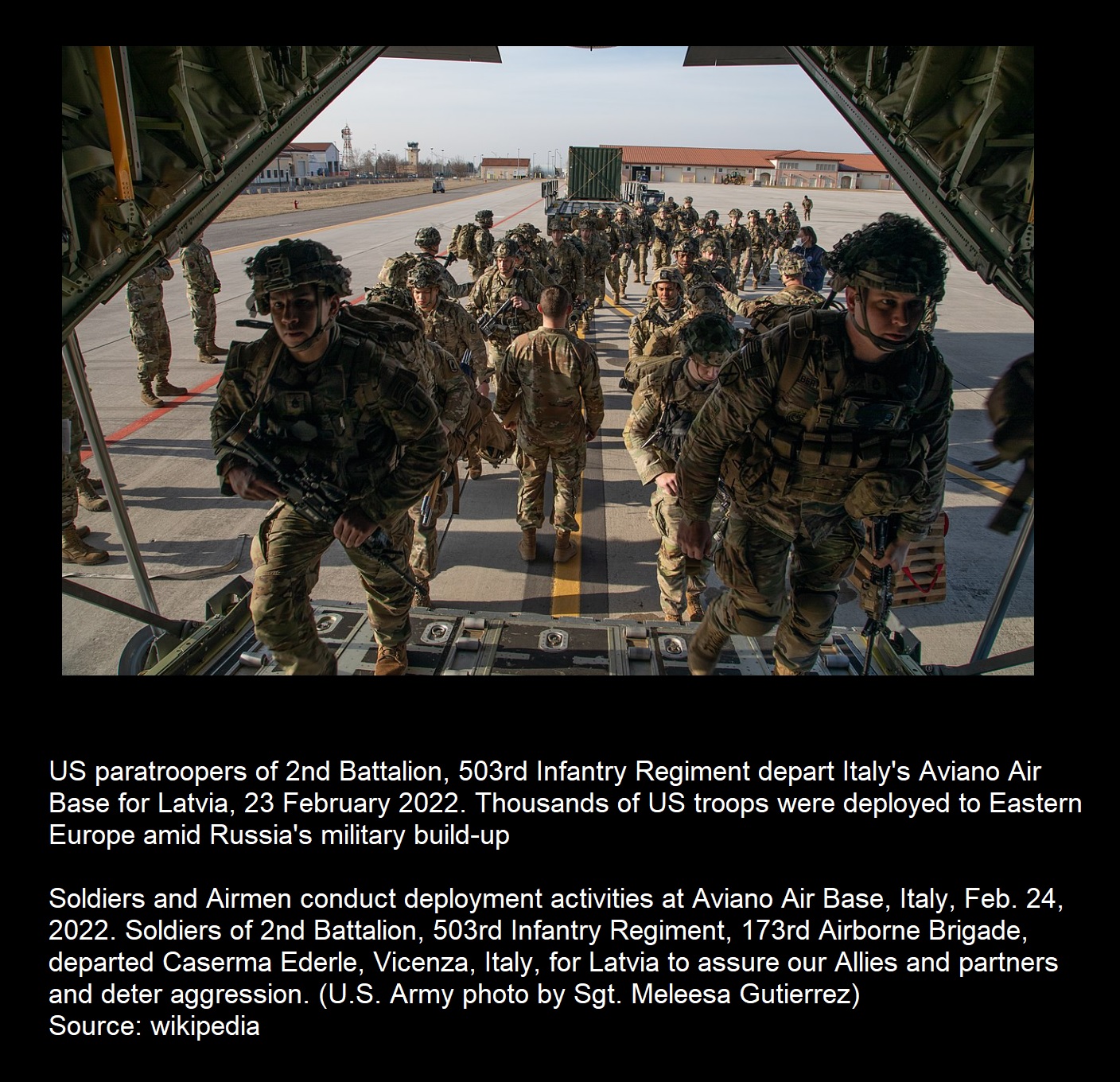
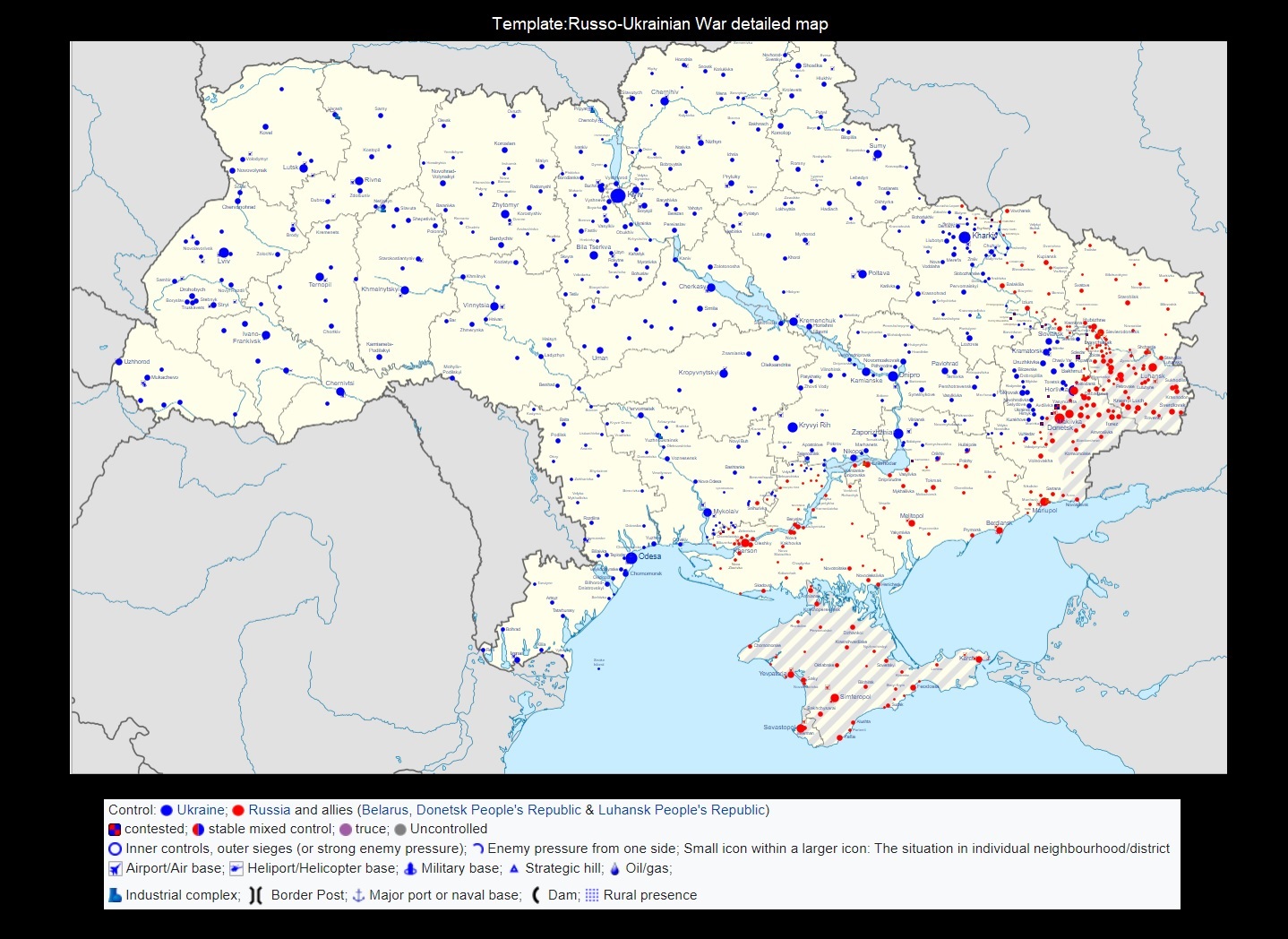

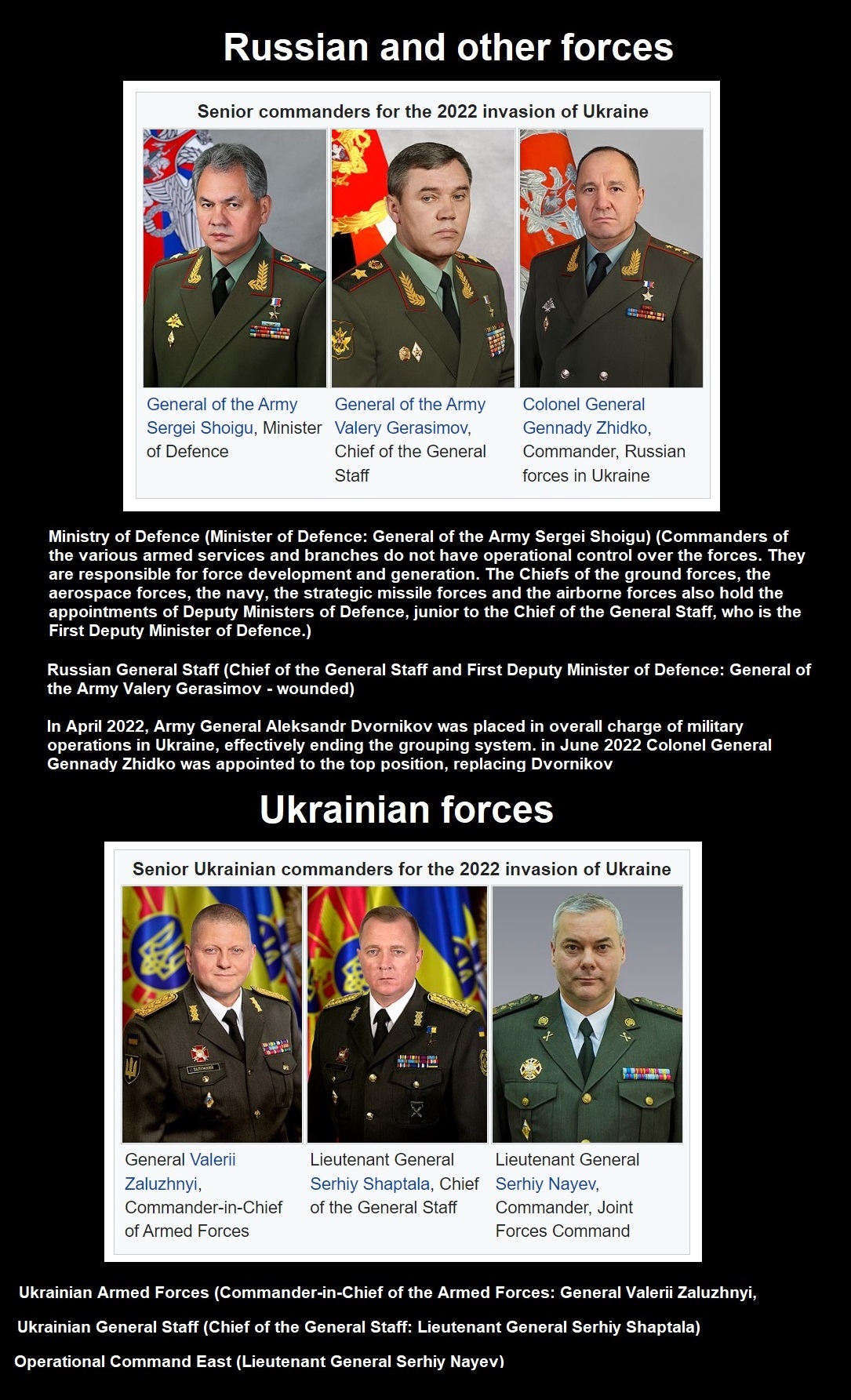

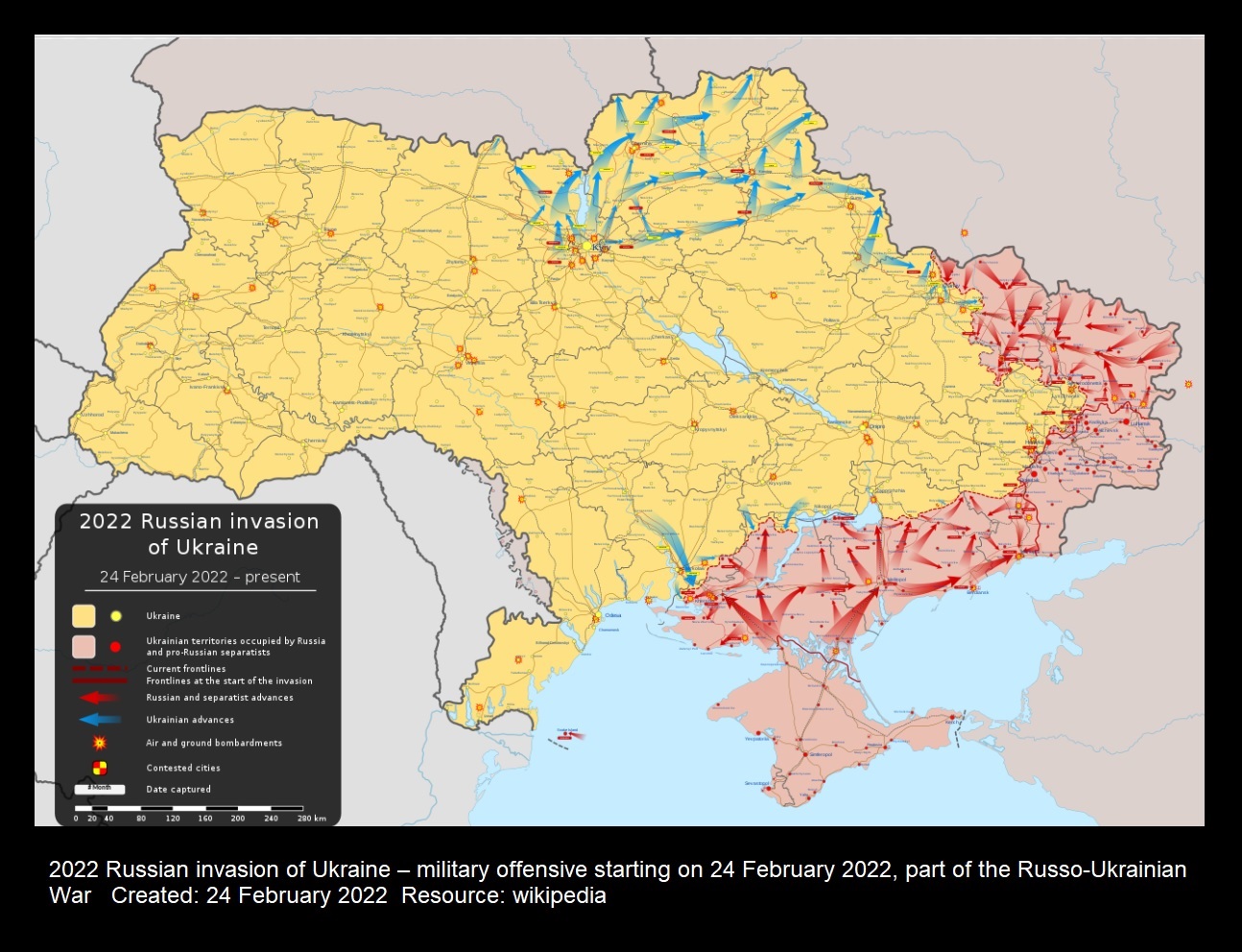
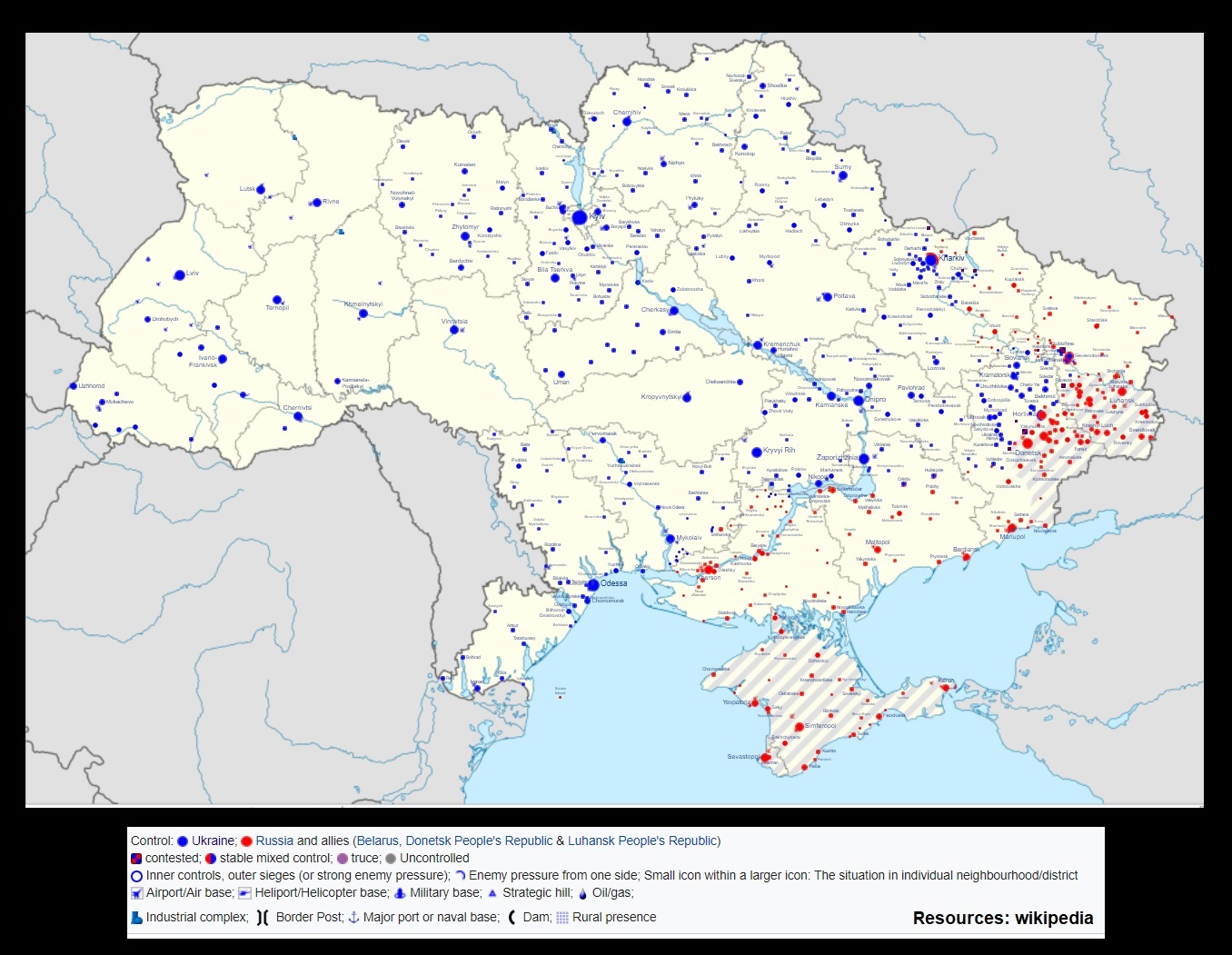







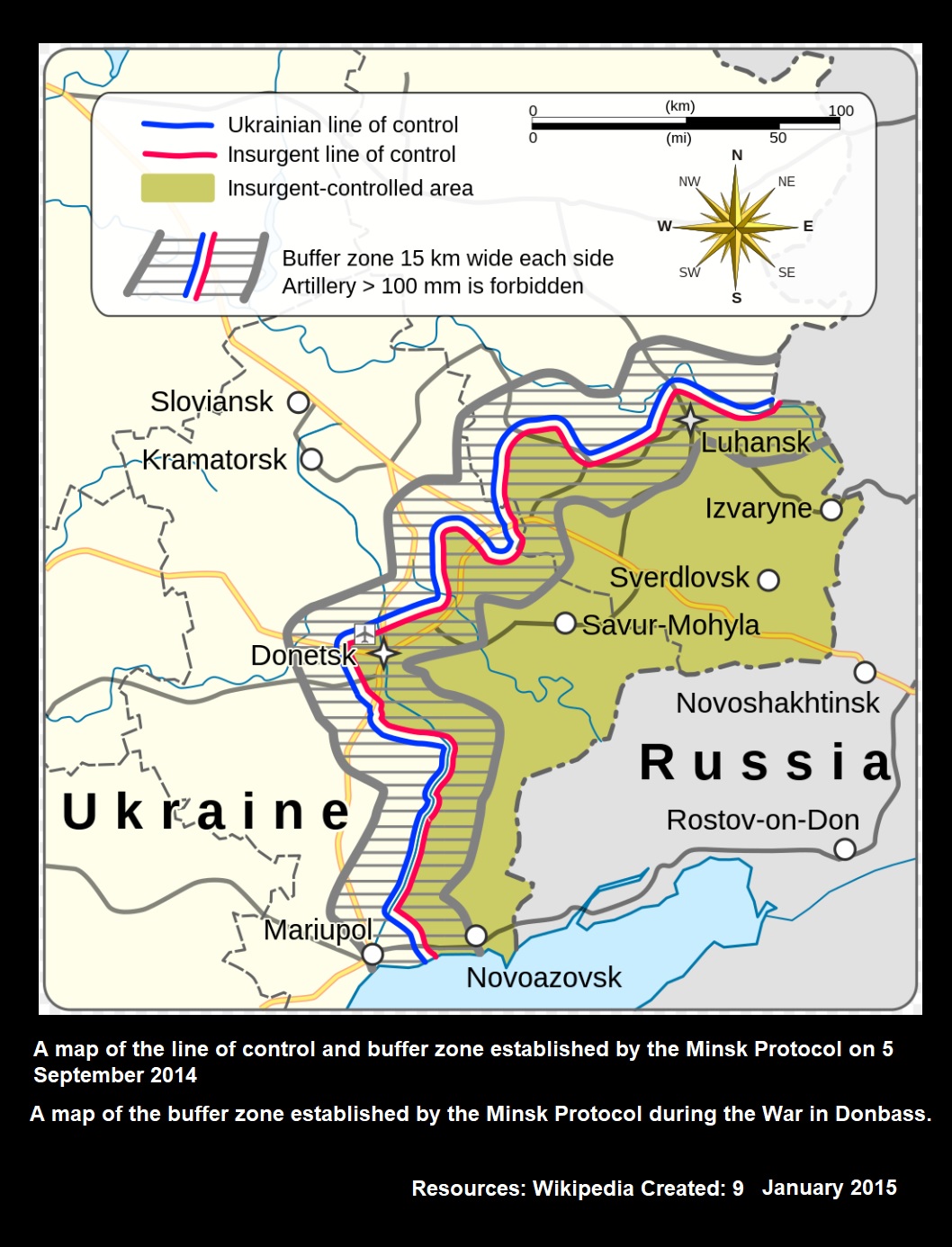
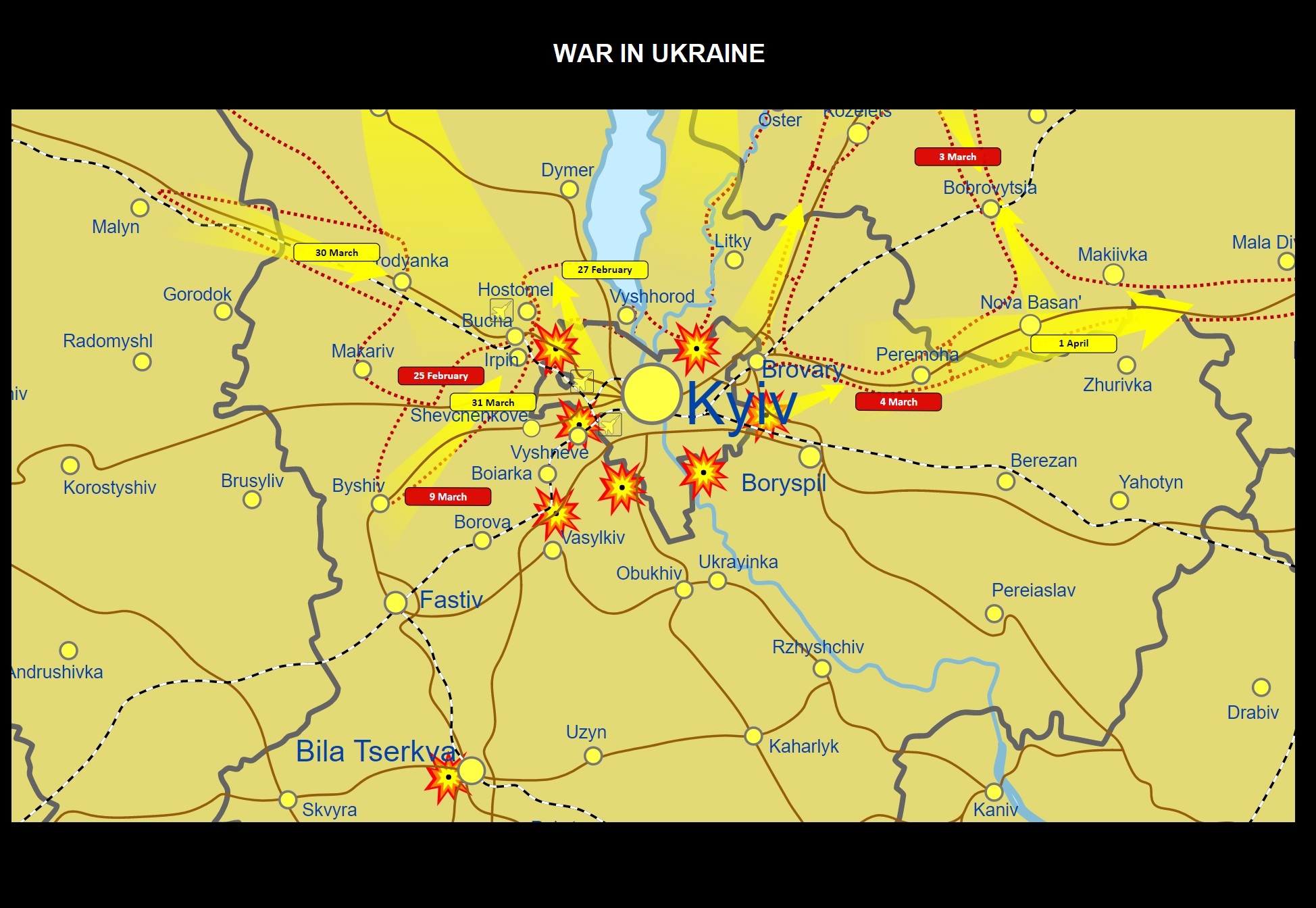
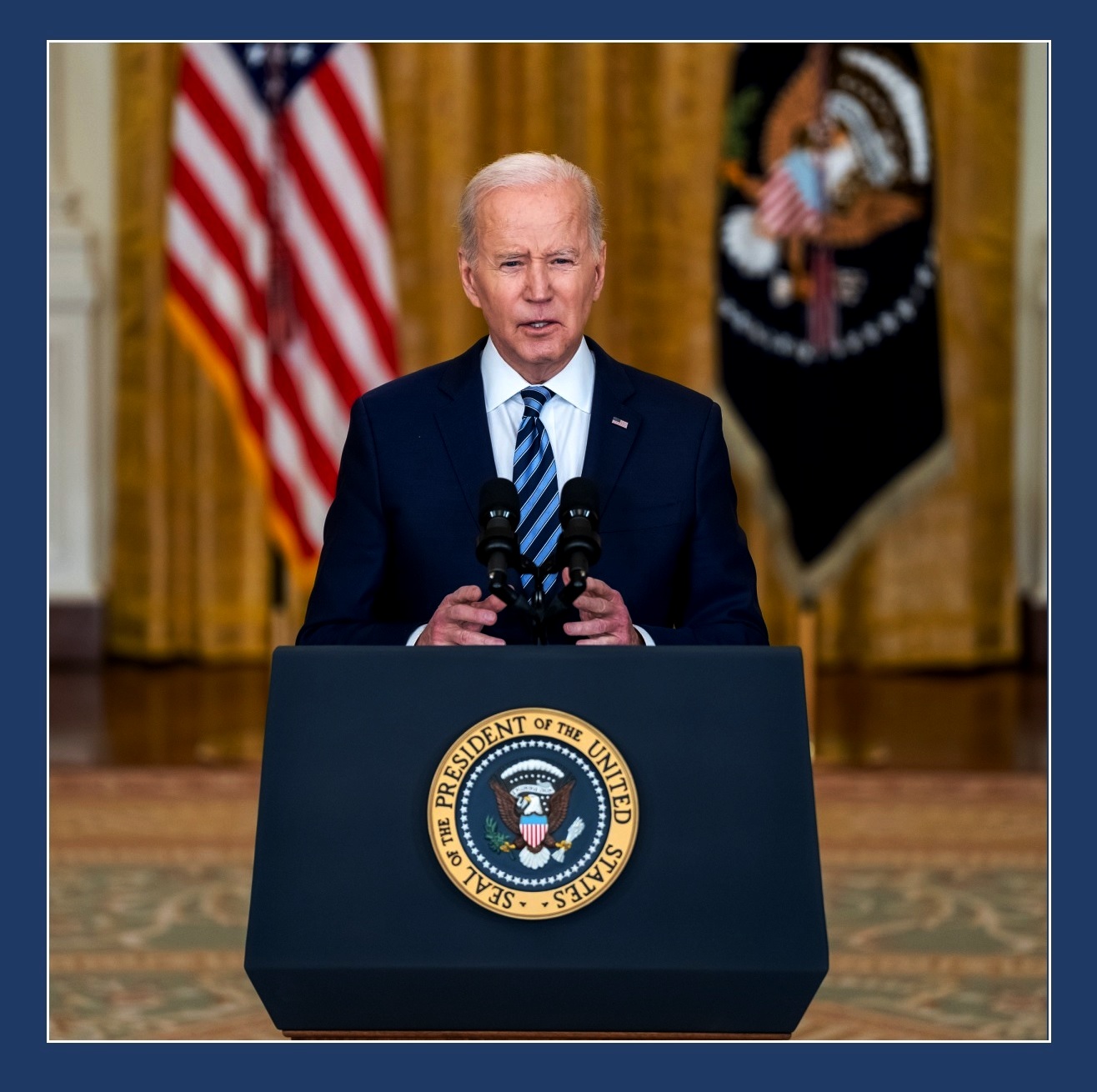
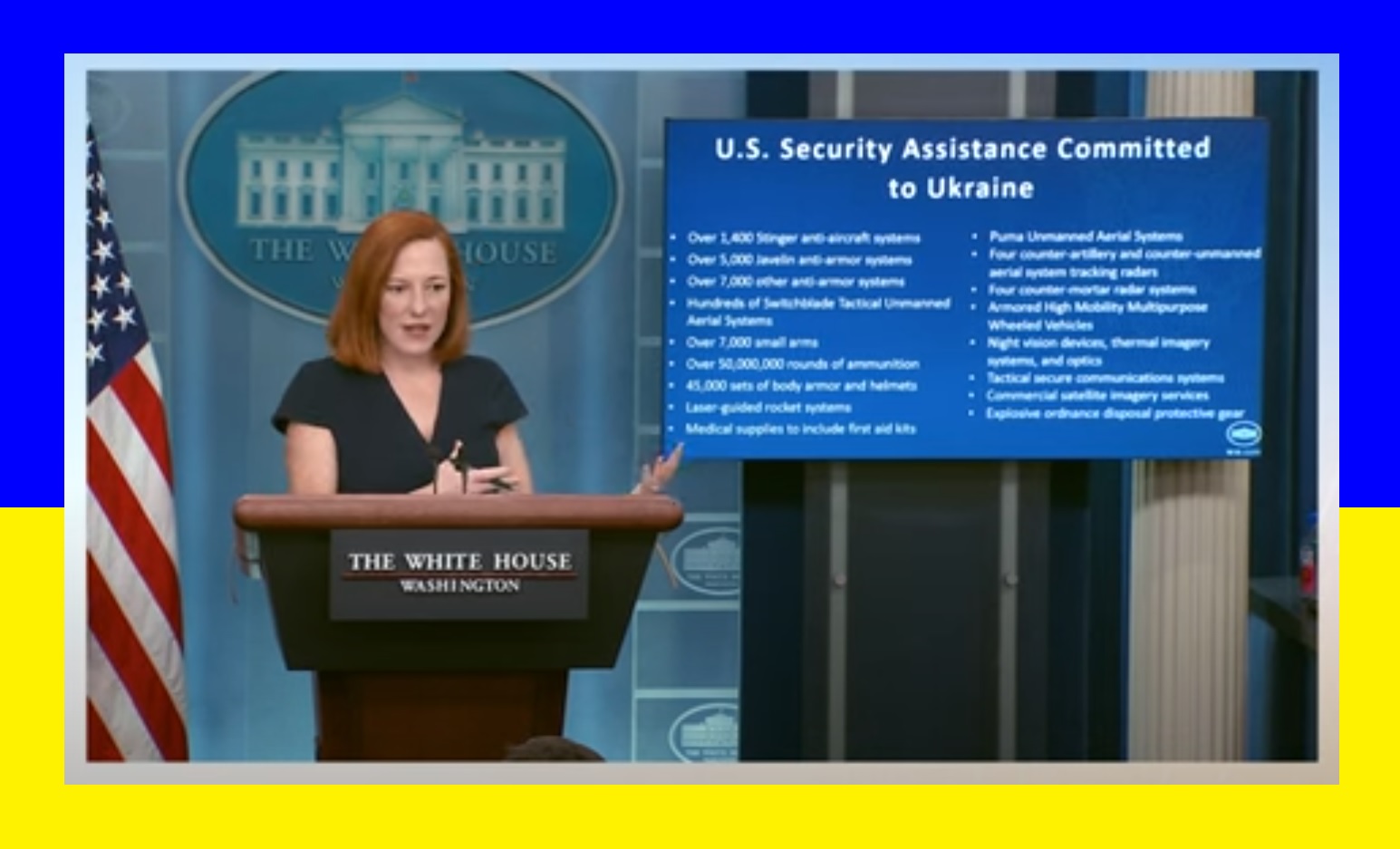

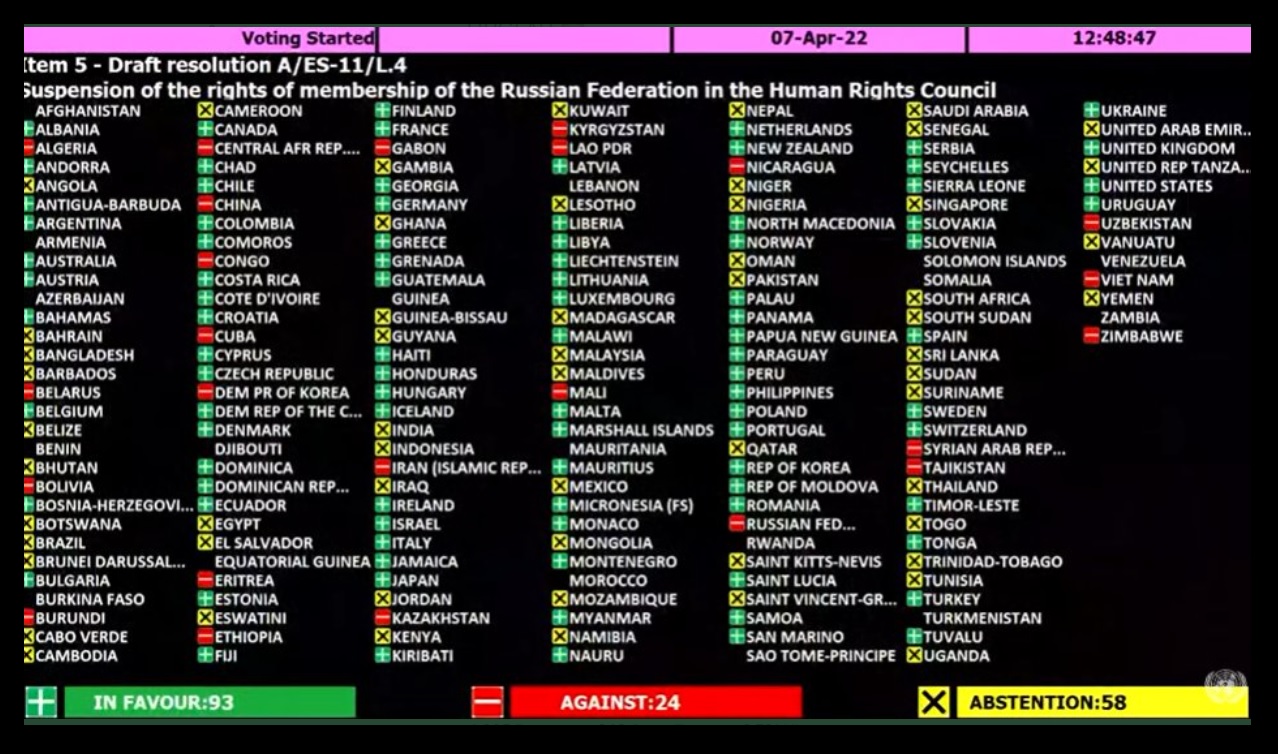


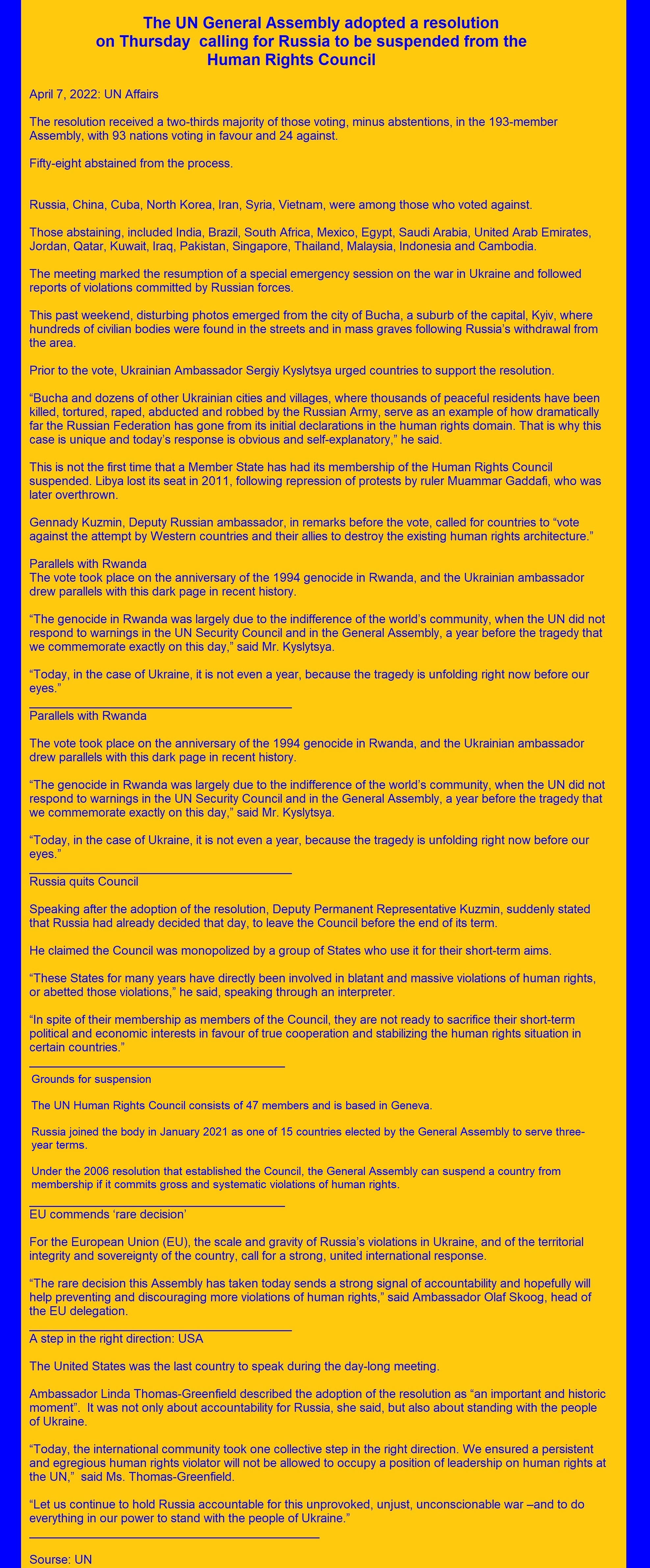
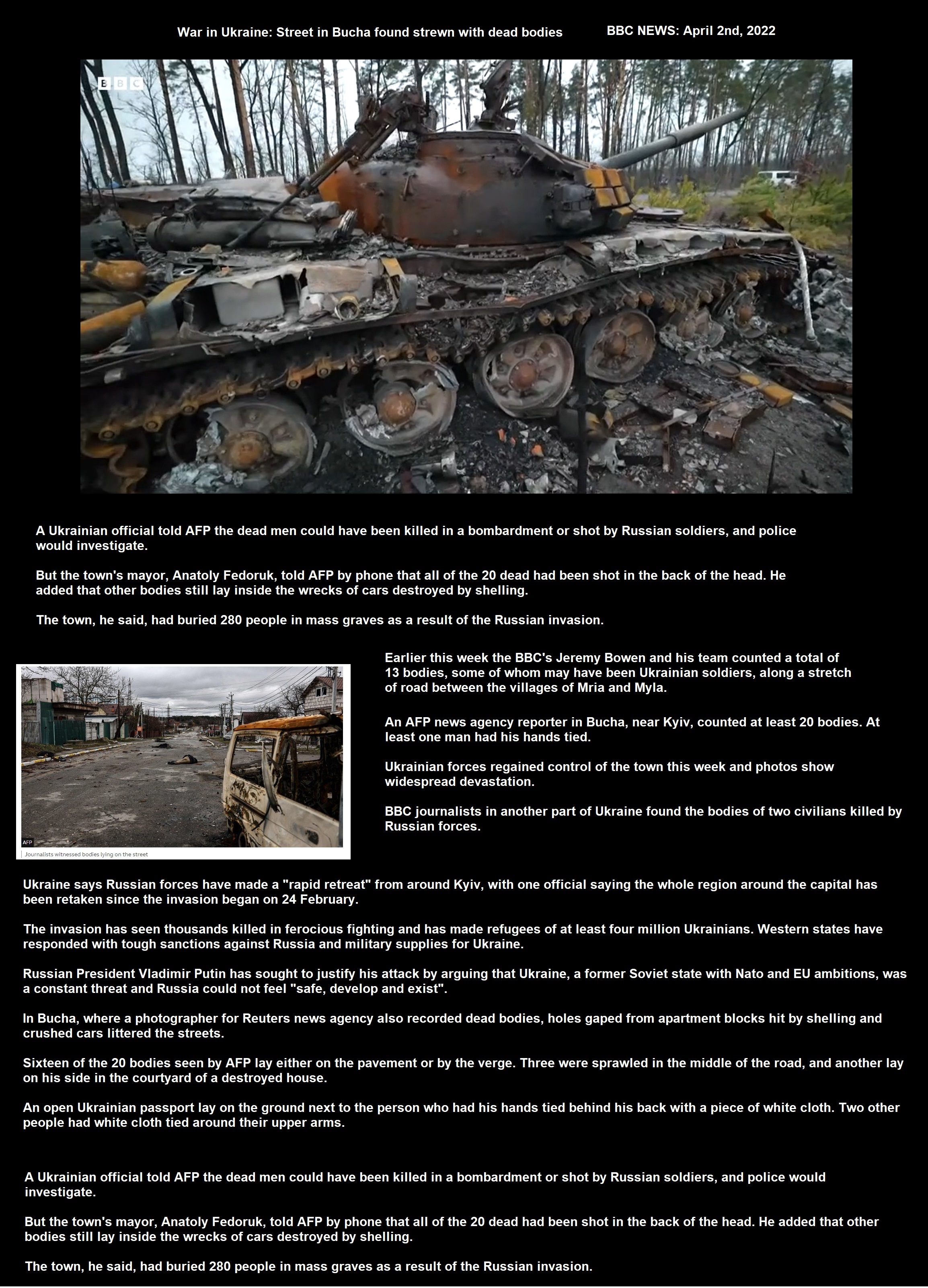
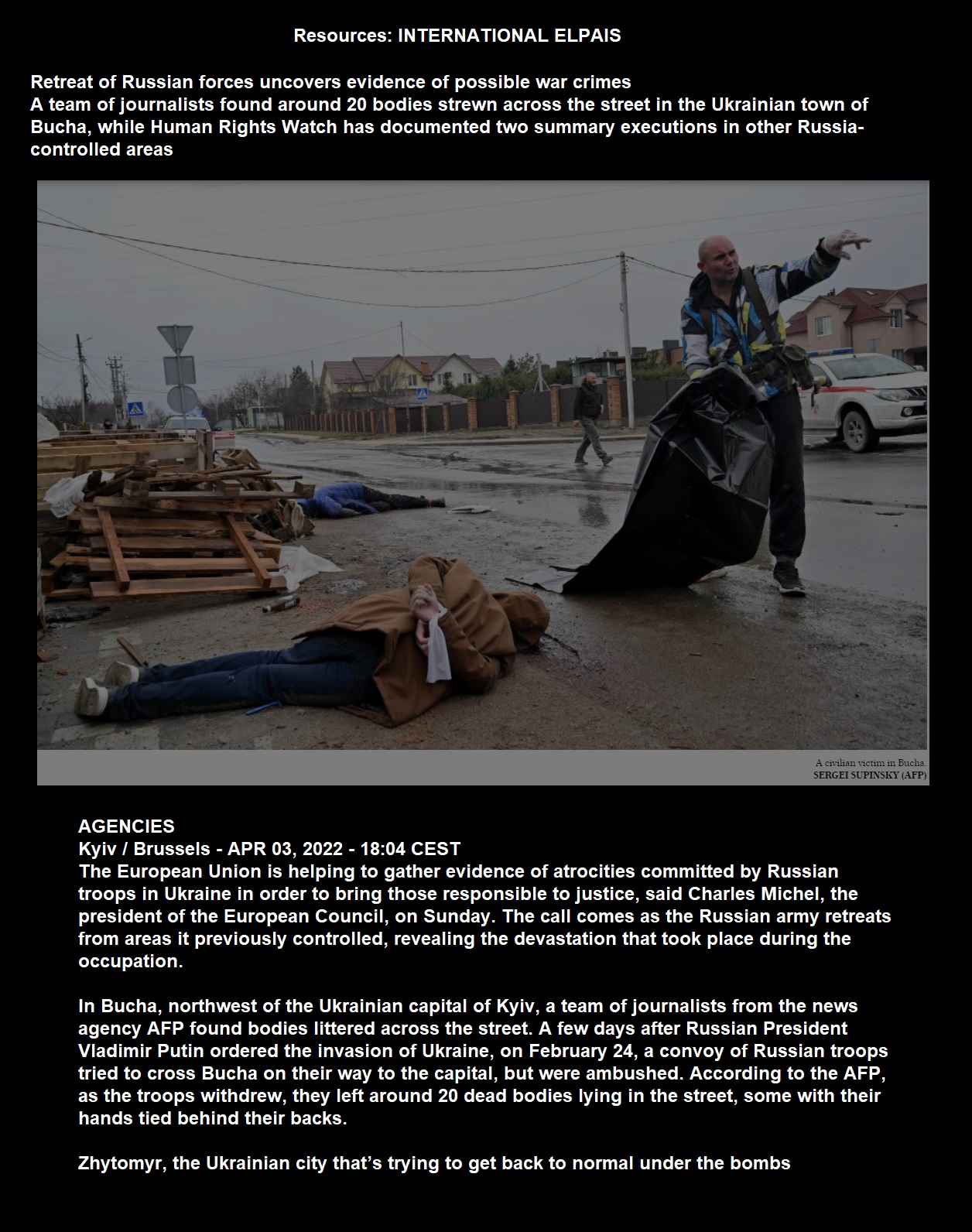
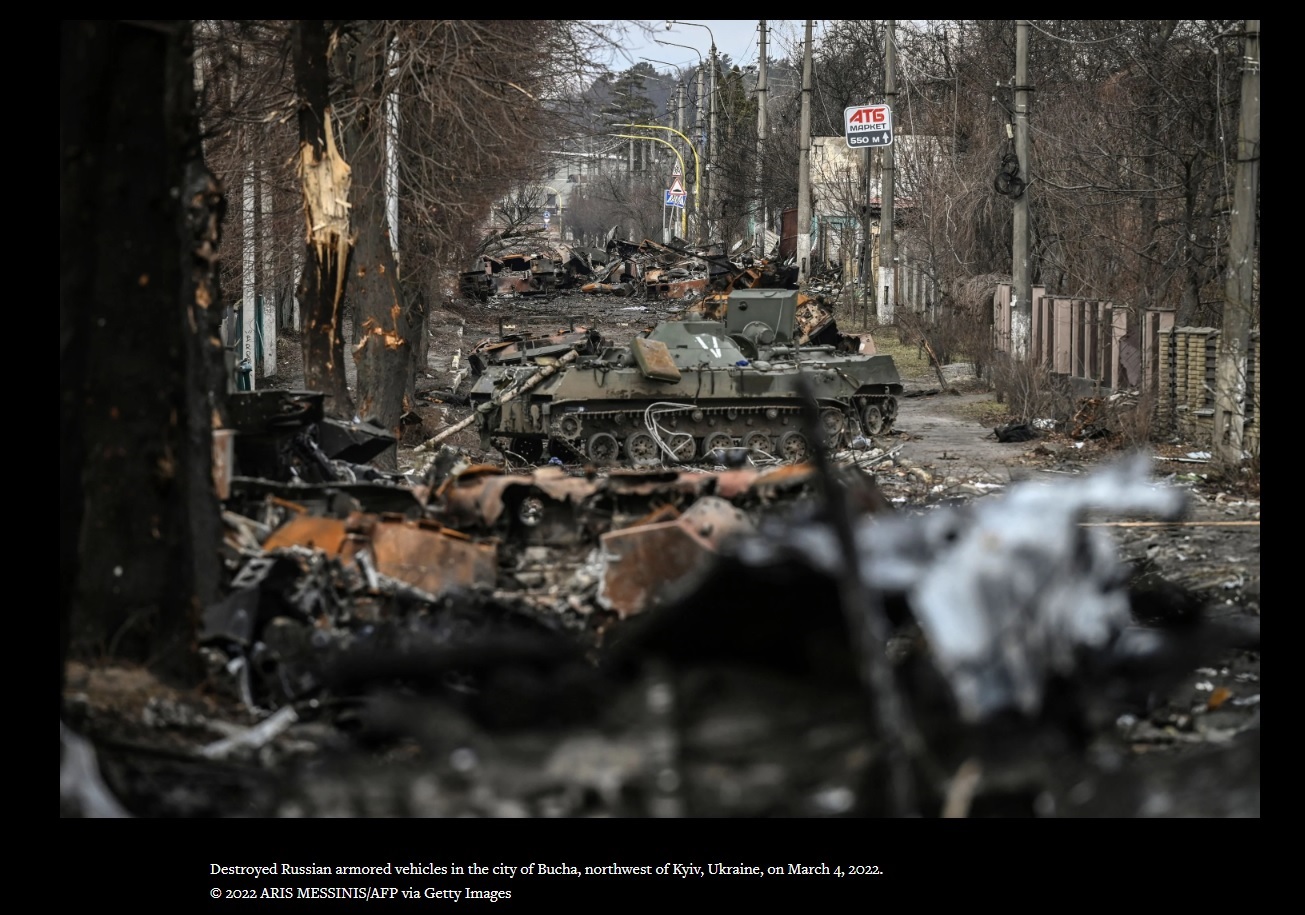
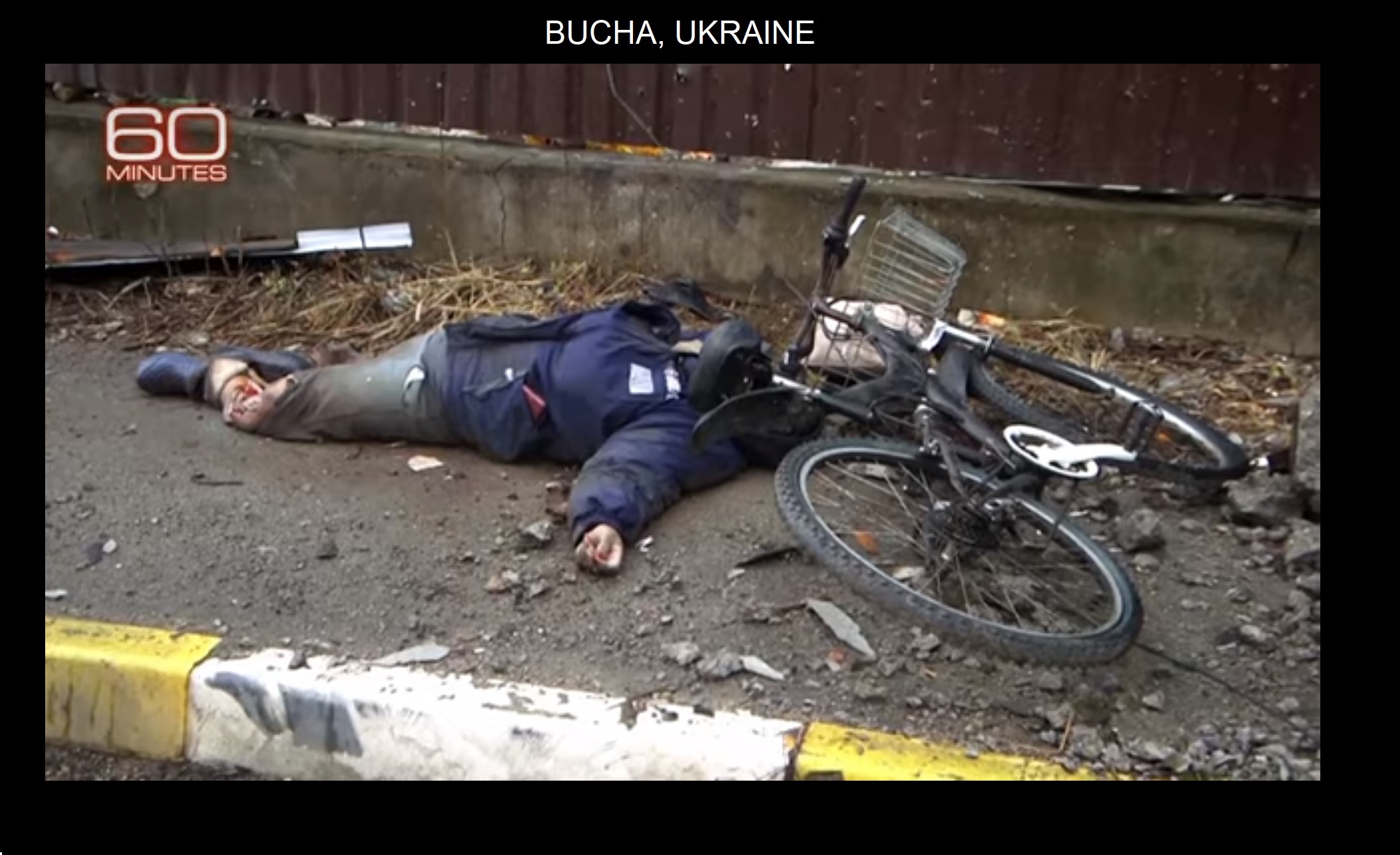
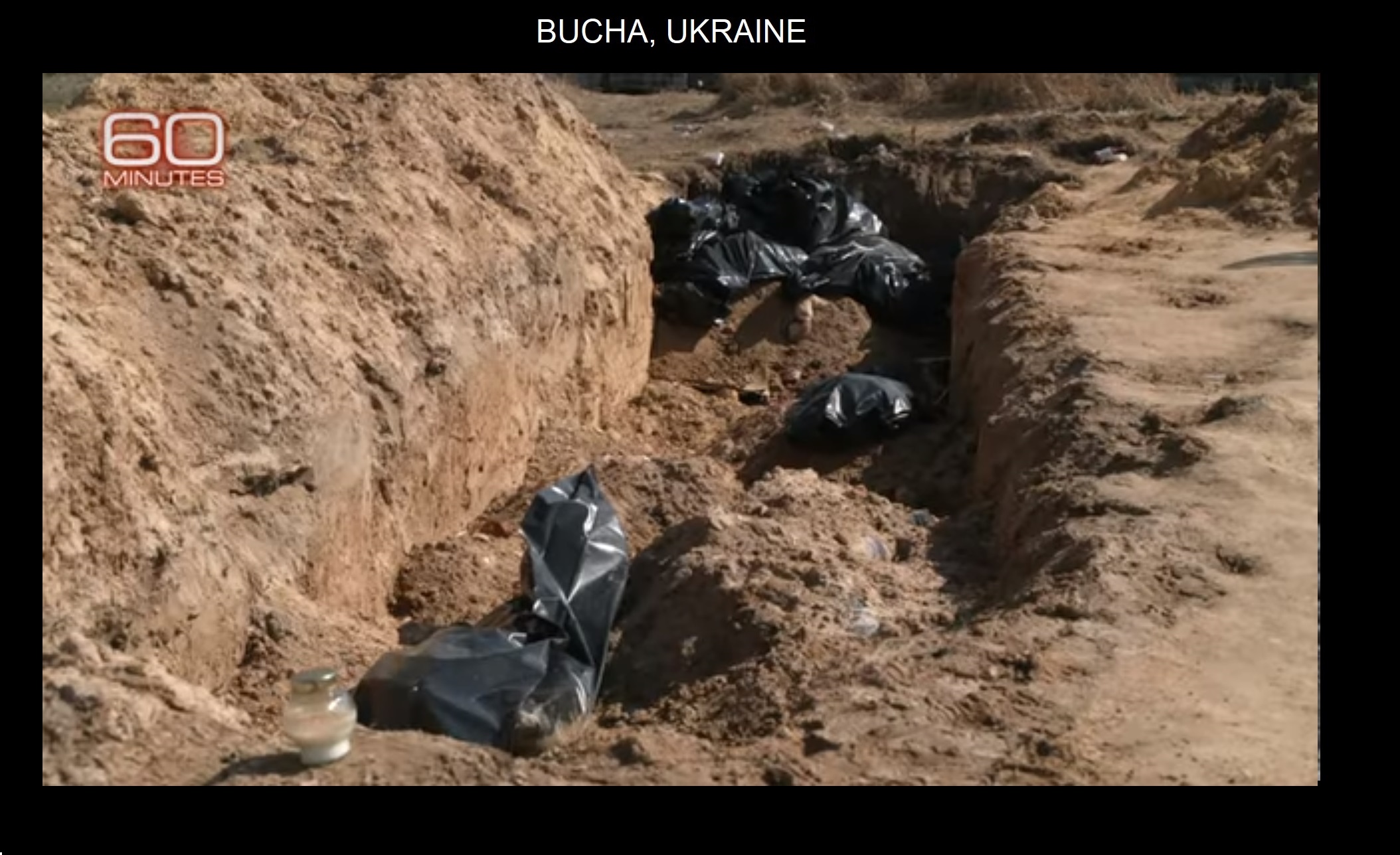

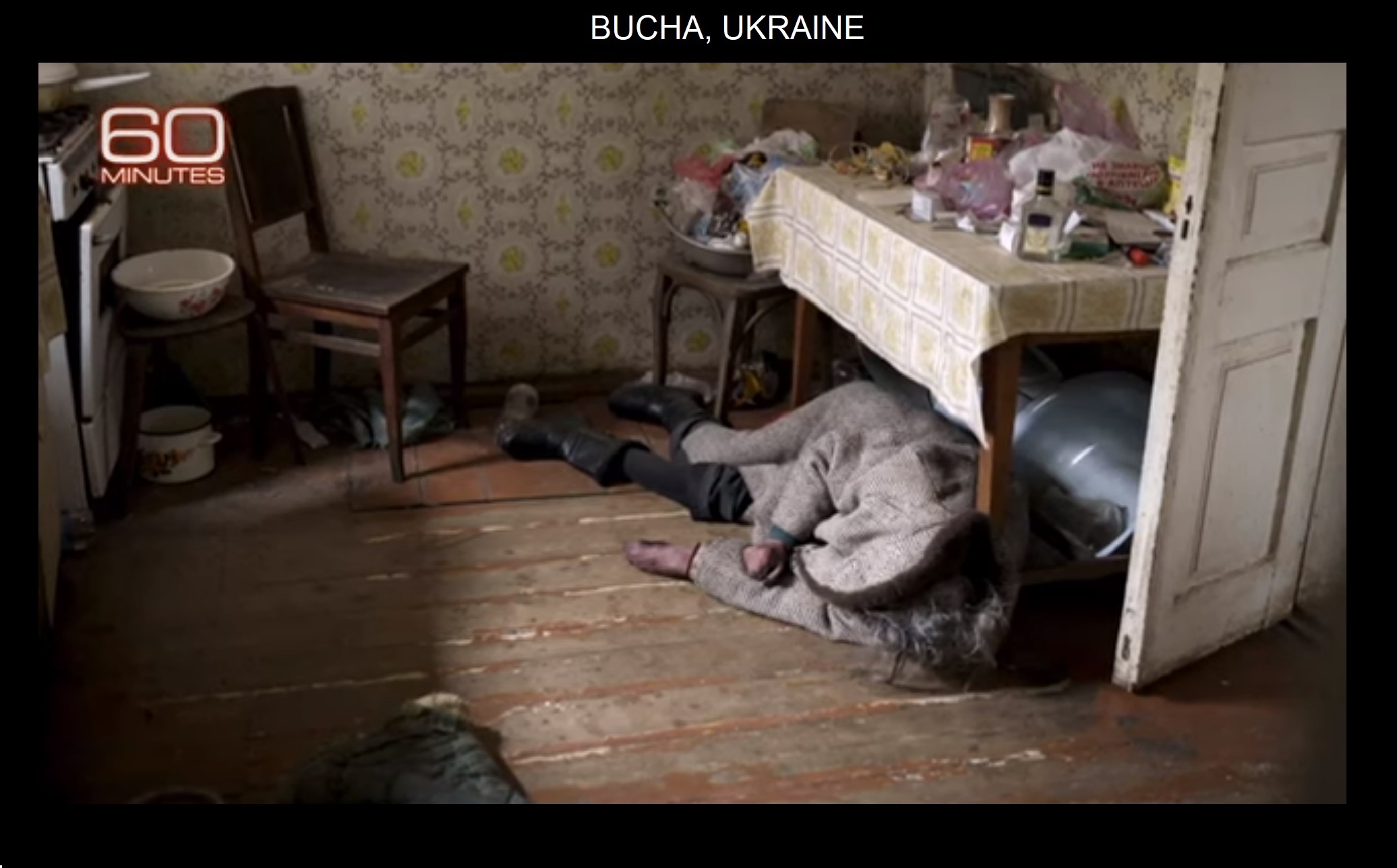
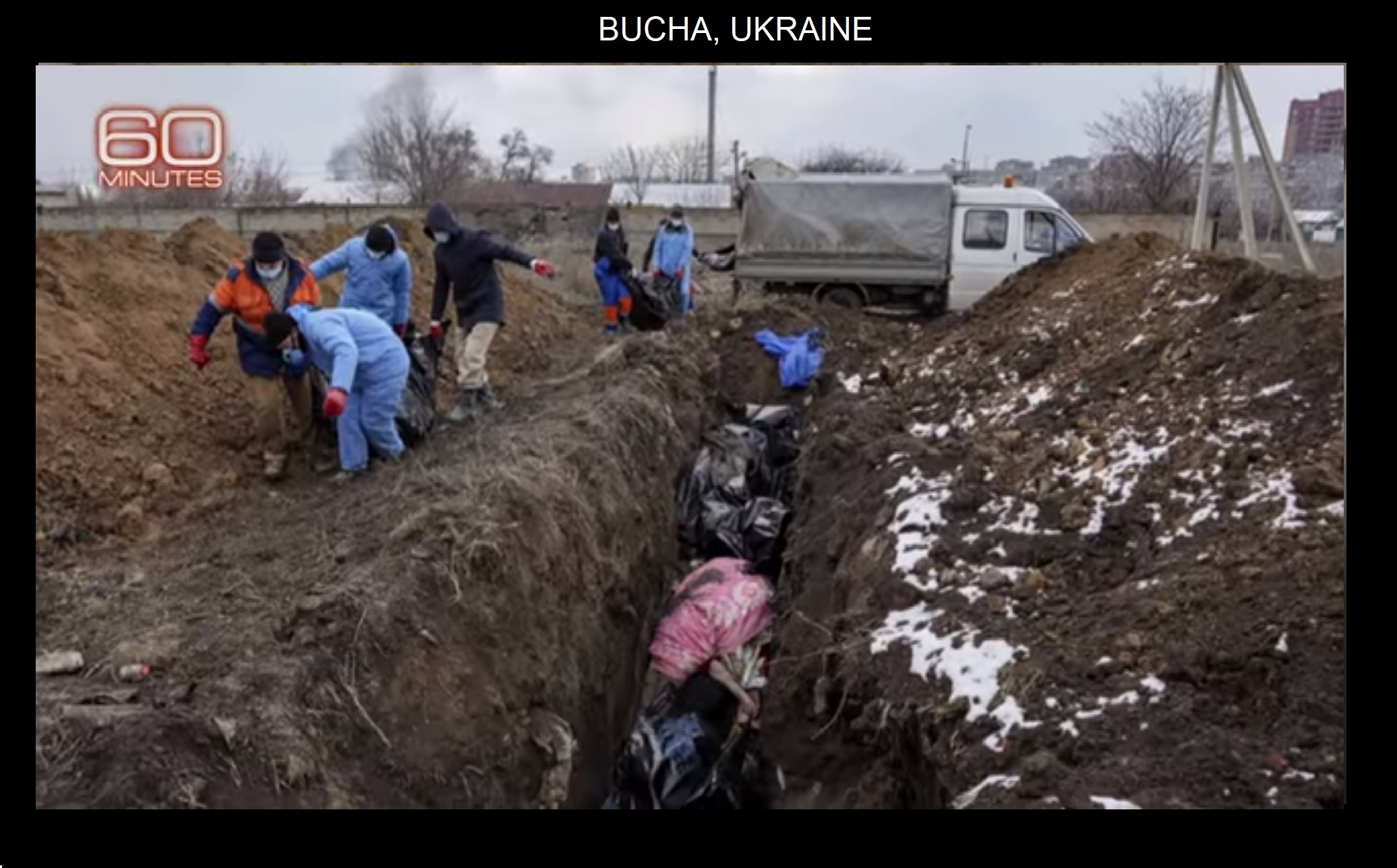

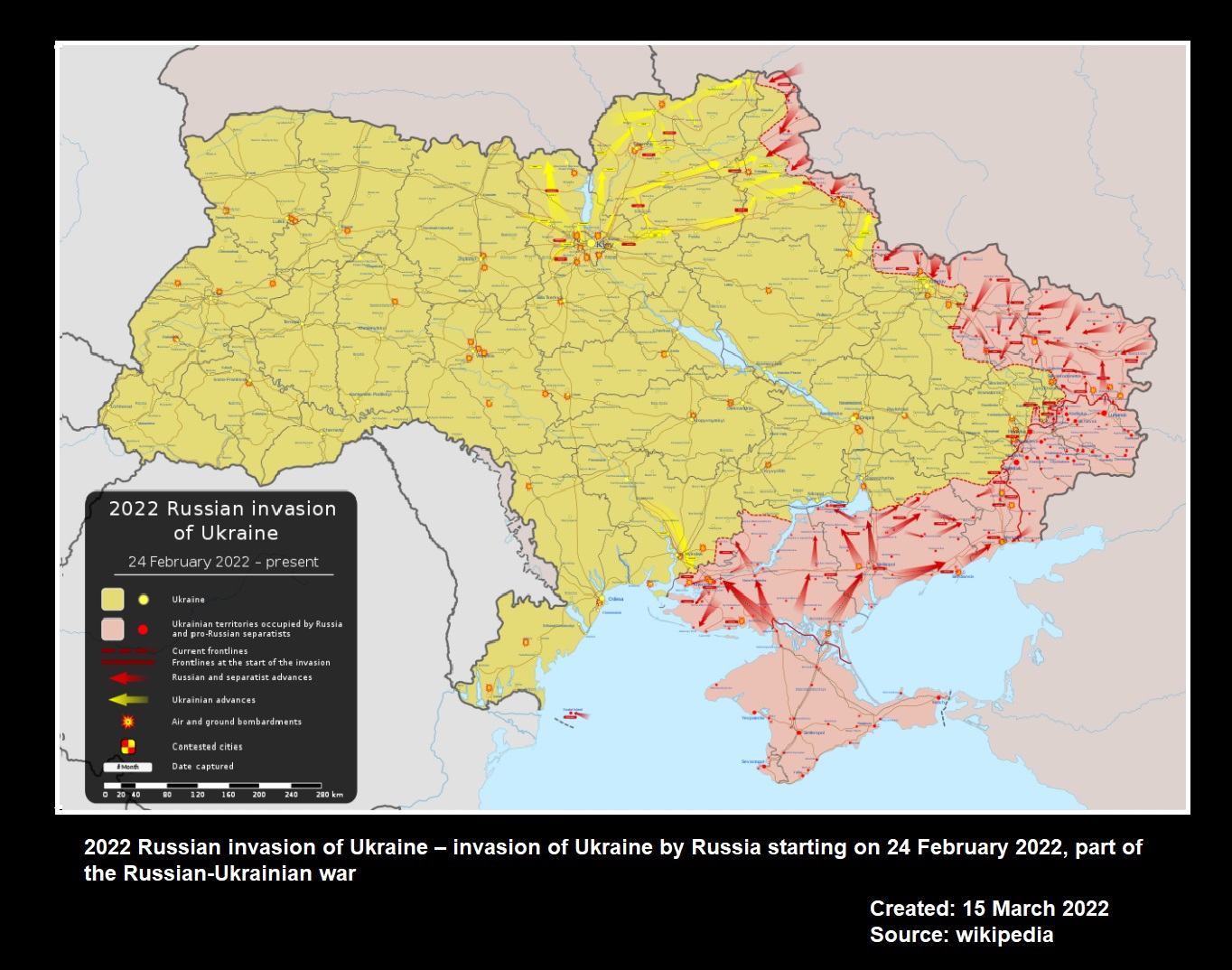

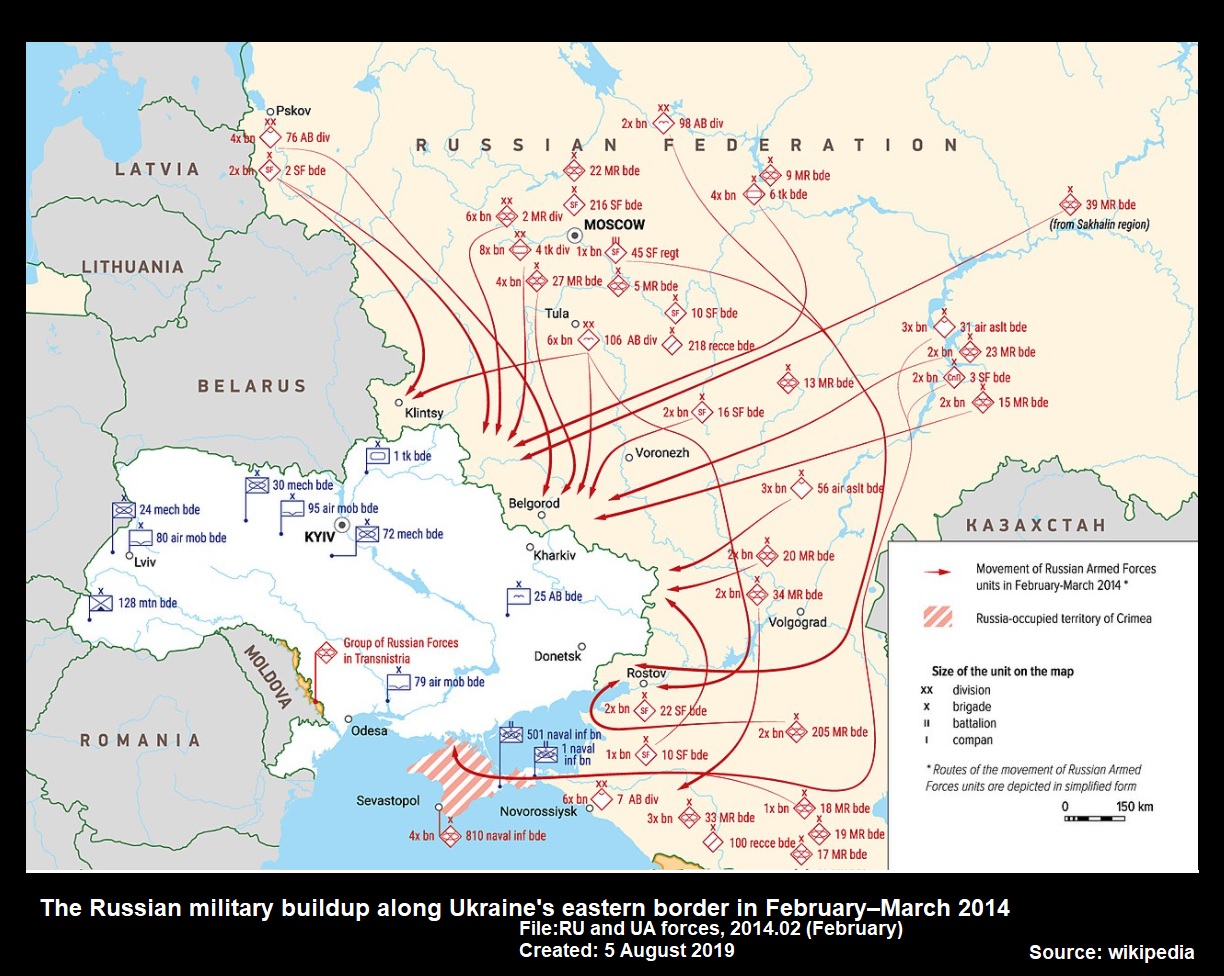
.jpg)


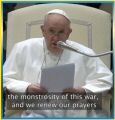
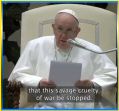


_tm.jpg)
_tm.jpg)
_tm.jpg)
_tm.jpg)
_tm.jpg)
_tm.jpg)
_tm.jpg)
_tm.jpg)
_tm.jpg)
_tm.jpg)
_tm.jpg)
_tm.jpg)
_tm.jpg)
_tm.jpg)
_tm.jpg)
_tm.jpg)
_tm.jpg)
_tm.jpg)
_tm.jpg)
_tm.jpg)
_tm.jpg)
_tm.jpg)
_tm.jpg)
_tm.jpg)
_tm.jpg)
_tm.jpg)
_tm.jpg)
_tm.jpg)
_tm.jpg)
_tm.jpg)
_tm.jpg)
_tm.jpg)
_tm.jpg)
_tm.jpg)
_tm.jpg)
_tm.jpg)
_tm.jpg)
_tm.jpg)
_tm.jpg)
_tm.jpg)
_tm.jpg)
_tm.jpg)
_tm.jpg)
_tm.jpg)
_tm.jpg)
_tm.jpg)
_tm.jpg)
_tm.jpg)
_tm.jpg)
_tm.jpg)
_tm.jpg)
_tm.jpg)
_tm.jpg)
_tm.jpg)
_tm.jpg)
_tm.jpg)
_tm.jpg)
_tm.jpg)
_tm.jpg)
_tm.jpg)
_tm.jpg)
_tm.jpg)
_tm.jpg)
_tm.jpg)
_tm.jpg)
_tm.jpg)
_tm.jpg)
_tm.jpg)
_tm.jpg)
_tm.jpg)
_tm.jpg)
_tm.jpg)

.jpg)
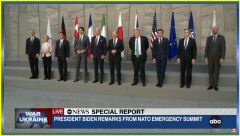
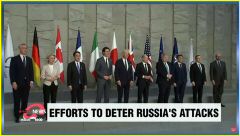

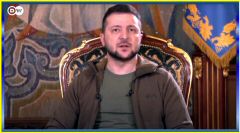
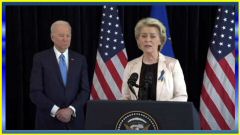
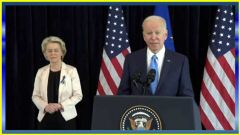
_tm.jpg)
_tm.jpg)
_tm.jpg)
_tm.jpg)
_tm.jpg)
_tm.jpg)
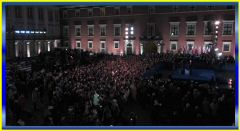
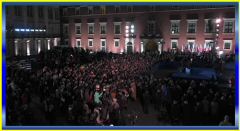
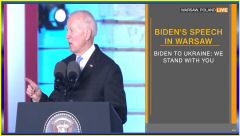
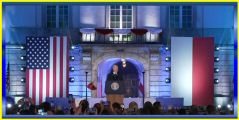
_tm.jpg)
_tm.jpg)
_tm.jpg)
_tm.jpg)
_tm.jpg)
_tm.jpg)
_tm.jpg)
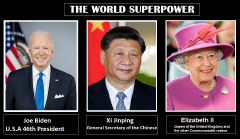

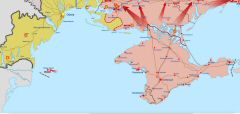
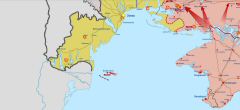
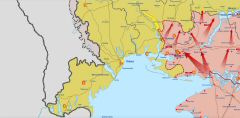
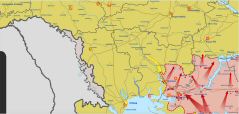
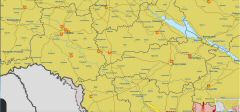


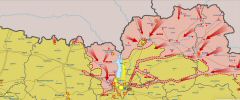
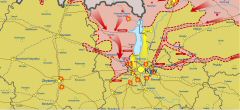
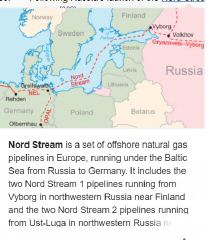

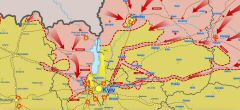
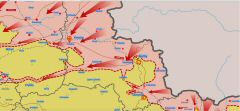


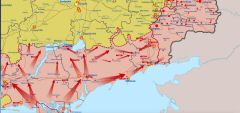
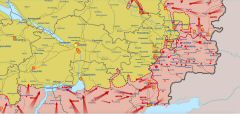
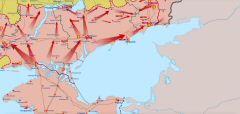
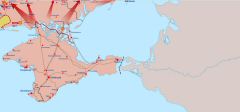
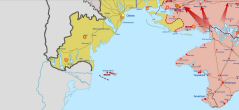
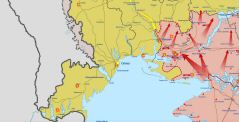
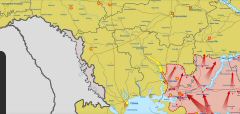
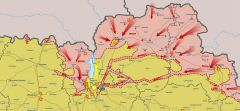

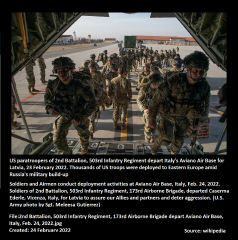

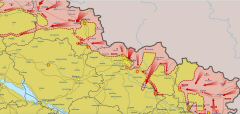


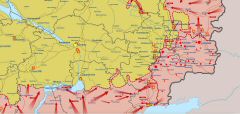
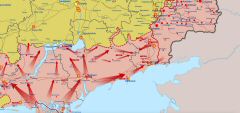
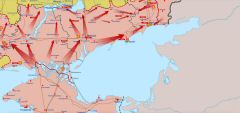

_tm.jpg)
_tm.jpg)
_tm.jpg)
_tm.jpg)
_tm.jpg)
_tm.jpg)
_tm.jpg)
_tm.jpg)
_tm.jpg)
_tm.jpg)
_tm.jpg)
_tm.jpg)
_tm.jpg)
_tm.jpg)
_tm.jpg)
_tm.jpg)
_tm.jpg)
_tm.jpg)
_tm.jpg)
_tm.jpg)
_tm.jpg)
_tm.jpg)
_tm.jpg)
_tm.jpg)
_tm.jpg)
_tm.jpg)
_tm.jpg)
_tm.jpg)
_tm.jpg)
_tm.jpg)
_tm.jpg)
_tm.jpg)
_tm.jpg)
_tm.jpg)
_tm.jpg)
